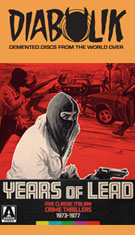
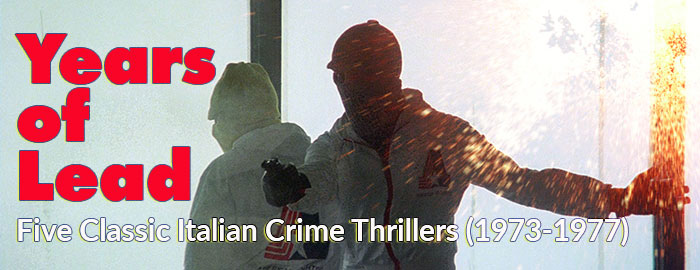
SAVAGE THREE (FANGO BOLLENTE)
Color, 1975, 84m 38 secs.
Directed by Vittorio Salerno
Starring Joe Dallesandro, Gianfranco De Grassi, Guido De Carli, Enrico Maria Salerno, Martine Brochard, Carmen Scarpitta
Arrow Video (Blu-ray) (US RA HD), Camera Obscura (Blu-ray & DVD) (Germany RB/R2 HD/PAL), RAI (DVD) (Italy R2 PAL) / WS (1.85:1) (16:9)
LIKE RABID DOGS (COME CANI ARRABIATI)
Color, 1976, 97m.
Directed by Mario Imperioli
Starring Jean-Pierre Sabagh, Annarita Grapputo, Paola Senatore, Cesare Barro, Luis La Torre, Paolo Carlini
Arrow Video (Blu-ray) (US RA HD), Camera Obscura (Blu-ray & DVD) (Austria RB/R2 HD/PAL) / WS (2.35:1) (16:9)
COLT 38 SPECIAL SQUAD
Color, 1976, 102 mins. 43 secs.
Directed by Massimo Dallamano
Starring Marcel Bozzuffi, Ivan Rassimov, Carole André, Riccardo Salvino
Arrow Video (Blu-ray) (US RA HD), NoShame (DVD) (US R1 NTSC) / WS (1.85:1) (16:9)
HIGHWAY RACER (POLIZIOTTO SPRINT)
Color, 1977, 101 mins. 23 secs.
Directed by Stelvio Massi
Starring Maurizio Merli, Giancarlo Sbragia, Angelo Infanti, Lilli Carati, Glauco Onorato, Orazio Orlando
Arrow Video (Blu-ray) (US RA HD), Camera Obscura (Blu-ray) (Germany R0 HD), 01 Distribuzione (DVD) (Italy R2 PAL) / WS (1.85:1) (16:9)
NO, THE CASE IS HAPPILY RESOLVED (NO IL CASO È FELICEMENTE RISOLTO)
Color, 1973, 97 min. 39 secs.
Directed by Vittorio Salerno
Starring Enzo Cerusico, Enrico Maria Salerno, Riccardo Cucciolla, Martine Brochard, Umberto Raho
Arrow Video (Blu-ray) (US RA HD), Camera Obscura (Blu-ray & DVD) (Germany RB/R2 HD), CDE (DVD) (Italy R2 PAL) / WS (1.85:1) (16:9)
The gritty crime thrillers of the 1970s that helped define the New Hollywood had a major impact across the globe as well, and few countries managed to absorb hits like Dirty Harry and The French Connection into their own special brand better than Italy with the poliziottesco. As the country itself was rocked with turbulence involving kidnappings, political unrest, corruption, and terrorism, filmmakers translated the trauma from the news into hard-hitting films that proved to be star vehicles for the likes of Franco Nero, Maurizio Merli, Tomas Milian, and Fabio Testi. These films became VHS mainstays for years and have since become regarded as classics in more recent years, though a number of them still haven't quite gotten their due. That situation is addressed in the 2021 Arrow Video Blu-ray set, Years of Lead: Five Classic Italian Crime Thrillers (1973-1977), which presents five films offering unique perspectives on what poliziotteschi can actually be.
The 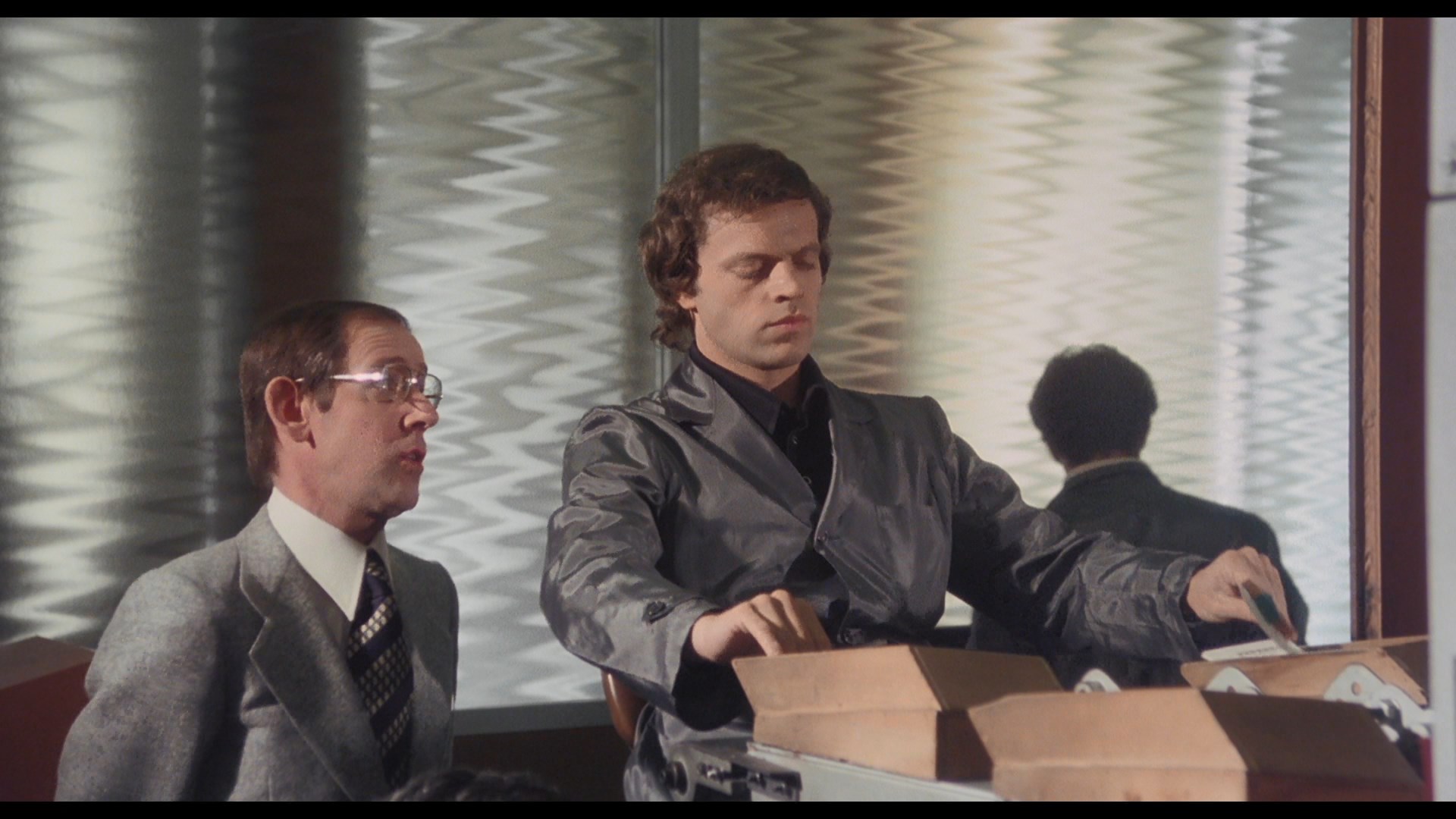 strange career
strange career 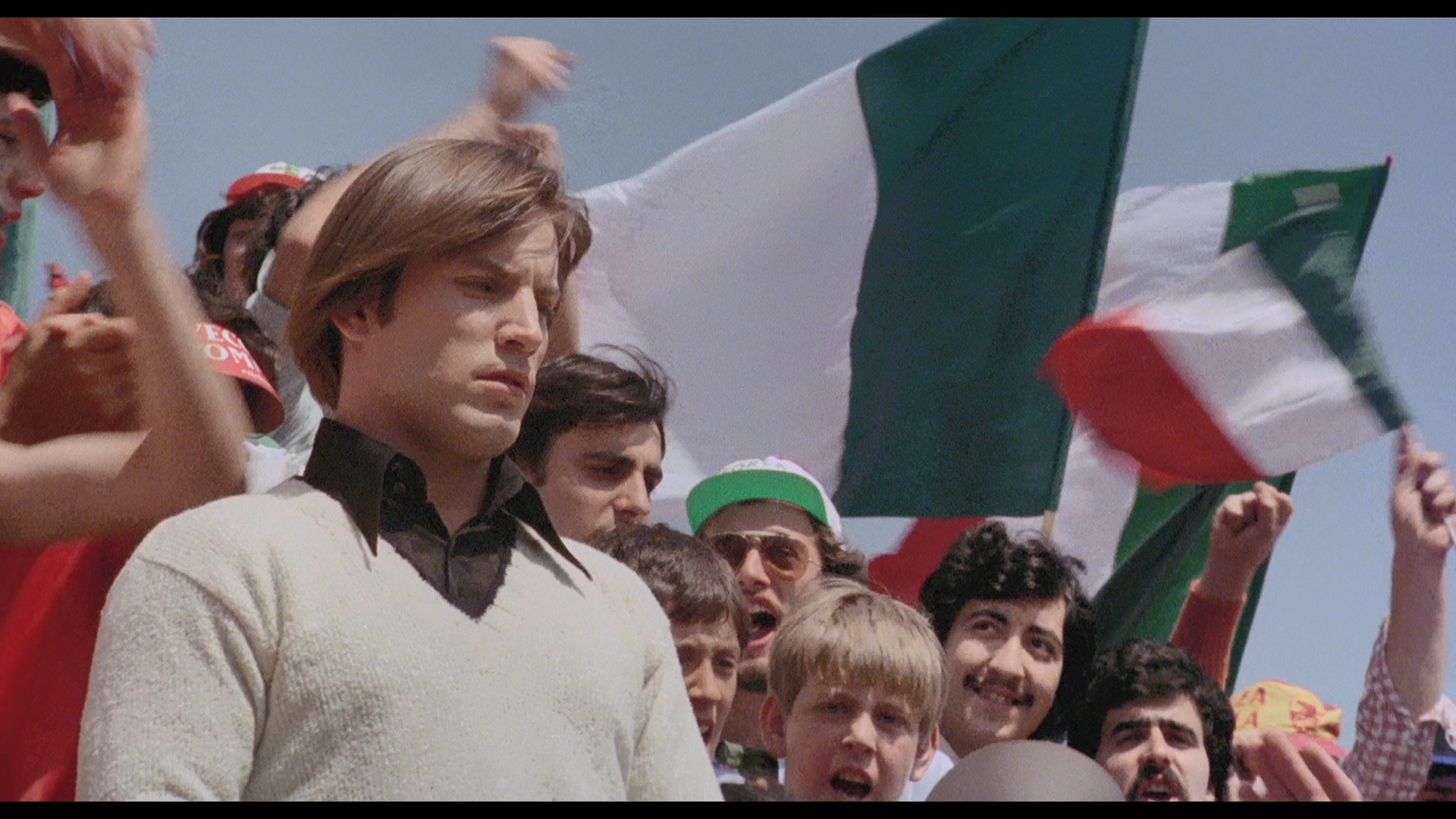 tangent taken by famous Andy Warhol Factory icon Joe Dallesandro in Europe is a wild toy chest of surprises still left to be discovered, but a bigger picture of his output there has been slowly coming to light with a number of Blu-ray and DVD releases around the world highlighting his work in crime films (The Climber, Season for Assassins, Madness), gialli (Killer Nun), and whatever Black Moon is. That still left plenty of curios left to be salvaged (especially One Woman's Lover, Borowczyk's The Streetwalker, and the still-elusive, English-language version of the incredible Je t'aime moi non plus), you can chalk up another big missing piece with Fango Bollente (roughly translated as "boiling mud"), which was prepared for a handful of English-language territories as Savage Three. This one ties in with its '70s crime siblings in a number of ways, particularly as the follow-up film for director Vittorio Salerno after the fascinating No, the Case Is Happily Resolved (more on that below) with his brother, actor Enrico Maria Salerno (The Bird with the Crystal Plumage), as a dogged investigator. Dallesandro's Climber composer, Franco Campanino, is also on hand for a great, pounding rock score with a theme song that gets played about a dozen times or so.
tangent taken by famous Andy Warhol Factory icon Joe Dallesandro in Europe is a wild toy chest of surprises still left to be discovered, but a bigger picture of his output there has been slowly coming to light with a number of Blu-ray and DVD releases around the world highlighting his work in crime films (The Climber, Season for Assassins, Madness), gialli (Killer Nun), and whatever Black Moon is. That still left plenty of curios left to be salvaged (especially One Woman's Lover, Borowczyk's The Streetwalker, and the still-elusive, English-language version of the incredible Je t'aime moi non plus), you can chalk up another big missing piece with Fango Bollente (roughly translated as "boiling mud"), which was prepared for a handful of English-language territories as Savage Three. This one ties in with its '70s crime siblings in a number of ways, particularly as the follow-up film for director Vittorio Salerno after the fascinating No, the Case Is Happily Resolved (more on that below) with his brother, actor Enrico Maria Salerno (The Bird with the Crystal Plumage), as a dogged investigator. Dallesandro's Climber composer, Franco Campanino, is also on hand for a great, pounding rock score with a theme song that gets played about a dozen times or so.
At a Turin office building where the payroll and day-to-day operations rely on an advanced system of computers, the dissatisfied Ovidio (Dallesandro) and two of his coworkers, Giacomo (De Grassi) and Peppe (Di Carli), live 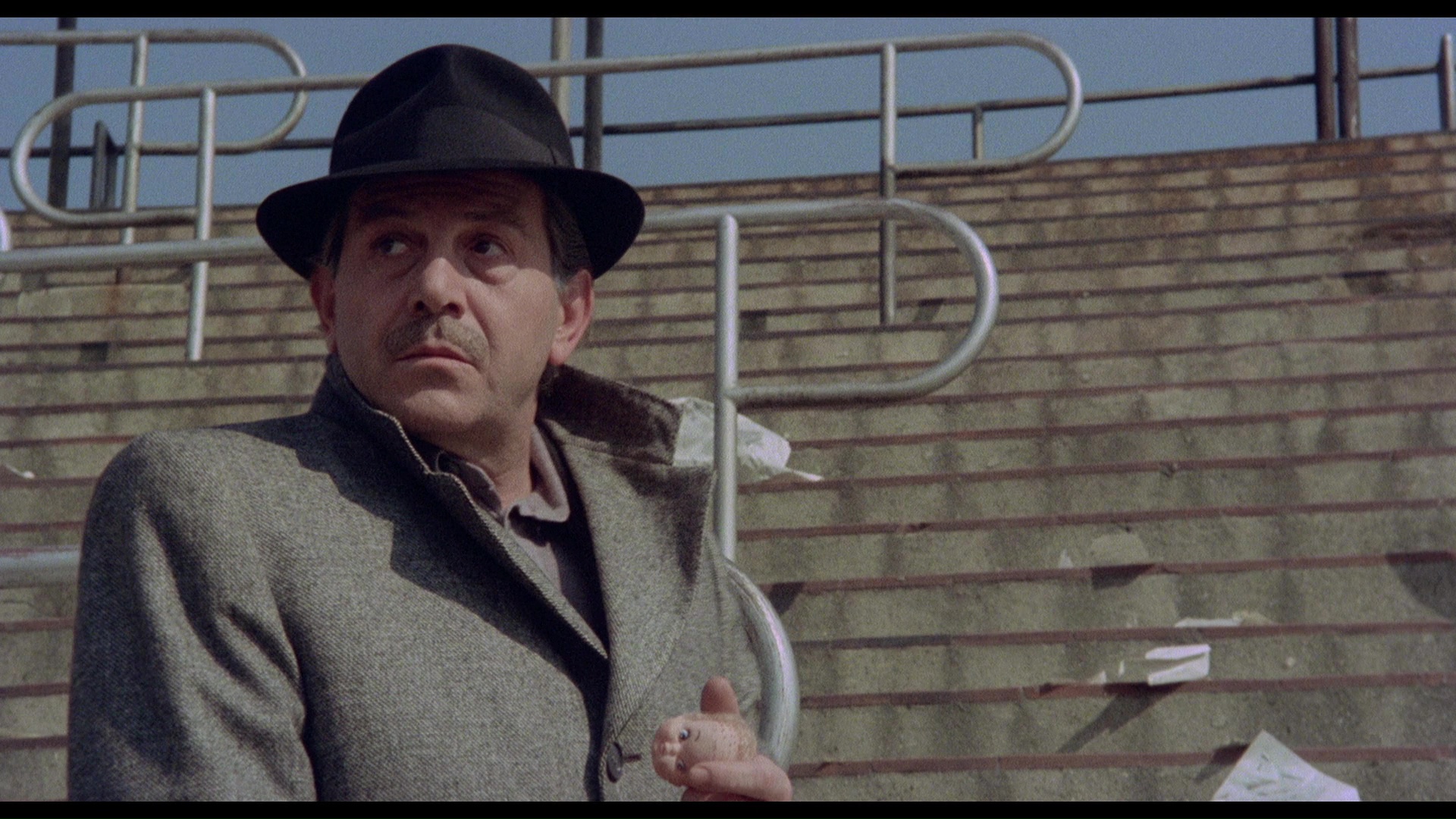 under a constant sense of stress from the many factors around them, both at home and in society at large. To fill their personal emptiness after a rowdy crowd gets
under a constant sense of stress from the many factors around them, both at home and in society at large. To fill their personal emptiness after a rowdy crowd gets 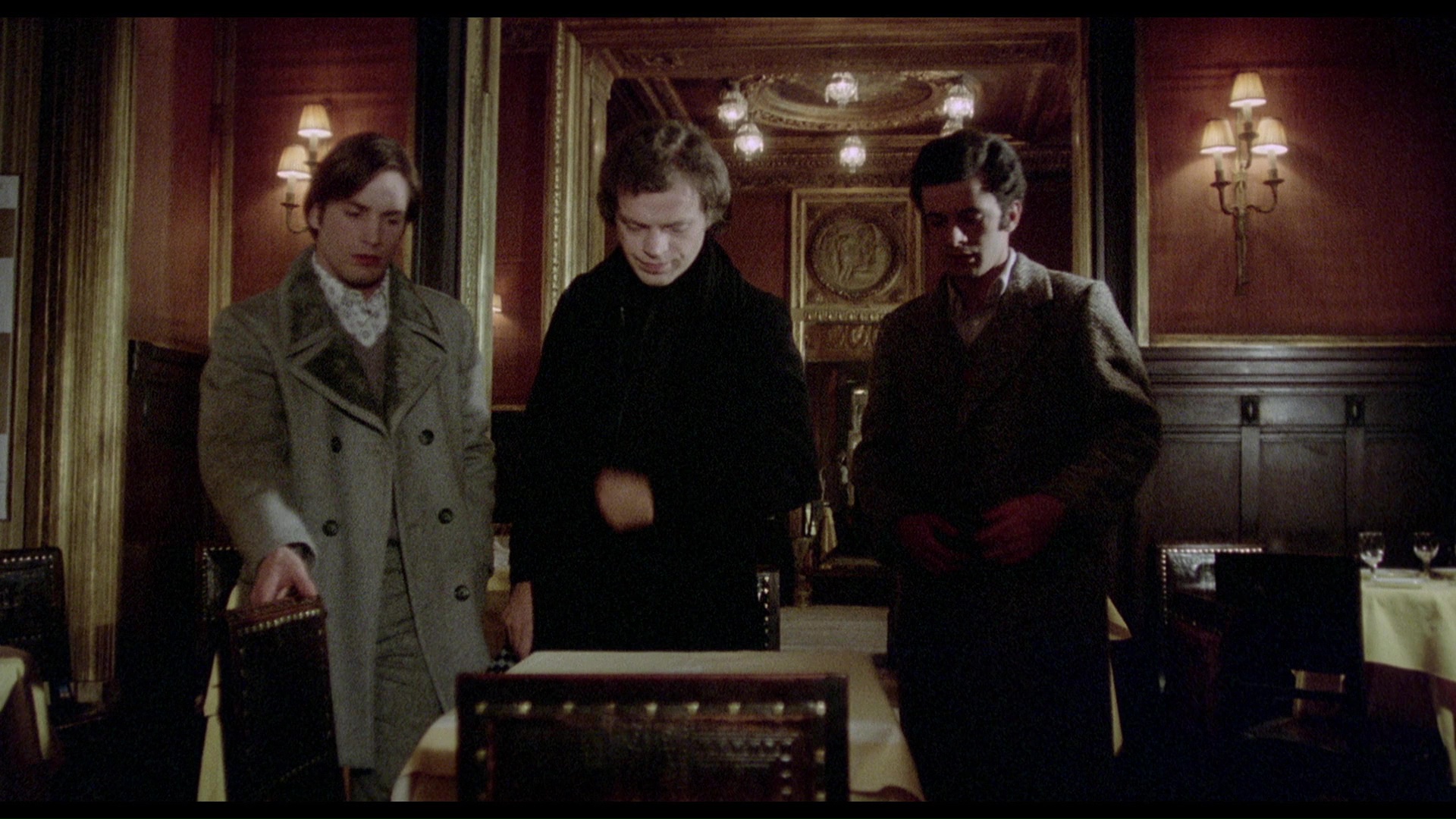 out of hand at a soccer match, they start committing antisocial acts for a passionless thrill, be it public disruptions or vehicular theft. Soon they're escalating to outright grand theft and even murder, with a wily but jaded commissioner (Enrico Maria Salerno) matching wits with Ovidio to bring them to justice.
out of hand at a soccer match, they start committing antisocial acts for a passionless thrill, be it public disruptions or vehicular theft. Soon they're escalating to outright grand theft and even murder, with a wily but jaded commissioner (Enrico Maria Salerno) matching wits with Ovidio to bring them to justice.
A dark, highly memorable crime film with an interestingly vicious portrayal by Dallesandro, this film has earned a reputation as one of the nastier crime offerings of its era mainly thanks to an outrageous bit involving a forklift and a topless woman that still packs a pretty shocking punch. Some other antisocial behavior is on hand as well, such as a demonstration of what overcrowded rats do to each other and the gruesome aftermath of the killing of a pimp, but in general the film doesn't wallow in sleaze as much as the subject matter might make you expect. The skillful actors and interesting portrayal of a '70s Italy wracked with lawlessness and a population run wild is quite potent for the most part, and the sort-of twist ending doesn't do much to assuage the audience's fears that this could be an 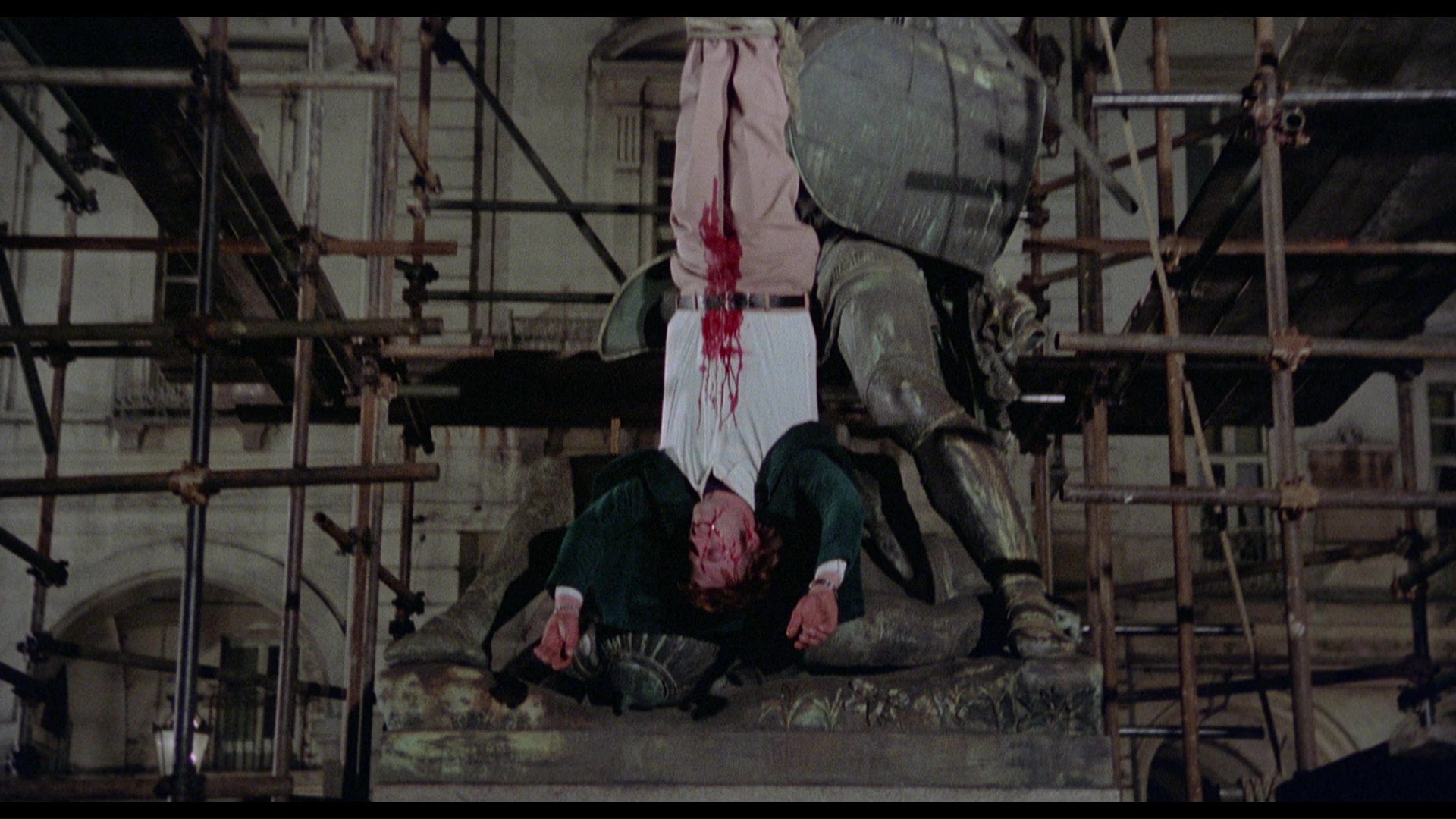 ongoing problem.
ongoing problem.
Often censored and 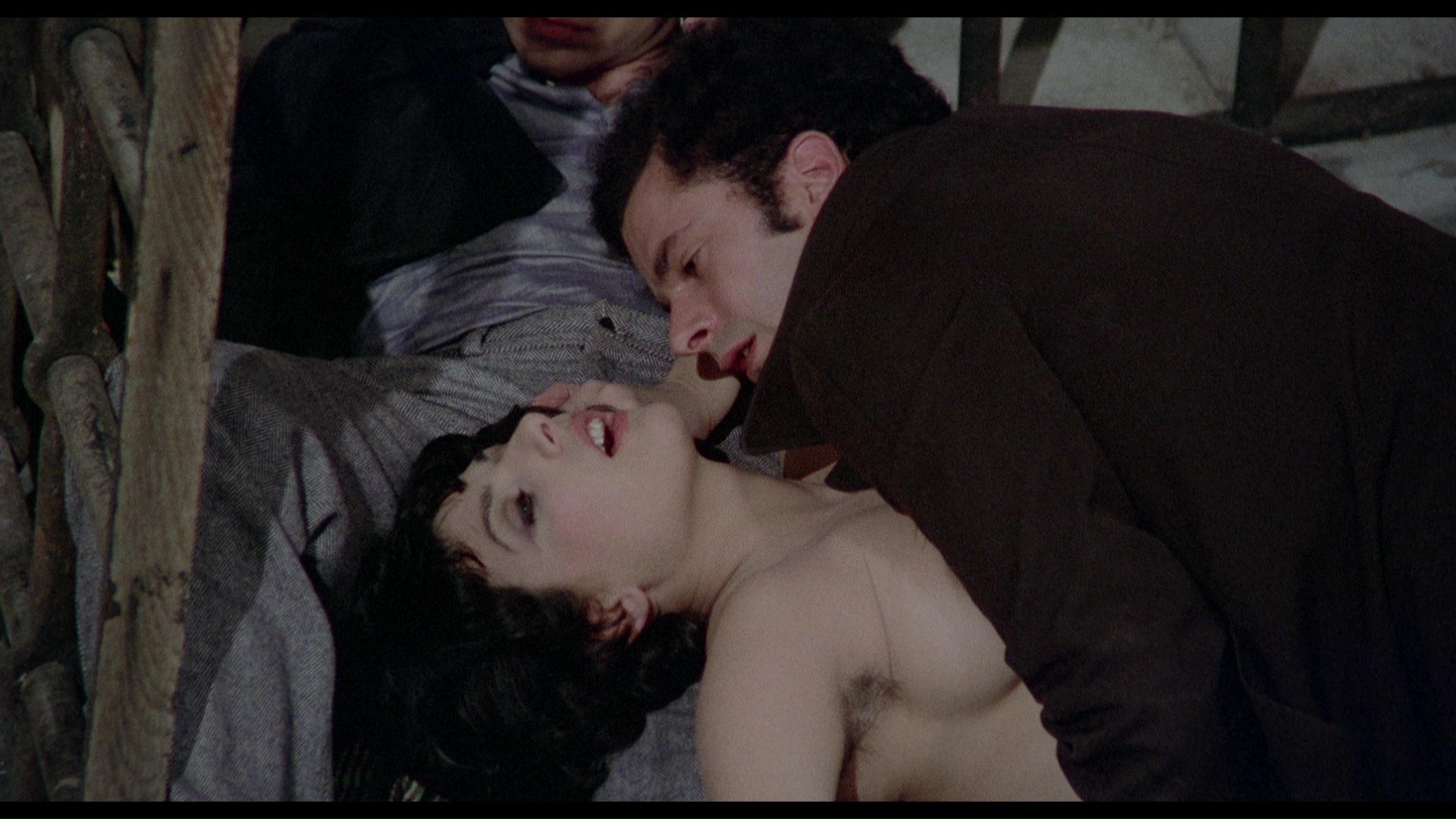 fairly difficult to see in anything resembling a legitimate video release for years, this film was prepared with both Italian and English language tracks; only Dallesandro was speaking English during shooting, and his voice was very poorly dubbed by someone else for the English edition (released on VHS in Greece and a couple of other territories) with a distracting, reedy voice that seriously undercut the film's effectiveness. A DVD release of this film popped up in Italy with no English-friendly options in 2011, but a deluxe edition popped up in 2017 from Camera Obscura, in separate Blu-ray or DVD variants. The Italian track is the only audio option here but that's perfectly fine as it's easily the best way to watch the film, and this marks the first time it's been legitimately available with English subtitles (or German ones as well). The transfer looks up to par with the label's other Italian releases, looking very film-like throughout with convincing grain and excellent detail.
fairly difficult to see in anything resembling a legitimate video release for years, this film was prepared with both Italian and English language tracks; only Dallesandro was speaking English during shooting, and his voice was very poorly dubbed by someone else for the English edition (released on VHS in Greece and a couple of other territories) with a distracting, reedy voice that seriously undercut the film's effectiveness. A DVD release of this film popped up in Italy with no English-friendly options in 2011, but a deluxe edition popped up in 2017 from Camera Obscura, in separate Blu-ray or DVD variants. The Italian track is the only audio option here but that's perfectly fine as it's easily the best way to watch the film, and this marks the first time it's been legitimately available with English subtitles (or German ones as well). The transfer looks up to par with the label's other Italian releases, looking very film-like throughout with convincing grain and excellent detail.
As usual for the label, you also get a very dense but sometimes humorous audio commentary, this time featuring Pelle Felsch and Christian Kessler going into the volatile nature of Italian politics and crime at the time, the portrayal of antisocial behavior on film, and in the strangest tangent, a rhapsody on what the children of Dallesandro and some of his female costars might have looked like. In 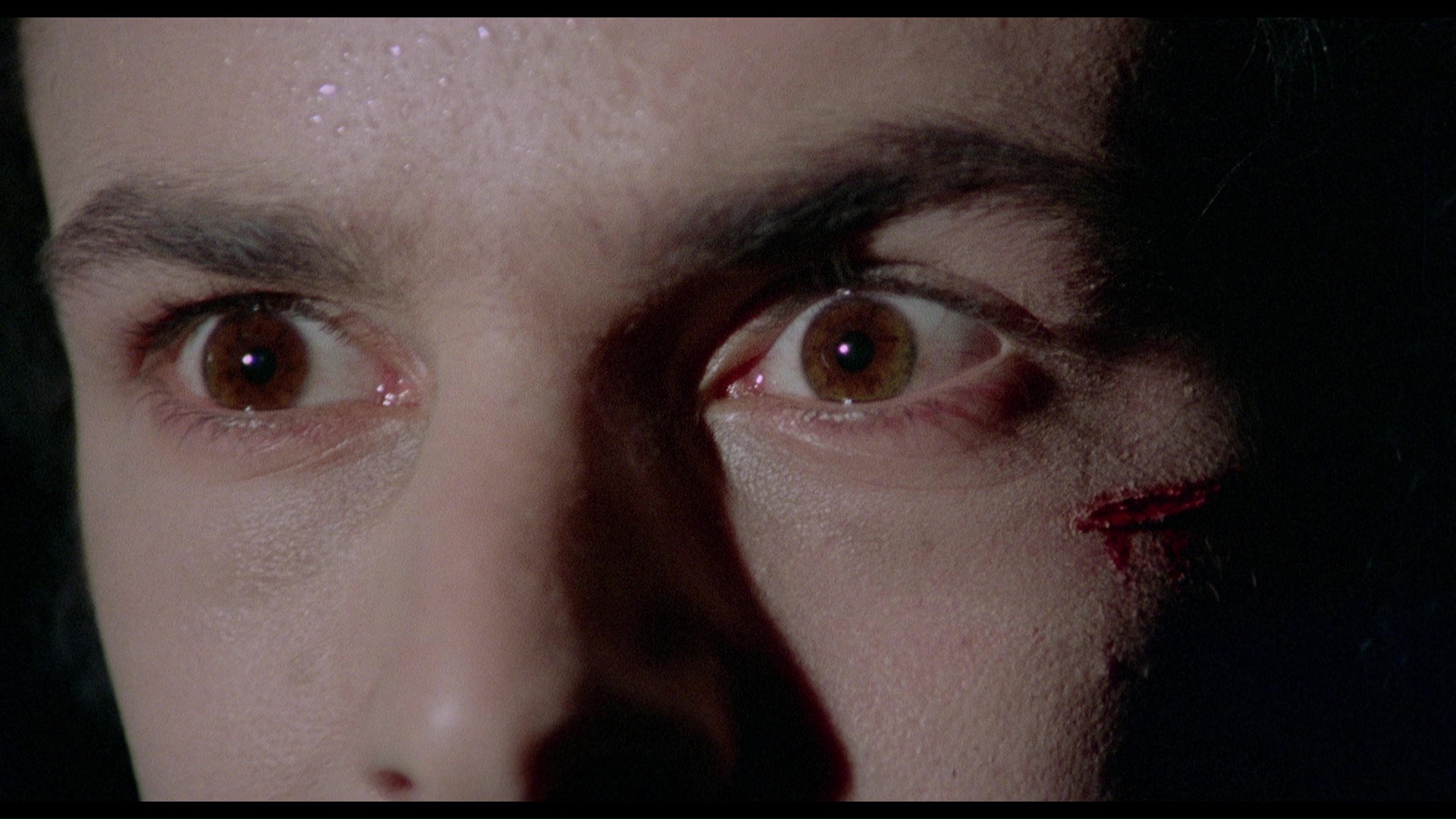 the
the 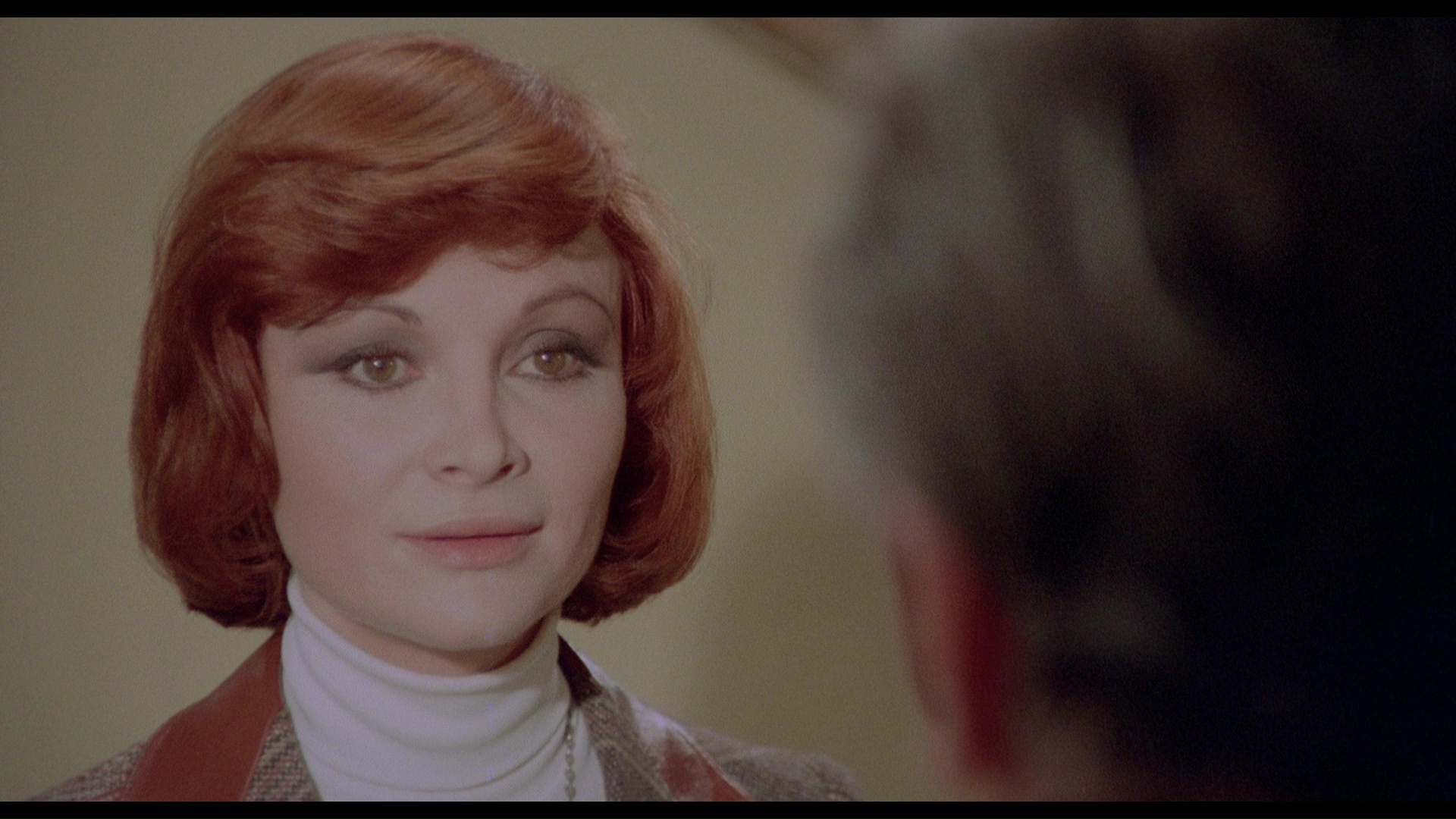 featurette "Rat Eat Rat" (39m8s), Vittorio Salerno and actress Martine Brochard explain how this film emerged from a collective of nine filmmakers who wanted to create low-budget films due to financial constraints at the time, with this one inspired by random territorial urban crimes at the time (symbolized by the real rat self-slaughter seen in the film). They also chat about the various cast members including Dallesandro, who was cast for his "somewhat weird face" and Warhol credentials despite the language barrier with no one else speaking English. Then Dallesandro says his piece with "The Savage One" (40m56s), which starts off with tales about making Lonesome Cowboys and his classic Paul Morrissey trilogy, which segued into his European period including foibles with bad interpreters, "stupid stunt guys," the "knucklehead" Martin Balsam, and a certain director who tended to answer his door with a gun, not to mention his less than flattering impressions of one of his fellow actors. The packaging also features an insert booklet with German or English liner notes by Robert Zion, "With Sticky Fingers in Hot Mud," which thoroughly lays out the mid-'70s Italian crime wave that served as a backdrop for this film and the strange acting career of Dallesandro, who took some critical hits for his supposedly non-actor status but still remains a popular and compelling figure in counterculture cinema today. The Arrow release ditches the commentary but ports over both of the featurettes and adds, rather humorously, a poster gallery with a singular image. Interestingly, while this box is a U.S. release there's also a version of the film authored on the disc complying with BBFC guidelines to remove a snippet of rodent fighting, which means this will probably get a U.K. release at some point down the line.
featurette "Rat Eat Rat" (39m8s), Vittorio Salerno and actress Martine Brochard explain how this film emerged from a collective of nine filmmakers who wanted to create low-budget films due to financial constraints at the time, with this one inspired by random territorial urban crimes at the time (symbolized by the real rat self-slaughter seen in the film). They also chat about the various cast members including Dallesandro, who was cast for his "somewhat weird face" and Warhol credentials despite the language barrier with no one else speaking English. Then Dallesandro says his piece with "The Savage One" (40m56s), which starts off with tales about making Lonesome Cowboys and his classic Paul Morrissey trilogy, which segued into his European period including foibles with bad interpreters, "stupid stunt guys," the "knucklehead" Martin Balsam, and a certain director who tended to answer his door with a gun, not to mention his less than flattering impressions of one of his fellow actors. The packaging also features an insert booklet with German or English liner notes by Robert Zion, "With Sticky Fingers in Hot Mud," which thoroughly lays out the mid-'70s Italian crime wave that served as a backdrop for this film and the strange acting career of Dallesandro, who took some critical hits for his supposedly non-actor status but still remains a popular and compelling figure in counterculture cinema today. The Arrow release ditches the commentary but ports over both of the featurettes and adds, rather humorously, a poster gallery with a singular image. Interestingly, while this box is a U.S. release there's also a version of the film authored on the disc complying with BBFC guidelines to remove a snippet of rodent fighting, which means this will probably get a U.K. release at some point down the line.
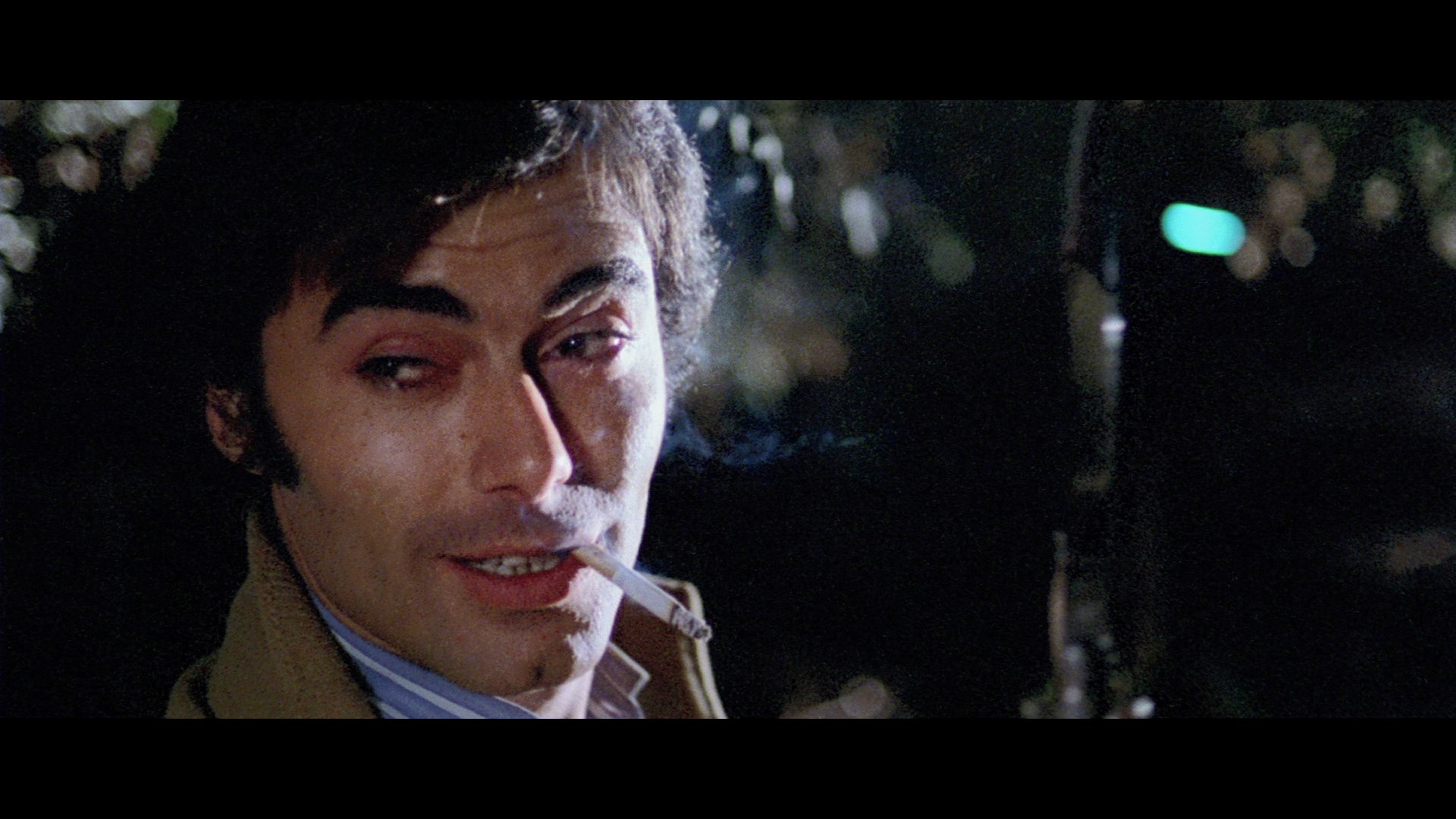 With its funky, pop-laden soundtrack and aggressive scenes of violence and police pursuit, it's logical to classify the other film on disc one, Come Cani Arrabiati (who title translates as Like Rabid Dogs,
With its funky, pop-laden soundtrack and aggressive scenes of violence and police pursuit, it's logical to classify the other film on disc one, Come Cani Arrabiati (who title translates as Like Rabid Dogs, 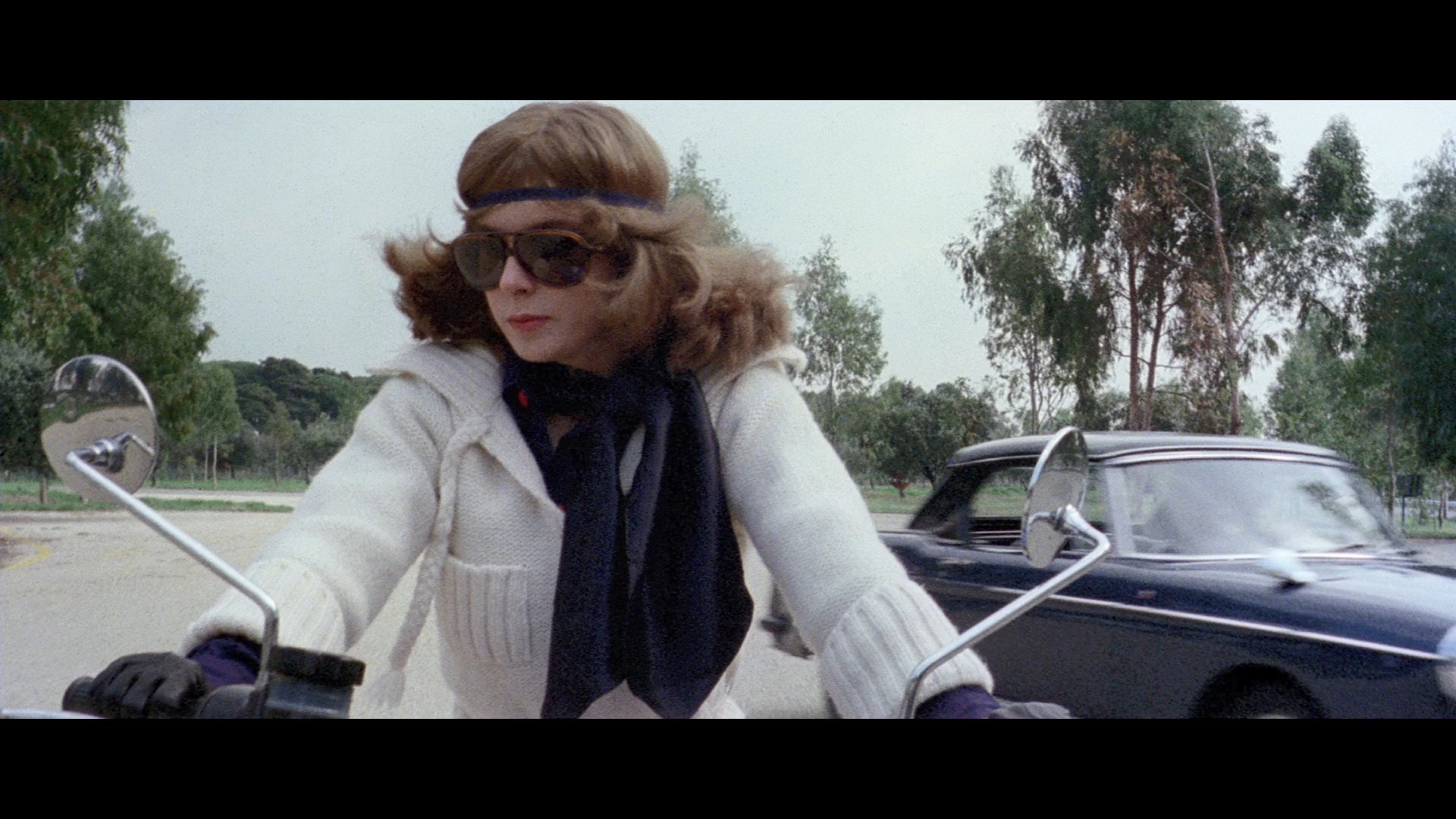 similar to a certain Mario Bava crime film), as part of the poliziotteschi wave; however, it also falls squarely in the juvenile delinquent category, in line with such social outrage films as Naked Violence and Because of the Cats with marauding youths tearing apart the fabric of society just because they can. This one was barely seen outside of Italy, with only a scarce Greek VHS commemorating it on home video until its surprising and very welcome revival.
similar to a certain Mario Bava crime film), as part of the poliziotteschi wave; however, it also falls squarely in the juvenile delinquent category, in line with such social outrage films as Naked Violence and Because of the Cats with marauding youths tearing apart the fabric of society just because they can. This one was barely seen outside of Italy, with only a scarce Greek VHS commemorating it on home video until its surprising and very welcome revival.
The action starts when two masked men hold up a sports stadium during a big soccer match and shoot one of the guards in the head, which sends intrepid Inspector Paolo Muzi (Sabagh) prowling through the criminal underworld including, uh, zookeepers. As it turns out, the crime is part of a spree of violent muggings, rapes, and heists masterminded by Tony (Deported Women of the SS Special Section's Barro), a rich, spoiled psycho who's recruited his cynical college friends, Rico (Evil Eye's La Torre) and Sylvia (Grapputo), into a sort of amoral criminal club freed from society's rules. Things escalate 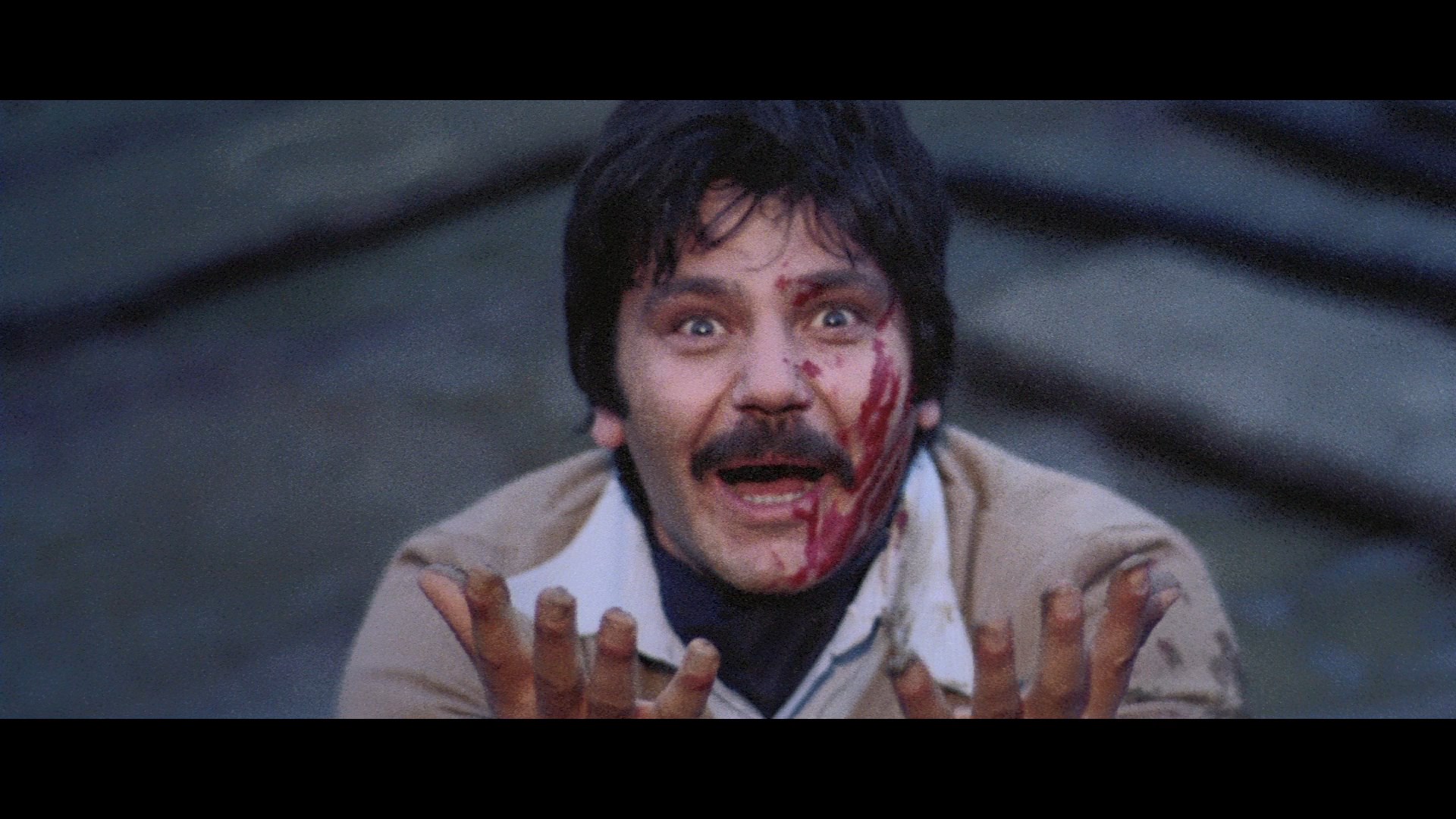 when the trio takes a female hostage after one stickup and winds up terrorizing and murdering her in a bathtub, after which they decide to set their sights on the local hooker population. That gives Paolo the idea to plant an undercover female operative (Salon Kitty's
when the trio takes a female hostage after one stickup and winds up terrorizing and murdering her in a bathtub, after which they decide to set their sights on the local hooker population. That gives Paolo the idea to plant an undercover female operative (Salon Kitty's 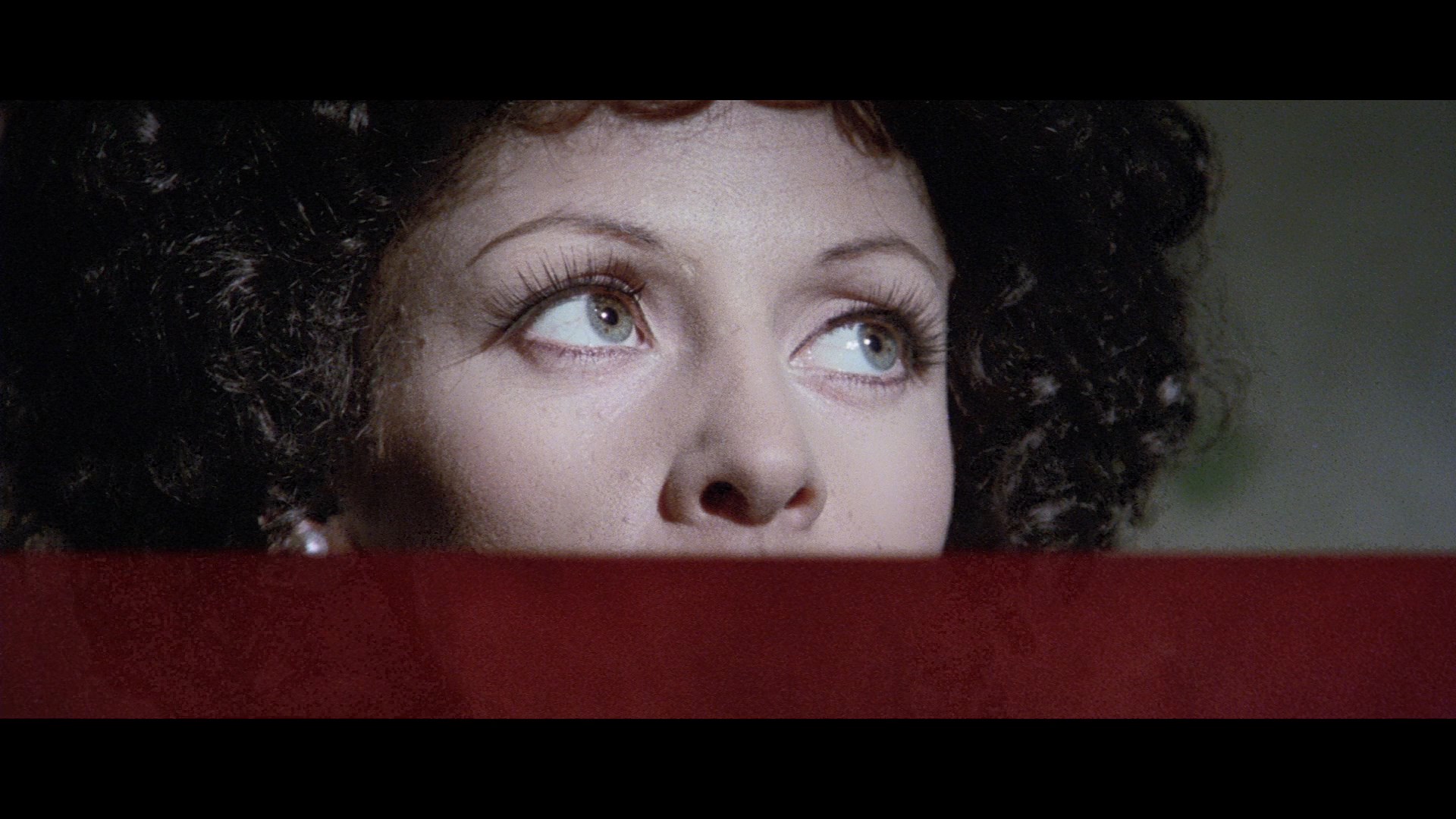 Senatore) on the scene (who also happens to be his bedmate), but that in turn leads to another unexpected chain of bloody consequences as the frustrated investigator finds his progress halted at every turn.
Senatore) on the scene (who also happens to be his bedmate), but that in turn leads to another unexpected chain of bloody consequences as the frustrated investigator finds his progress halted at every turn.
Come Cani Arrabbiati is an unusual change of pace for director Mario Imperioli, who passed away at the young age of 46 a year after this was released. He was best known for his two hit sex comedies with Gloria Guida, Blue Jeans and Monika, and he pulls out all the exploitation stops here with bloody bullet gags and rampant nudity. However, he also subverts viewer expectations by stressing the cop hero's inability to crack the social barriers that keep the evildoers protected from prosecution, culminating in a truly outrageous and unexpected finale involving a group of socialist protesters that feels like Bernardo Bertolucci on acid. The film features loads of other surprises, too, most notably including a bizarre quasi-comic blackface riff on Othello and an incident involving an affluent gay couple on a boat that adds another strange layer to the film's already unorthodox view of society.
In keeping with their stellar track record, Camera Obscura brought this fascinating gem out of obscurity in 2014 with an excellent transfer retaining the gaudy '70s color scheme and rich, gritty texture of the original film. It looks great in motion and appears to be an immaculate transfer from a negative that's probably 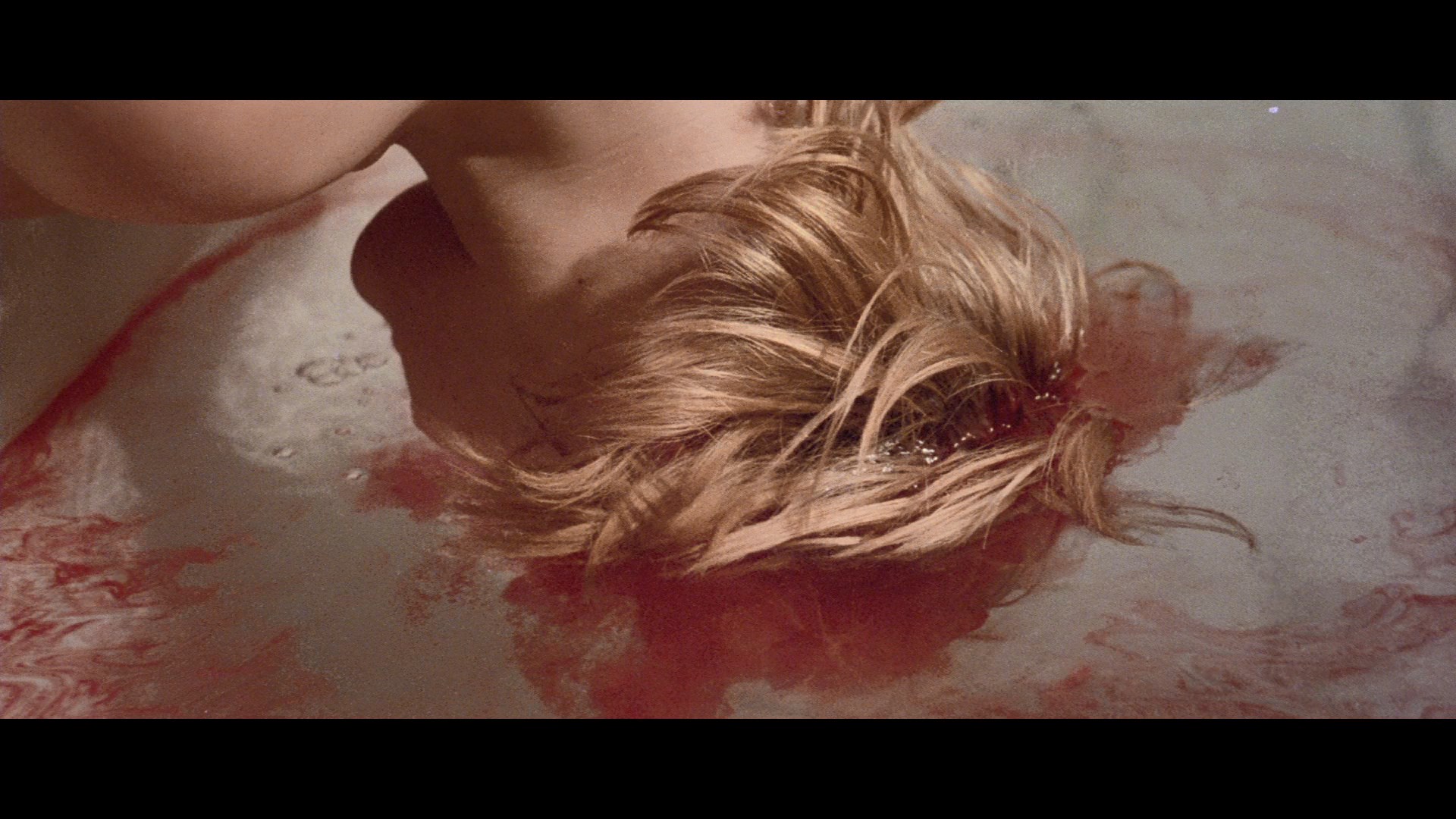 been sitting unattended for decades. The Italian mono track is
been sitting unattended for decades. The Italian mono track is 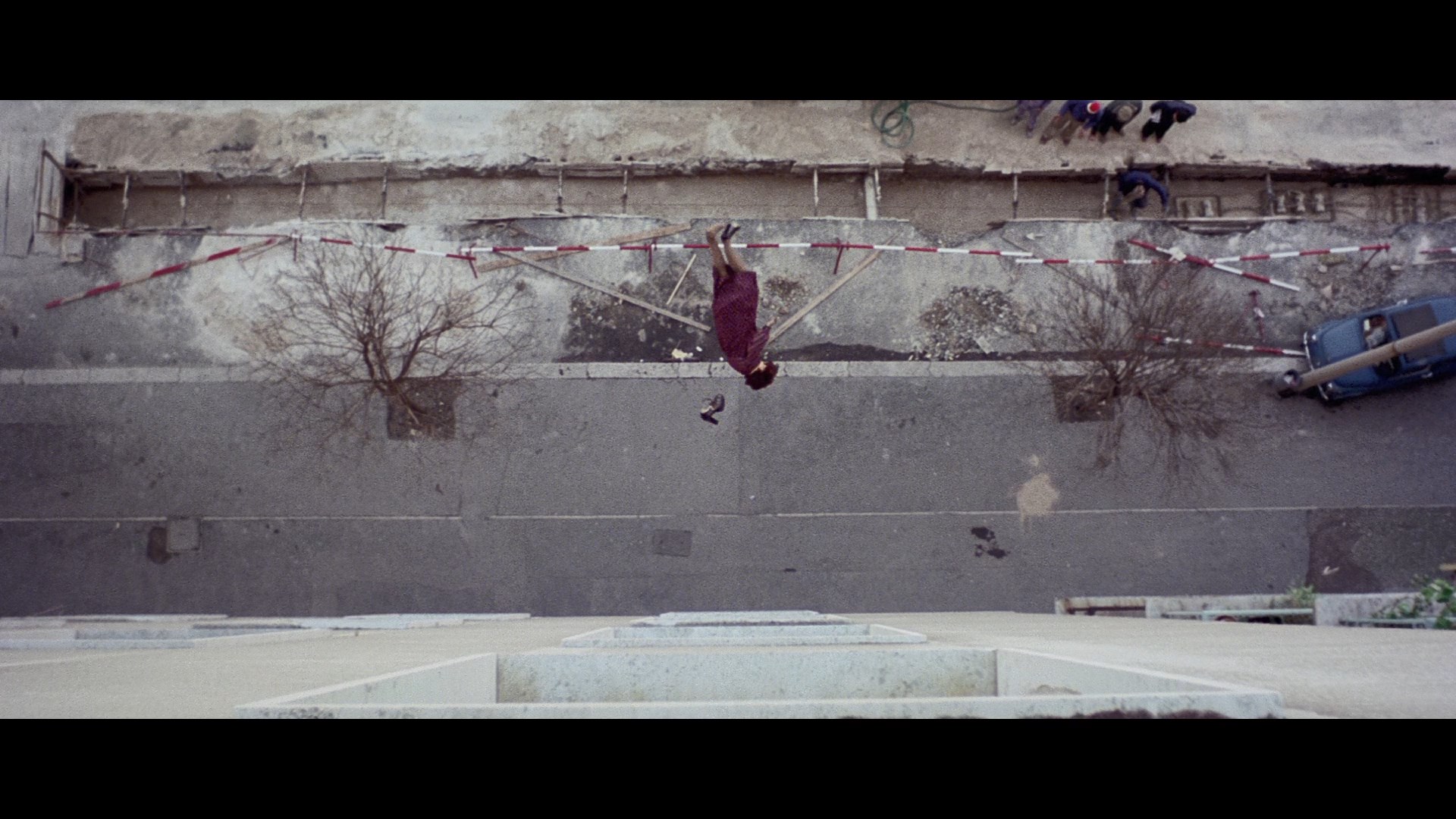 presented in DTS-HD with optional English and German subtitles, and usual, there's also an audio commentary (in German with optional English subs) by Christian Kessler and Marcus Stiglegger, whose amiable rapport should be very familiar to the label's fans by now. As usual they do a solid job dissecting the Italian genres being pulled apart here and rattle through the credits for almost everyone on the screen, with a particular focus on Imperioli's brief but colorful career. The first featurette here, "When a Murderer Dies" (51m57s) with film historian Fabio Melelli frames the last video interview with cinematographer Romano Albani, who went on to Dario Argento's Inferno. Both of them discuss Imperioli at length and also cover the influence of cinematographer Luciano Tovoli, who played a vital role in the careers of both men. "It's Not a Time for Tears" (don't worry, these titles make more sense when you've seen the film) devotes 32m55s to assistant director Claudio Bernabei, who goes through this film and the rest of his career including other familiar characters like his mentor, Joe D'Amato. Finally the set closes out with the very lively theatrical trailer and liner notes by Kai Naumann, who traces the film's themes back to Baudelaire of all people and studies it as a descendant of A Clockwork Orange. The Arrow version retains the two featurettes and trailer but also adds a two-track music sampler (6m1s) pulled from a rare 45 vinyl release, plus another
presented in DTS-HD with optional English and German subtitles, and usual, there's also an audio commentary (in German with optional English subs) by Christian Kessler and Marcus Stiglegger, whose amiable rapport should be very familiar to the label's fans by now. As usual they do a solid job dissecting the Italian genres being pulled apart here and rattle through the credits for almost everyone on the screen, with a particular focus on Imperioli's brief but colorful career. The first featurette here, "When a Murderer Dies" (51m57s) with film historian Fabio Melelli frames the last video interview with cinematographer Romano Albani, who went on to Dario Argento's Inferno. Both of them discuss Imperioli at length and also cover the influence of cinematographer Luciano Tovoli, who played a vital role in the careers of both men. "It's Not a Time for Tears" (don't worry, these titles make more sense when you've seen the film) devotes 32m55s to assistant director Claudio Bernabei, who goes through this film and the rest of his career including other familiar characters like his mentor, Joe D'Amato. Finally the set closes out with the very lively theatrical trailer and liner notes by Kai Naumann, who traces the film's themes back to Baudelaire of all people and studies it as a descendant of A Clockwork Orange. The Arrow version retains the two featurettes and trailer but also adds a two-track music sampler (6m1s) pulled from a rare 45 vinyl release, plus another 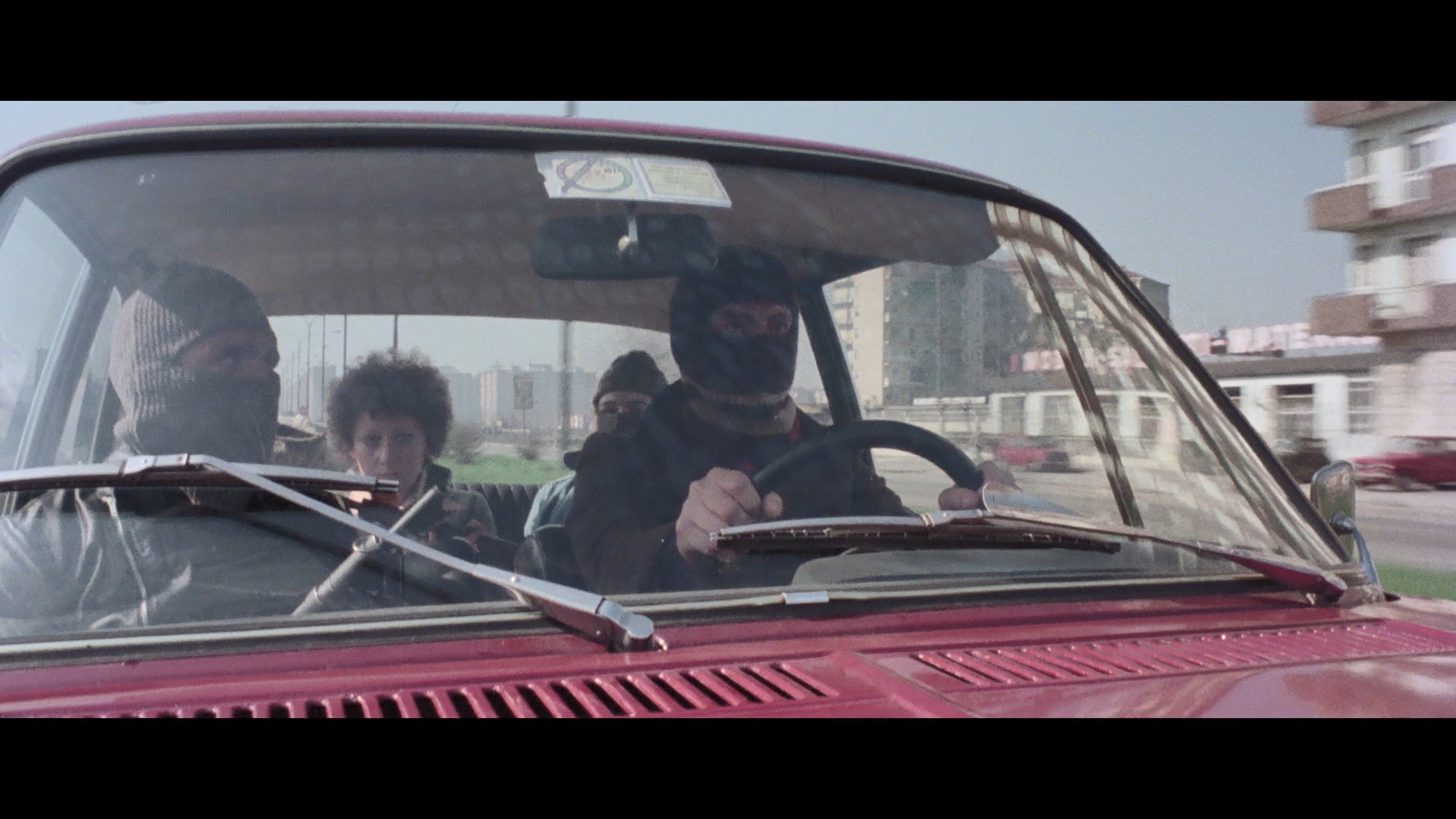 single image poster
single image poster 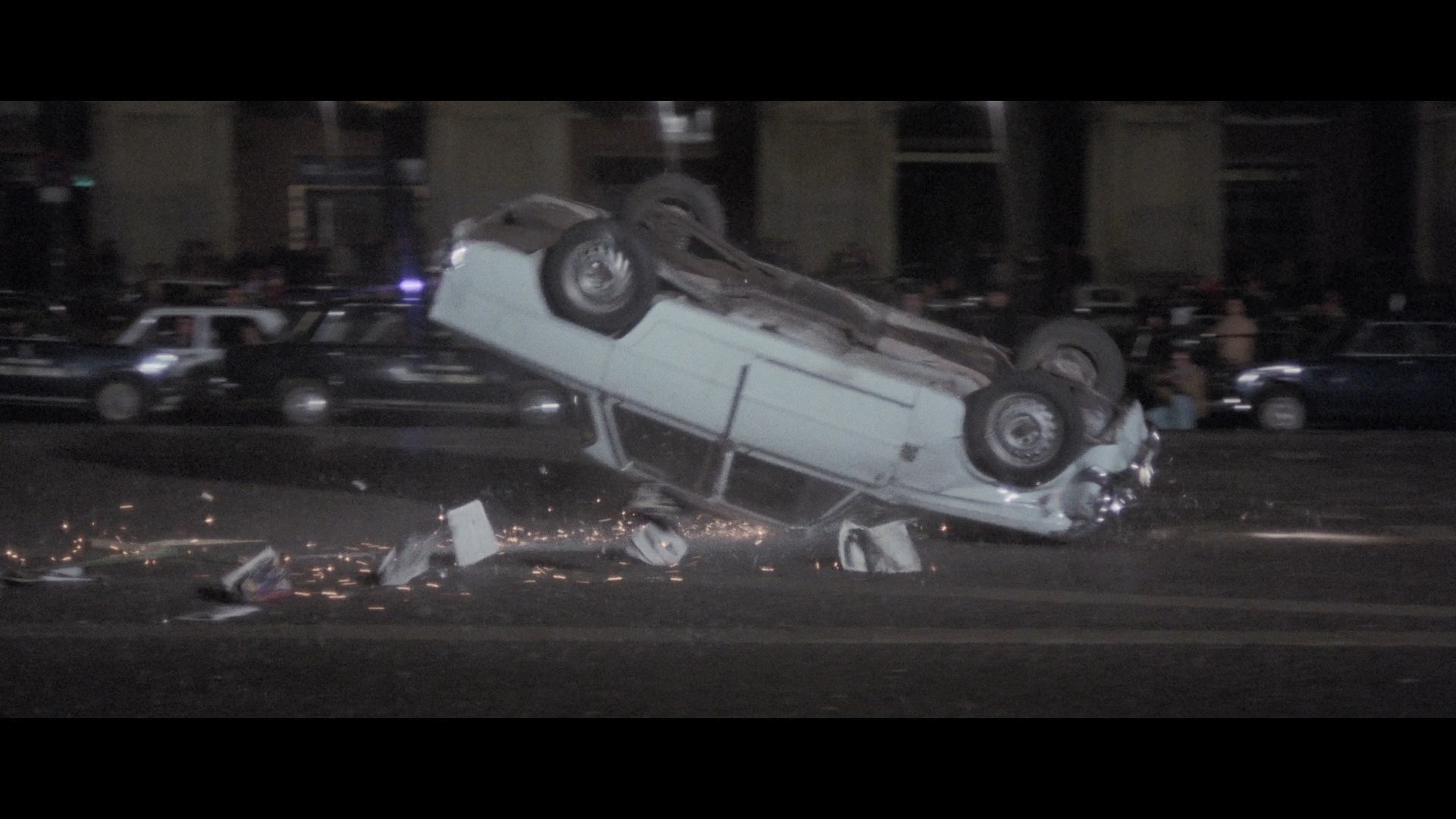 gallery.
gallery.
On we go to disc two with the title that's never had a Blu-ray release of any kind before, Colt 38 Special Squad (or Quelli della calibro 38), presented here in a nice new 2K restoration. Wasting no time getting the body count going in the opening moments and propelled by a lively Stelvio Cipriani score, this was the final film for cinematographer turned director Massimo Dallamano, who died in a car crash the year this was released. Best known for films like What Have You Done to Solange?, What Have They Done to Your Daughters?, and Dorian Gray, he had already dipped his toes into these waters with 1973's entertaining Superbitch and proves here he could still stage a gritty action scene with the best of 'em.
When a job orchestrated by a Marseilles crime kingpin known as the Black Angel (All the Colors of the Dark's Rassimov) spills across an entire apartment building and leads to the shooting of a woman 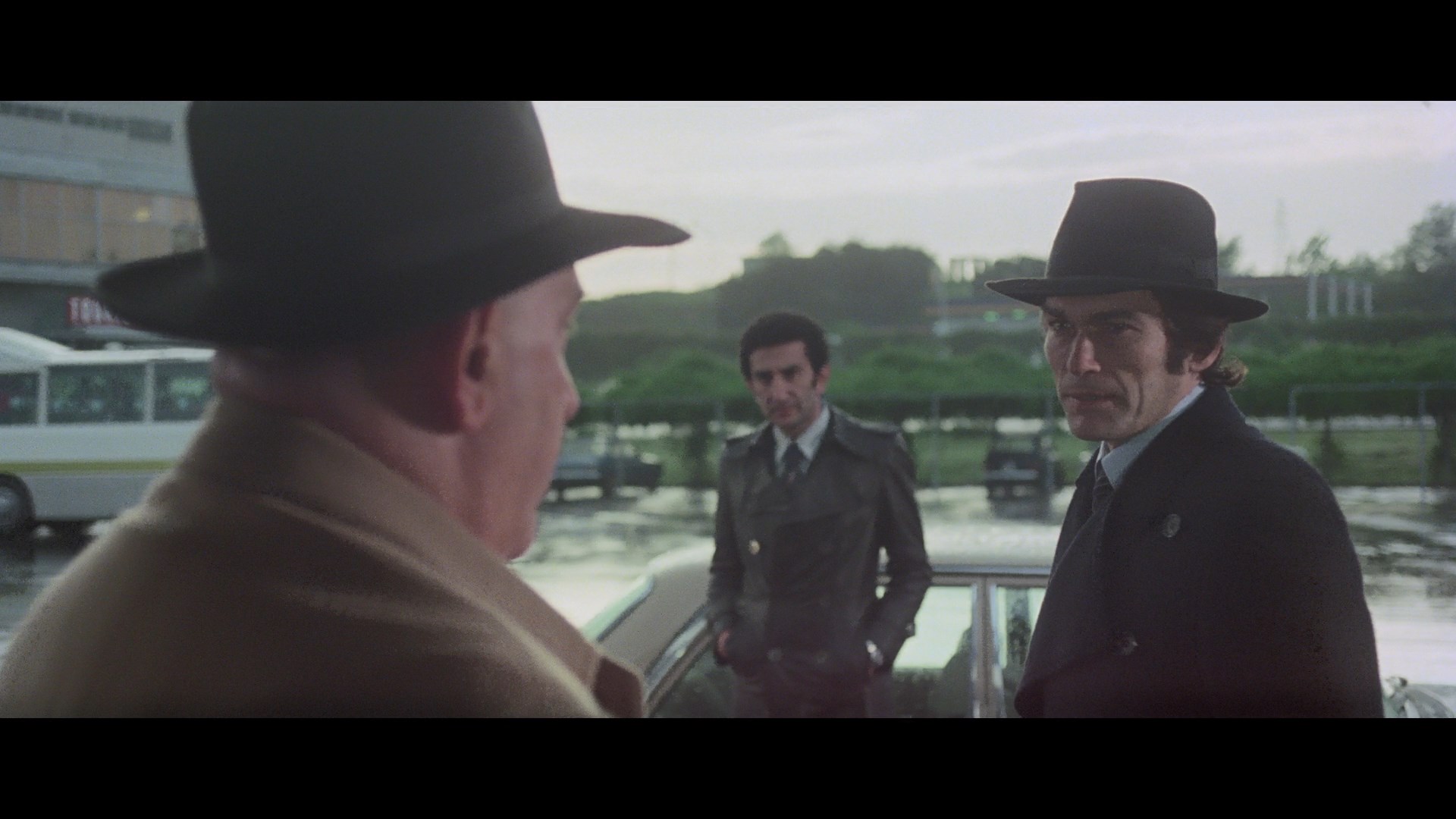 in front of her young son, it's actually a vendetta against her husband, Turin police captain Vanni (Bozzuffi). Deciding enough is enough, Vanni takes the law into his own hands. Gathering up unlicensed .38 Colt revolvers and apparently inspired by a viewing of
in front of her young son, it's actually a vendetta against her husband, Turin police captain Vanni (Bozzuffi). Deciding enough is enough, Vanni takes the law into his own hands. Gathering up unlicensed .38 Colt revolvers and apparently inspired by a viewing of 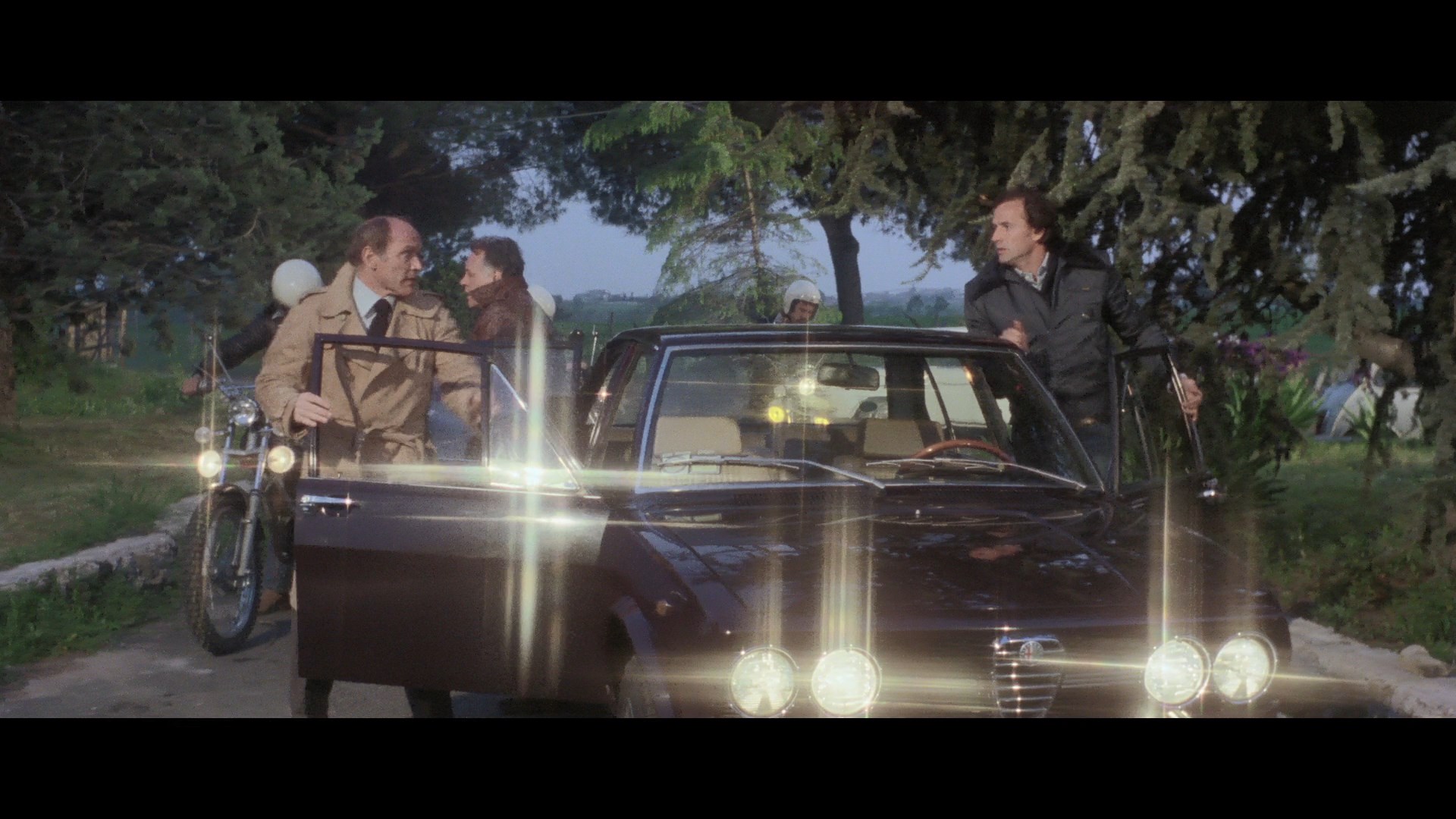 Magnum Force, he builds up an underground four-man squad of enforcers determined to take down the crime syndicate in their city. Of course, the gangsters don't take the attacks lightly, resulting in a firestorm of bullets, bombings, motorcycle chases, and overturned cars aplenty.
Magnum Force, he builds up an underground four-man squad of enforcers determined to take down the crime syndicate in their city. Of course, the gangsters don't take the attacks lightly, resulting in a firestorm of bullets, bombings, motorcycle chases, and overturned cars aplenty.
Stylish and fast-paced with some truly eye-popping action scenes, Colt 38 Special Squad delivers the goods from the opening scene and is rightfully one that fans of the subgenre have championed for years. Dallamano gives the film a slick look with snappy scope framing and sparing but effective use of star filters to give it a little extra '70s gloss, and the soundtrack is a real joy including some Grace Jones contributions 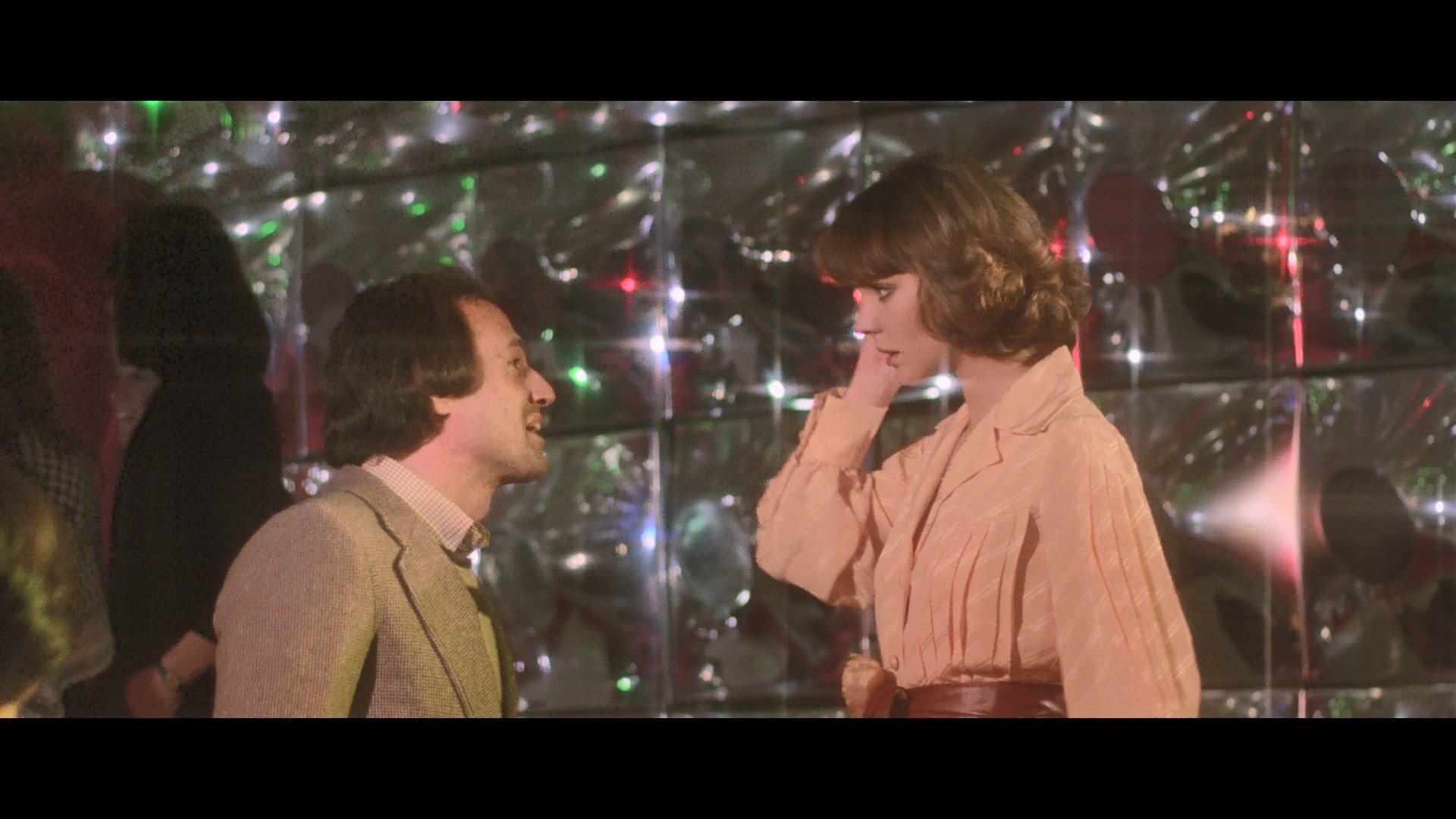 obviously from the same Cipriani sessions later used in Umberto Lenzi's Nightmare City.
obviously from the same Cipriani sessions later used in Umberto Lenzi's Nightmare City.
Dallamano's film first appeared on DVD from NoShame back in 2006 as a two-disc set paired up with Luciano Ercoli's La Bidonata, a.k.a. The Big Rip-Off. The transfer looked great for the time, and the disc came with a video intro by Cipriani (45s) 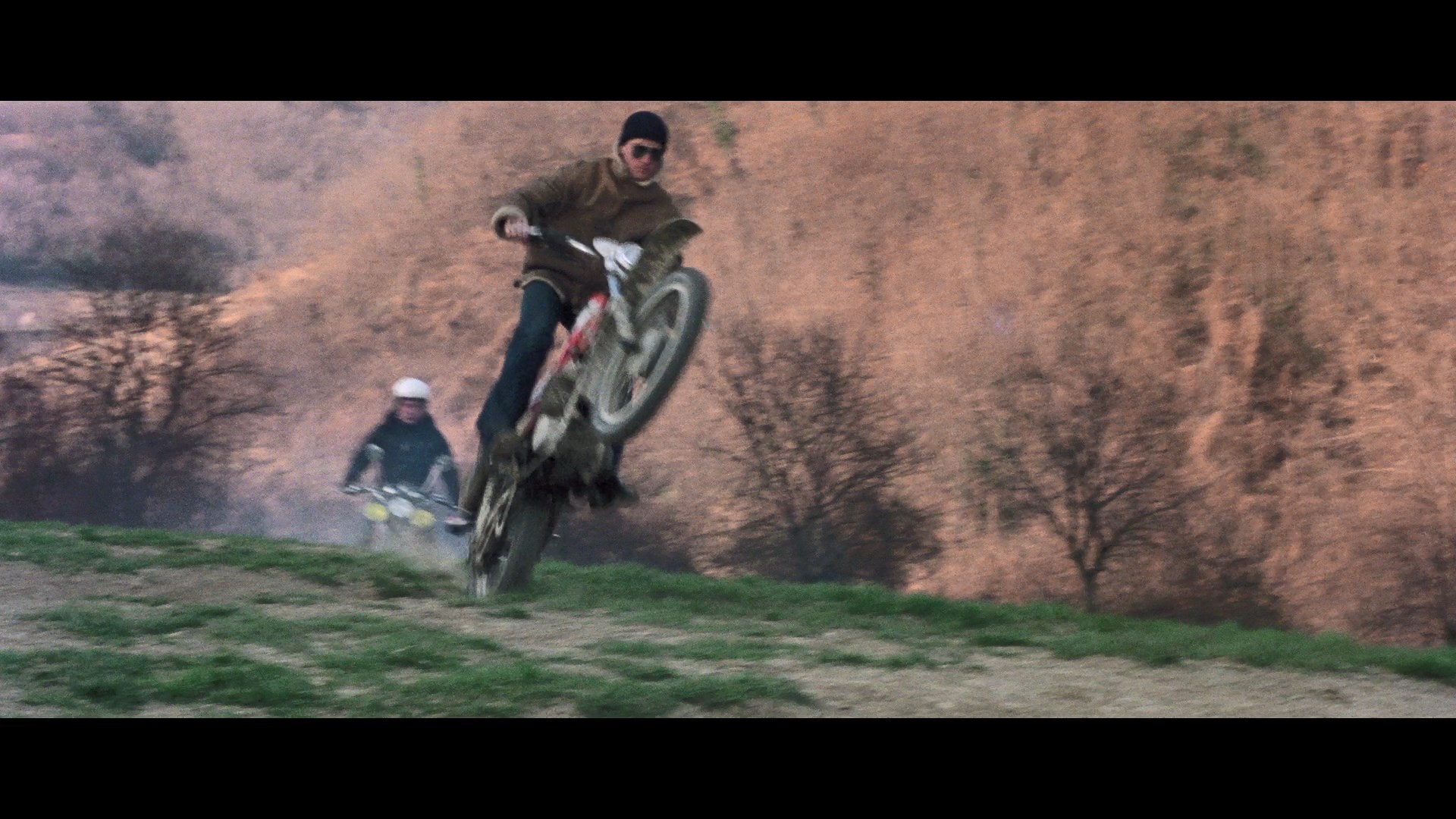 and an interview with him, "A Special Groove for a Very Special Squad" (25m48s), both of which are ported over to Arrow's Blu-ray (with the Cipriani featurette listed on the menu as "Always the Same Ol' 7 Notes"). Also from the DVD and present on the Blu-ray is "A Tough Guy" (9m31s) with Antonio Siciliano, plus the Italian trailer and a four-image poster gallery. The transfer looks excellent and makes for a substantial upgrade over the already solid DVD, with more image info on the sides, significantly more detail, and good color grading similar to the earlier release (which is a good thing). Both the Italian and English tracks are included here (both worthy in their own way) with optional English subtitles.
and an interview with him, "A Special Groove for a Very Special Squad" (25m48s), both of which are ported over to Arrow's Blu-ray (with the Cipriani featurette listed on the menu as "Always the Same Ol' 7 Notes"). Also from the DVD and present on the Blu-ray is "A Tough Guy" (9m31s) with Antonio Siciliano, plus the Italian trailer and a four-image poster gallery. The transfer looks excellent and makes for a substantial upgrade over the already solid DVD, with more image info on the sides, significantly more detail, and good color grading similar to the earlier release (which is a good thing). Both the Italian and English tracks are included here (both worthy in their own way) with optional English subtitles.
Only one Italian cop action film features the line "Come on, poopy-pants, you're lucky I got a grip on this ride" before the main titles are even finished... and 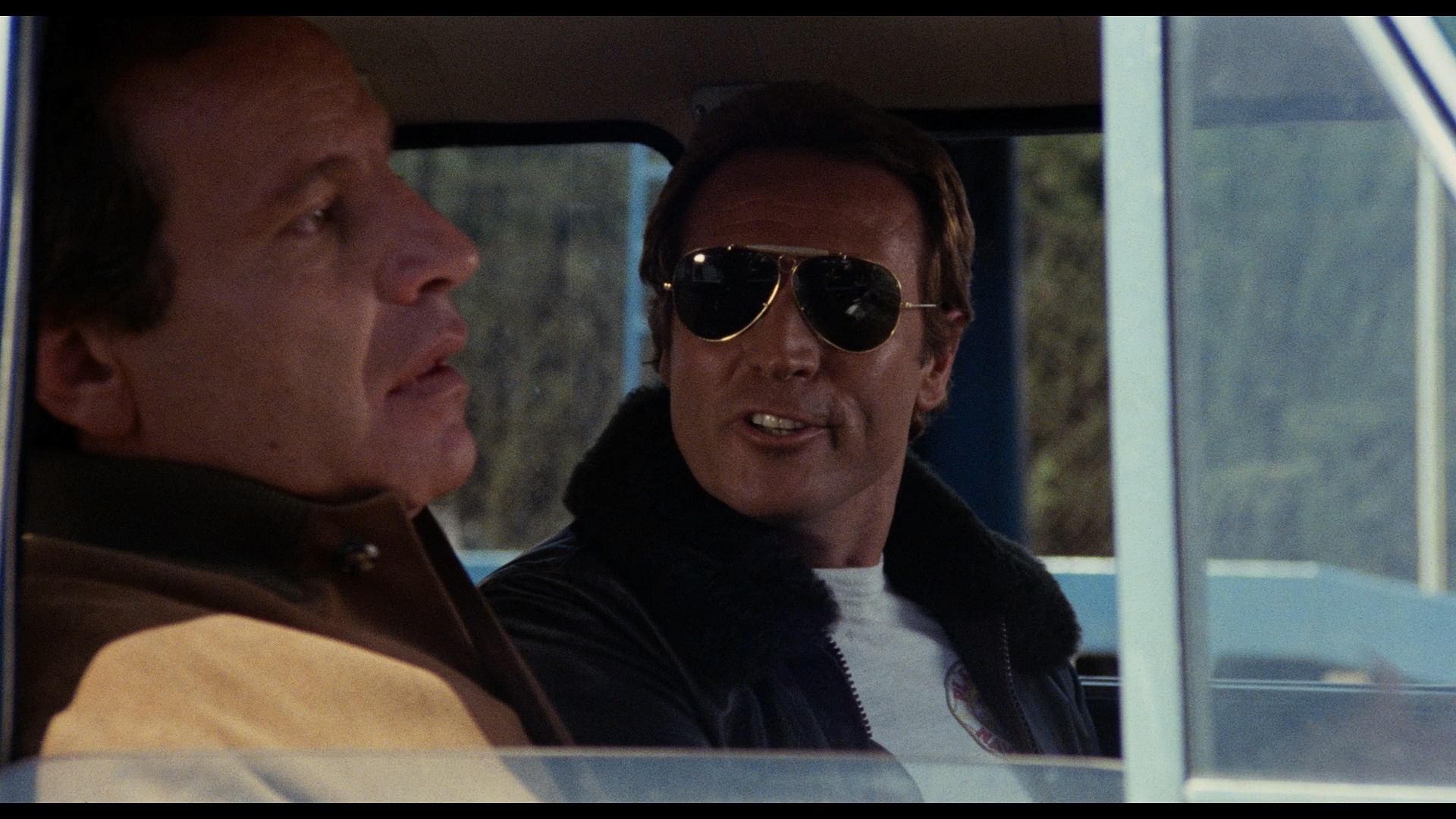 that honor goes to Poliziotto Sprint, also shopped around under the English title Highway Racer but barely screened outside of Italy and Japan. Sharing space on disc two of the Arrow set, this was the first of six entertaining collaborations
that honor goes to Poliziotto Sprint, also shopped around under the English title Highway Racer but barely screened outside of Italy and Japan. Sharing space on disc two of the Arrow set, this was the first of six entertaining collaborations 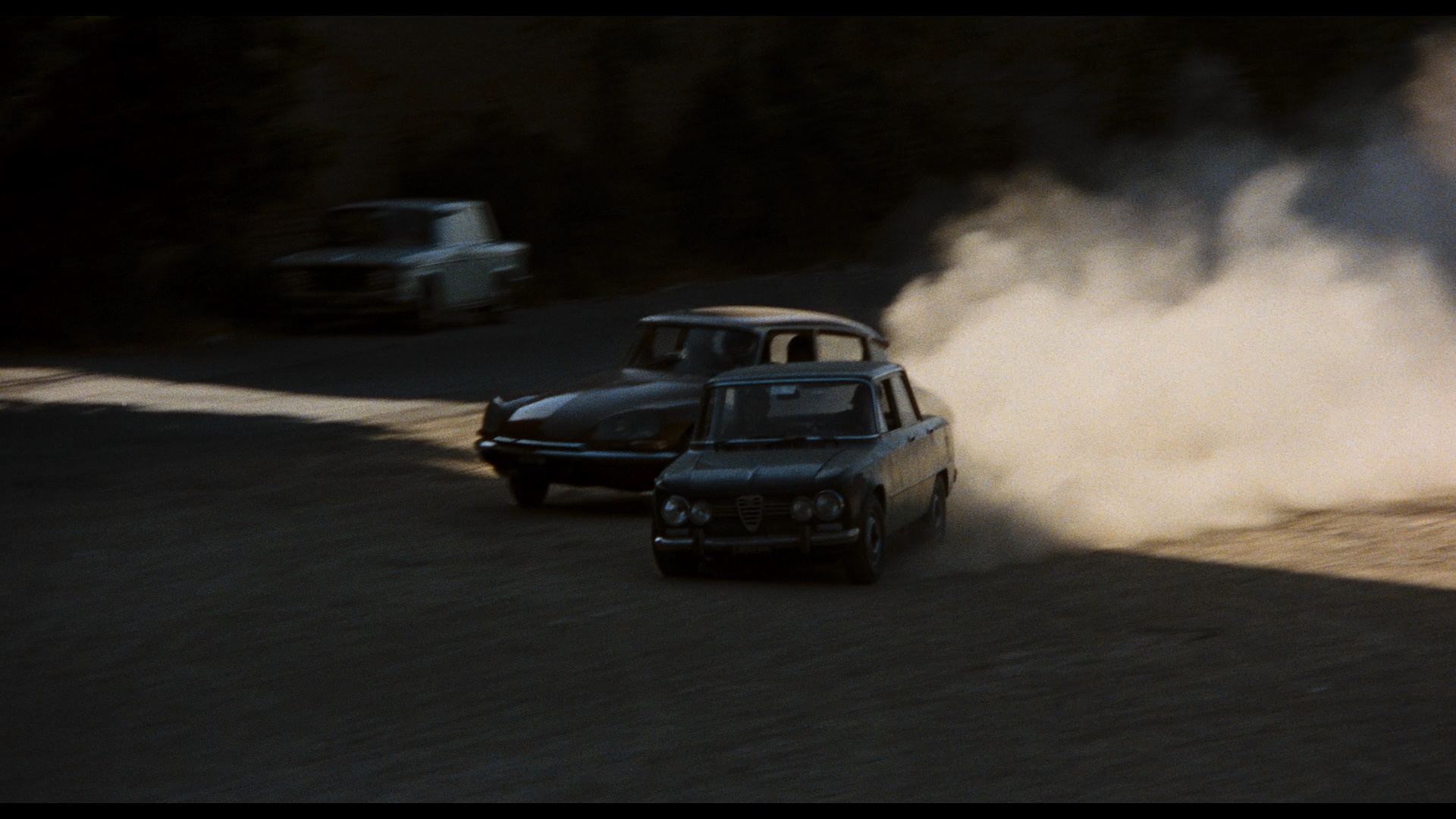 between director Stelvio Massi and poliziotteschi star Maurizio Merli, who had shot to fame just two years earlier with Roma Violenta and cranked out numerous instant classics in the interim including The Tough Ones, Violent Naples, A Special Cop in Action, Mannaja, and The Cynic, the Rat, and the Fist. Here he loses his trademark mustache (or "copstache," as the German synopsis puts it) and delivers one of his sunniest performances as a car-crazy cop who manages to turn Rome into a wild demolition derby. Another box office hit, it paved the way for the remaining Merli-Massi films like Convoy Busters, Magnum Cop, and The Rebel.
between director Stelvio Massi and poliziotteschi star Maurizio Merli, who had shot to fame just two years earlier with Roma Violenta and cranked out numerous instant classics in the interim including The Tough Ones, Violent Naples, A Special Cop in Action, Mannaja, and The Cynic, the Rat, and the Fist. Here he loses his trademark mustache (or "copstache," as the German synopsis puts it) and delivers one of his sunniest performances as a car-crazy cop who manages to turn Rome into a wild demolition derby. Another box office hit, it paved the way for the remaining Merli-Massi films like Convoy Busters, Magnum Cop, and The Rebel.
After a car chase goes bad and he ends up in an ambulance along with his partner, officer Marco Palma (Merli) insists he could have gotten the perps with a lot more horsepower. His girlfriend, Francesca (To Be Twenty's Carati, bearing a startling resemblance to Isabelle Adjani), works in a sports car dealership and gives him the idea to approach his superior about dealing with these criminals driving "souped-up beasts." In fact, it's apparent that the gang currently 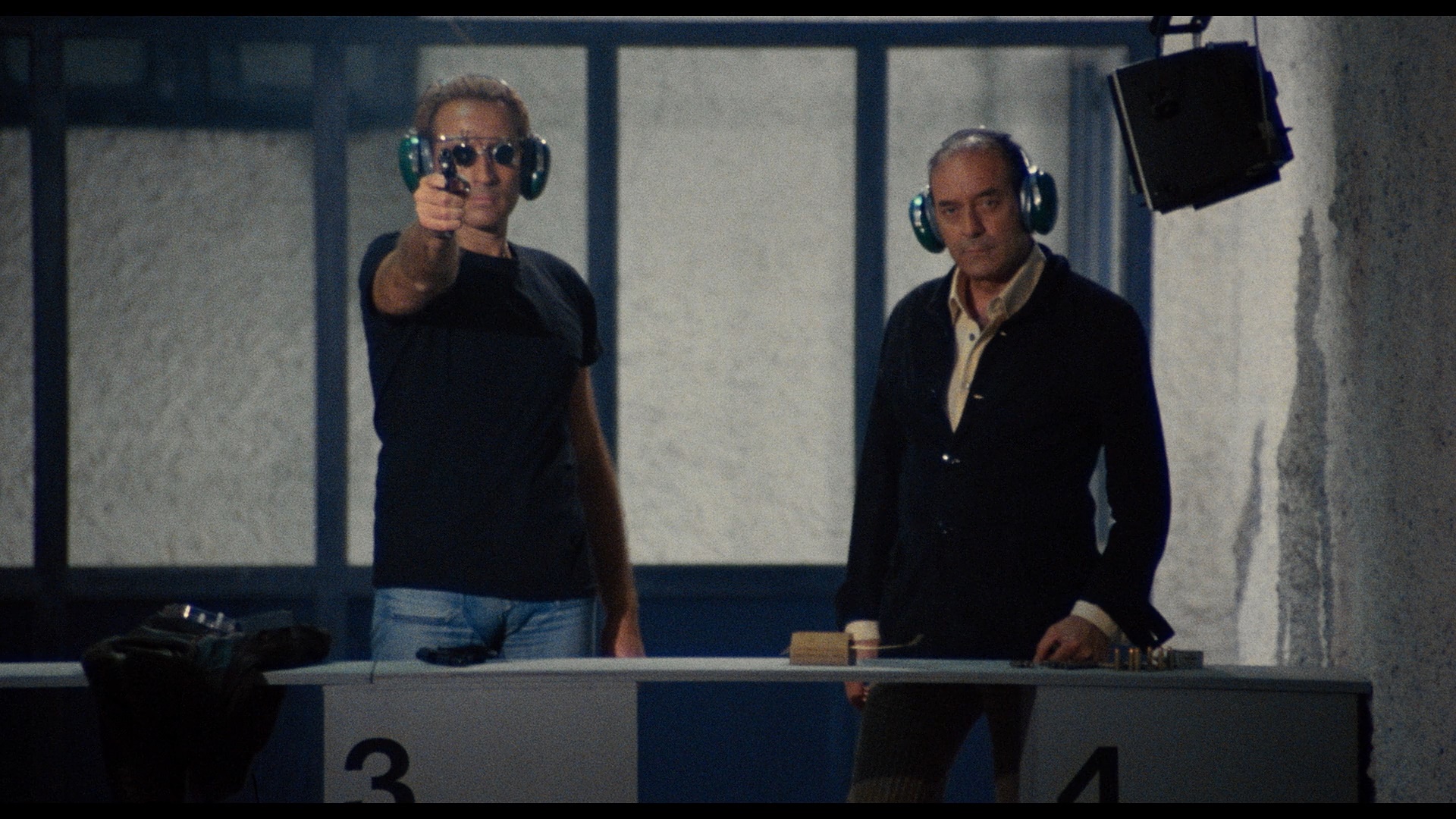
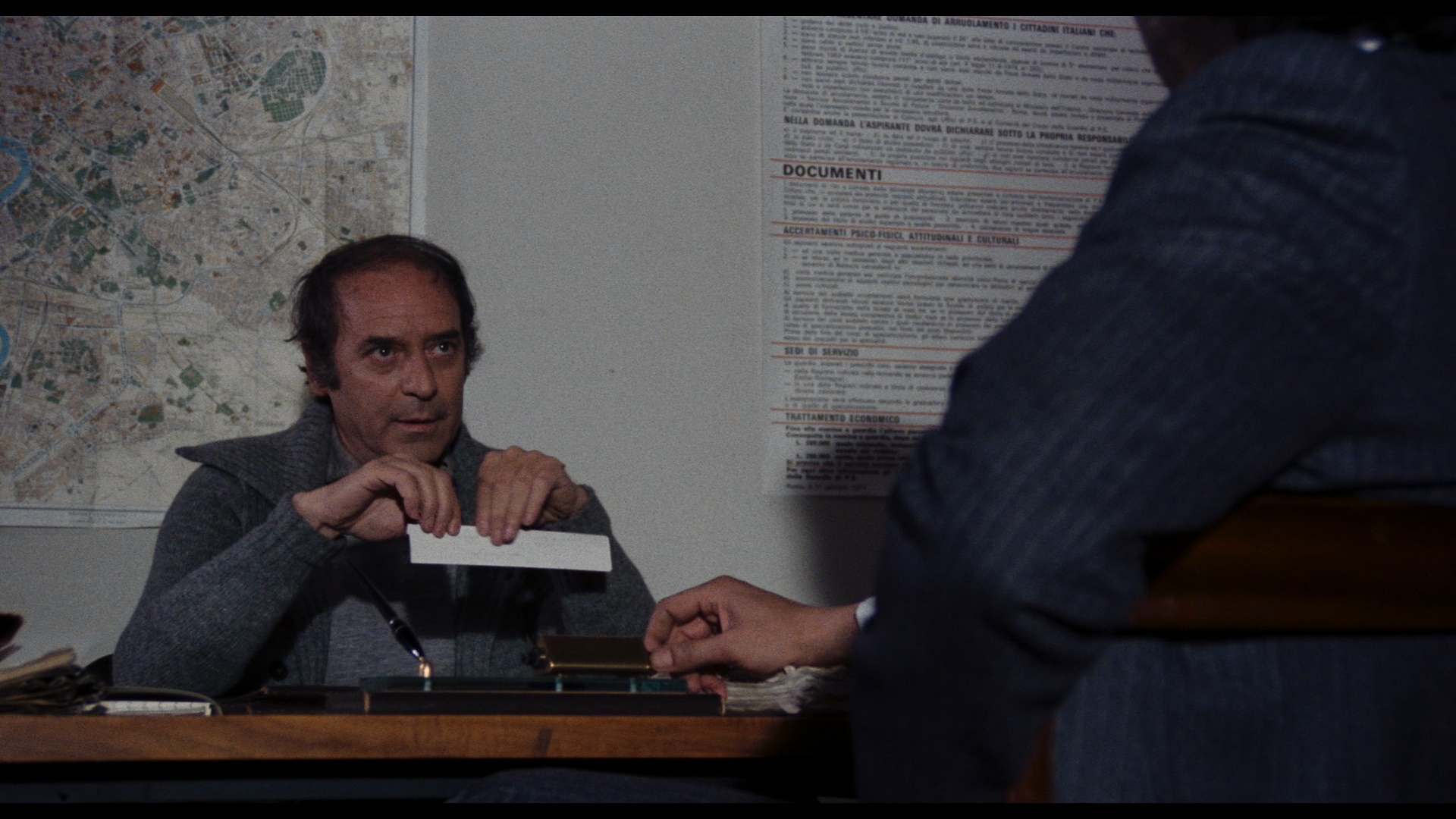 striking all over town has a pro race car driver as its getaway driver, and when tragedy strikes and Palma disobeys orders, he gives his notice -- but his boss, Tagliaferri (Death Rage's Sbragia), has even earned the respect of the ringleader, Dossena (The Valachi Papers' Infanti), a.k.a. "Il Nizzardo," with his former driving acumen and encourages Palma to go undercover. The secret weapon: refurbishing a Ferrari back to racing condition to get Palma on the same playing field, with Tagliaferri getting his driving skills up to snuff.
striking all over town has a pro race car driver as its getaway driver, and when tragedy strikes and Palma disobeys orders, he gives his notice -- but his boss, Tagliaferri (Death Rage's Sbragia), has even earned the respect of the ringleader, Dossena (The Valachi Papers' Infanti), a.k.a. "Il Nizzardo," with his former driving acumen and encourages Palma to go undercover. The secret weapon: refurbishing a Ferrari back to racing condition to get Palma on the same playing field, with Tagliaferri getting his driving skills up to snuff.
Energetically scored by Cipriani again (complete with some amusing cribbing from Iron Butterfly, not for the only time) and loaded with great '70s Rome location footage, Poliziotto Sprint is a great blast of action filmmaking with a huge number of car chases and crazy stunts with the number of totaled cars seeming to rack up in the dozens. The actual crime plot is paper thin and even vanishes for long stretches, especially during Palma's training in the second act, but that's perfectly fine since you get to see Merli in fine form along with lots of auto action.
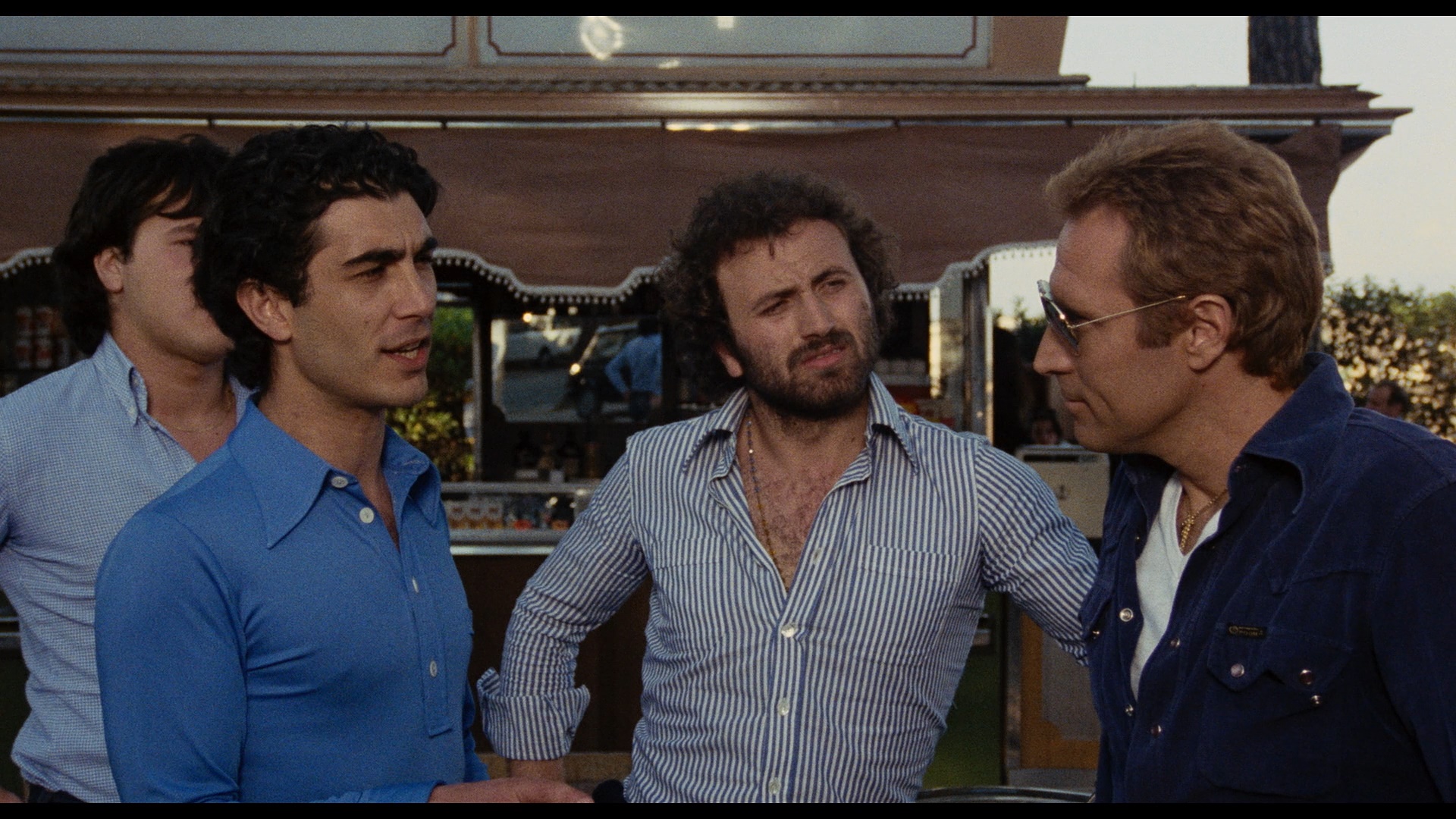 Given that there's only a slim video history for this film including an Italian DVD with no English-friendly options,
Given that there's only a slim video history for this film including an Italian DVD with no English-friendly options, 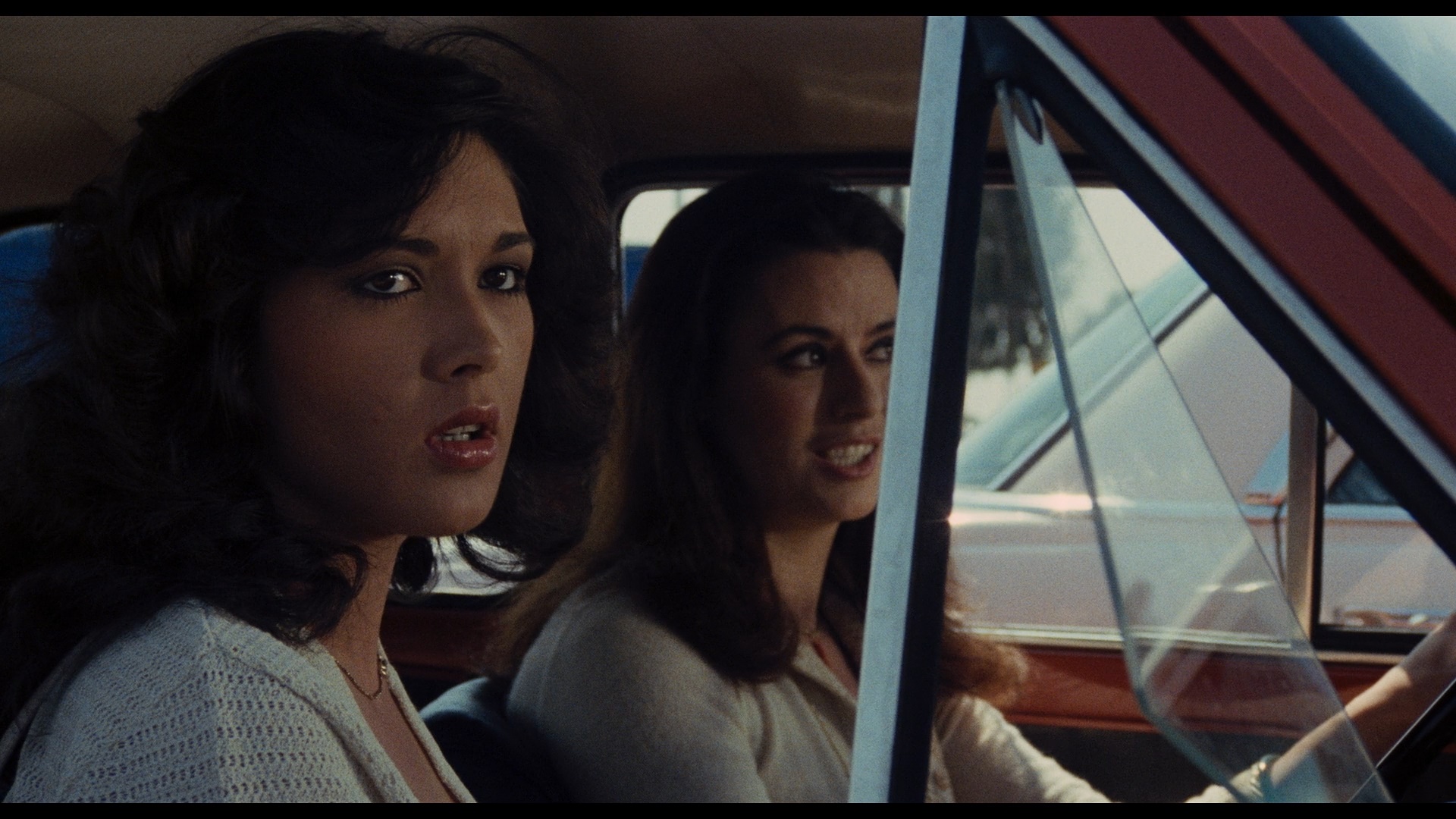 it should go without saying that the Blu-rays are the best way by far to experience this underrated chunk of poliziottesco fun. The transfer first debuted from Camera Obscura and retained for the Arrow edition looks excellent and has a nice grain structure throughout, while colors and detail are very healthy and impressive. Italian and German audio options are provided (LPCM mono) on the Camera Obscura with optional English or German subtitles; given that this film was actually shot in Italian with the actors appearing to all provide their own voices, that's definitely the way to watch it. The Arrow manages to pull off a nice coup by featuring not only the Italian subtitled track but adding the very rare English dub as well, which is utterly ridiculous and great to finally behold. The one big video extra here is "Faster Than a Bullet" (19m43s) with film historian Roberto Curti chatting about Merli's career at the time (and the familiarity of his mustache), the unique characteristics of this film and its main character, the screeching tires heard when young audiences got out of seeing this film in theaters, and the general car chase craze at the time epitomized by Smokey and the Bandit. A gallery of 28 stills and posters is also included in the Camera Obscura (with a more modest three posters in the Arrow one), whose slipcase / digipak packaging features an insert booklet with an essay by Christian Kessler, "A Song of Junk and Sheet Metal," about the film's place in the poliziotteschi canon.
it should go without saying that the Blu-rays are the best way by far to experience this underrated chunk of poliziottesco fun. The transfer first debuted from Camera Obscura and retained for the Arrow edition looks excellent and has a nice grain structure throughout, while colors and detail are very healthy and impressive. Italian and German audio options are provided (LPCM mono) on the Camera Obscura with optional English or German subtitles; given that this film was actually shot in Italian with the actors appearing to all provide their own voices, that's definitely the way to watch it. The Arrow manages to pull off a nice coup by featuring not only the Italian subtitled track but adding the very rare English dub as well, which is utterly ridiculous and great to finally behold. The one big video extra here is "Faster Than a Bullet" (19m43s) with film historian Roberto Curti chatting about Merli's career at the time (and the familiarity of his mustache), the unique characteristics of this film and its main character, the screeching tires heard when young audiences got out of seeing this film in theaters, and the general car chase craze at the time epitomized by Smokey and the Bandit. A gallery of 28 stills and posters is also included in the Camera Obscura (with a more modest three posters in the Arrow one), whose slipcase / digipak packaging features an insert booklet with an essay by Christian Kessler, "A Song of Junk and Sheet Metal," about the film's place in the poliziotteschi canon.
Finally we 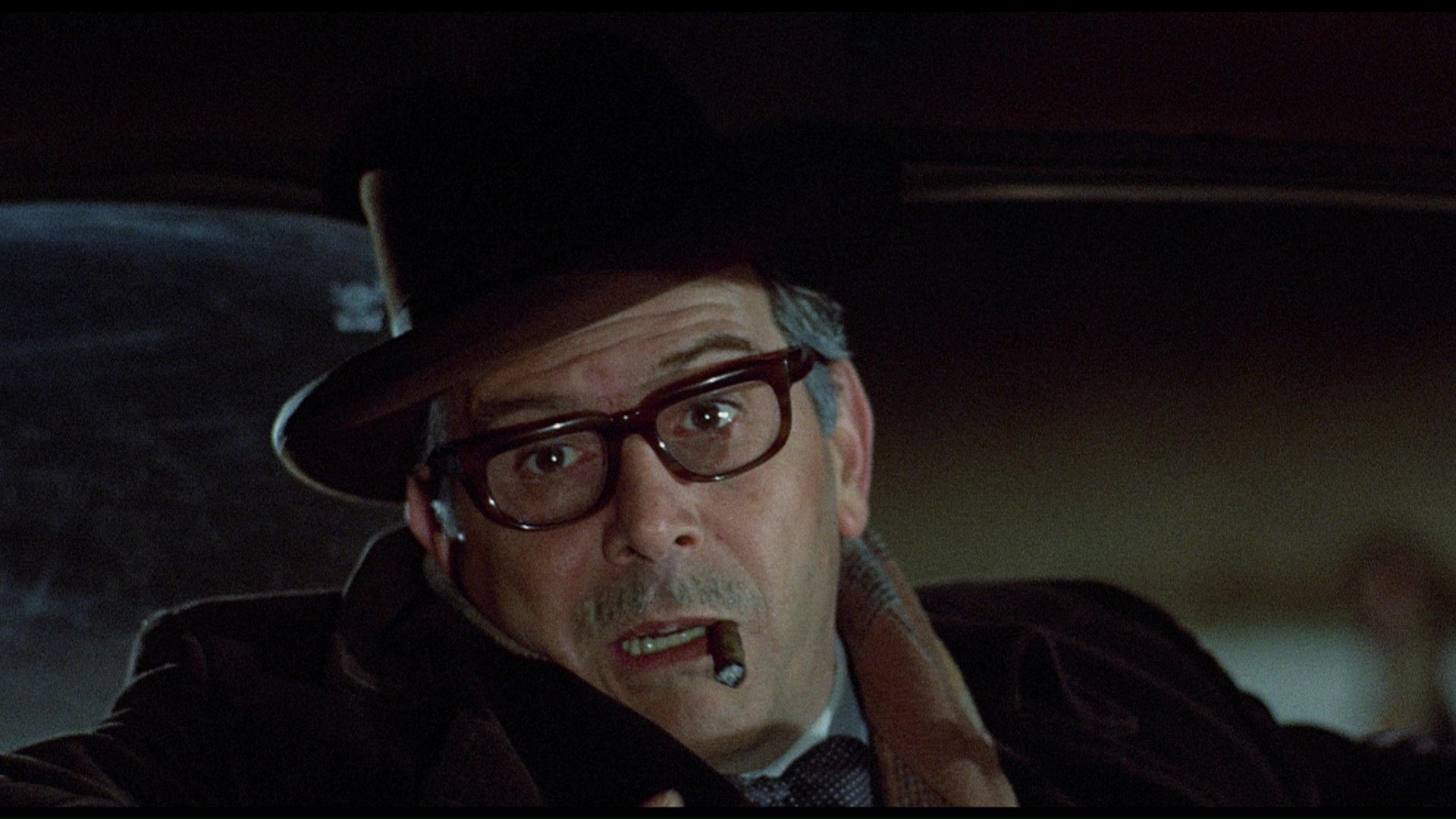 hit disc three in the Arrow box with No, the
hit disc three in the Arrow box with No, the 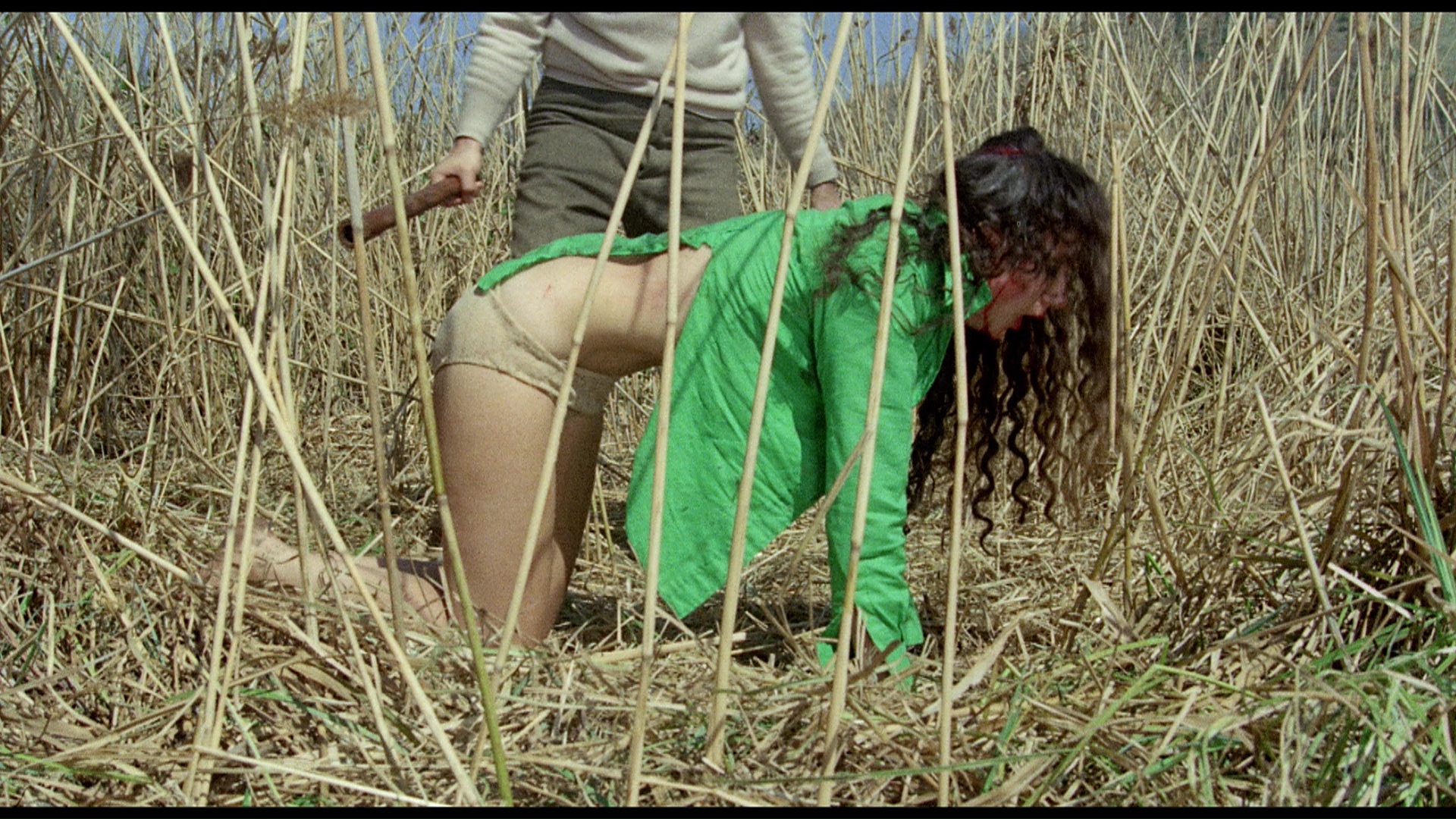 Case Is Happily Resolved or No il caso è felicemente risolto. A fascinating social statement laced with gialli and poliziotteschi elements, this subtle and compelling Italian film is essentially the flip side of an Oscar-winning title made three years earlier, Investigation of a Citizen above Suspicion. The same basic cynical concept is used here -- a member of the upper class can commit murder with impunity if the authorities refuse to take action -- but it's taken in a whole different direction here from the point of view of a common laborer tangled up in a modern nightmare.
Case Is Happily Resolved or No il caso è felicemente risolto. A fascinating social statement laced with gialli and poliziotteschi elements, this subtle and compelling Italian film is essentially the flip side of an Oscar-winning title made three years earlier, Investigation of a Citizen above Suspicion. The same basic cynical concept is used here -- a member of the upper class can commit murder with impunity if the authorities refuse to take action -- but it's taken in a whole different direction here from the point of view of a common laborer tangled up in a modern nightmare.
The film starts on a particularly lurid, shocking note as a half-nude woman is pursued through a reed field by an assailant wielding a large metal bar. The aftermath of his ultimately fatal attack is witnessed by Fabio Santamaria (The Dead Are Alive's Cerusico), who's gone out for a quiet afternoon of solitary fishing. He stands for several moments making eye contact with the murderer, who turns out to be a respected professor, Eduardo Ranieri (Rabid Dogs' Cucciolla). Santamaria bolts to his car and flees but decides not to go to the police, feeling he's out of danger and would only stir up trouble for himself and his wife (Brochard). That turns out to be a very bad call indeed when Ranieri goes to the authorities instead and fingers Santamaria as the culprit, with the increasingly traumatized innocent man resorting to shaving off his mustache and altering evidence to try to save his own hide.
The subject matter could have easily made this a straight giallo or an homage to Hitchcock's wrong man formula, but director Vittorio Salerno (with Enrico Maria Salerno cast here again in a juicy role as a stogie-chomping reporter) has quite a bit more on his mind as the circumstances dragging out hero deeper into the flawed 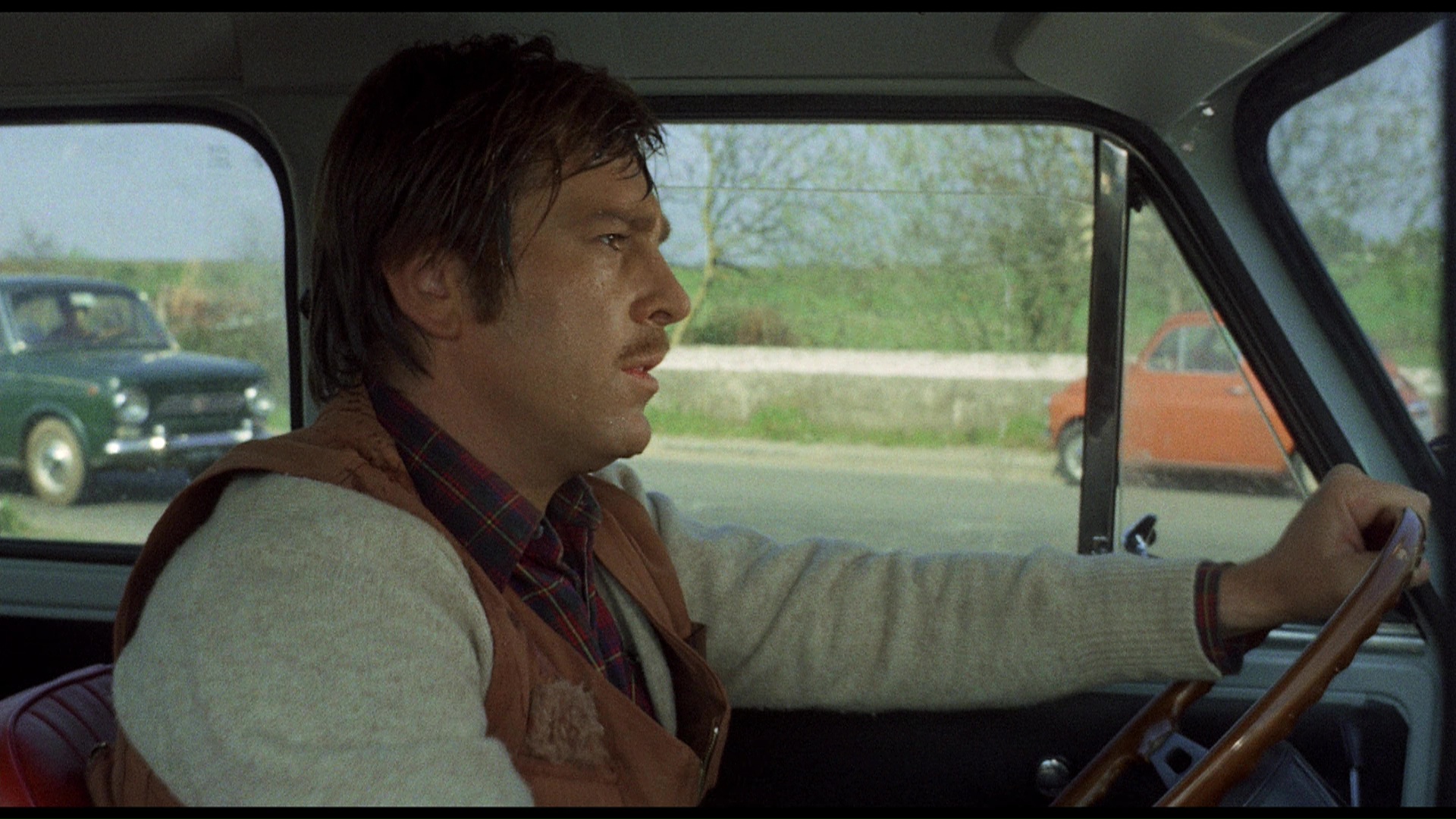 legal system also represent the growing social divisions within Italy and the rest of the world, a theme sadly all too relevant today. The systems put into place to protect the people clearly don't work thanks to corrupt, social prejudice,
legal system also represent the growing social divisions within Italy and the rest of the world, a theme sadly all too relevant today. The systems put into place to protect the people clearly don't work thanks to corrupt, social prejudice, 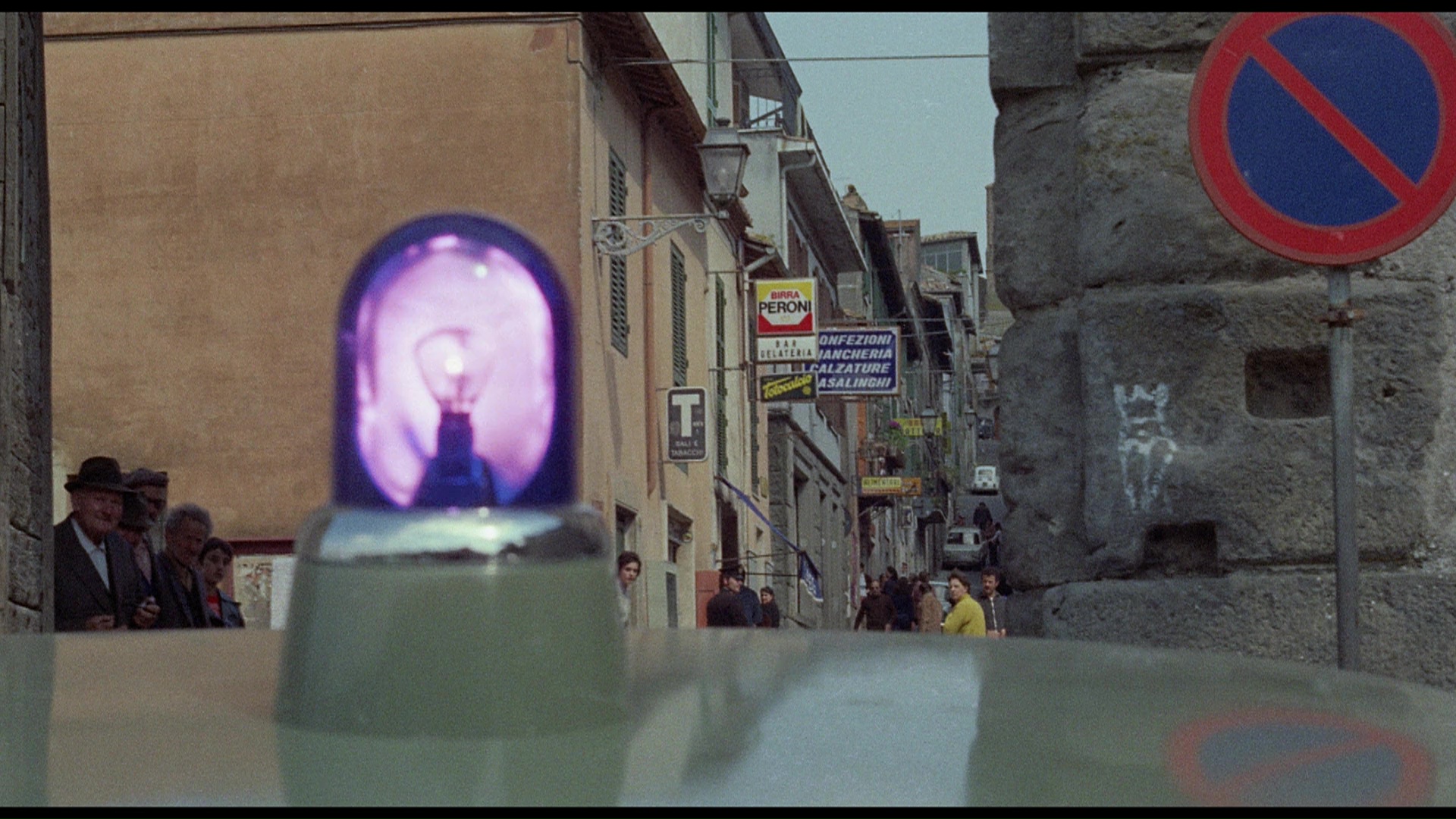 and simple human error, and both Cerusico and Cucciolla make for fascinating characters whose level of torment depends on how much manipulation and finger pointing goes on. Don't think this is too heady to enjoy, however; it's a fast-moving and engrossing film, buoyed by a strong, catchy soundtrack by the great Riz Ortolani that points the way to a sound Goblin would popularize a couple of years later.
and simple human error, and both Cerusico and Cucciolla make for fascinating characters whose level of torment depends on how much manipulation and finger pointing goes on. Don't think this is too heady to enjoy, however; it's a fast-moving and engrossing film, buoyed by a strong, catchy soundtrack by the great Riz Ortolani that points the way to a sound Goblin would popularize a couple of years later.
Never given a significant English-language release in theaters, this film will be a new experience to virtually anyone who picks up the 2021 Arrow Blu-ray or the 2016 combo edition released by Camera Obscura (the film's second digital incarnation following a non-subtitled Italian DVD). The transfer looks very impressive from start to finish, though interestingly, the Arrow has more natural, warm color timing compared to the colder, blue-leaning Camera Obscura presentation. Detail is razor sharp, the fine film grain looks perfectly natural... not much to quibble about here at all. As usual with the German release you get DTS-HD MA Italian or German mono audio with optional English or German subtitles, plus a new audio commentary with regulars Marcus Stiglegger and Kai Naumann (also with English subtitles). They do another thorough job here of dissecting the social concerns woven into the script and the numerous horror and thriller connections with the players in front of and behind the camera, often making some fun film geek jokes along the way. The Arrow features the Italian track with optional English subtitles, as expected, and drops the commentary.
This presentation represents an exclusive director's cut of the film, dropping a coda imposed on Salerno by the distributors to give the film a more traditional, closed happy ending 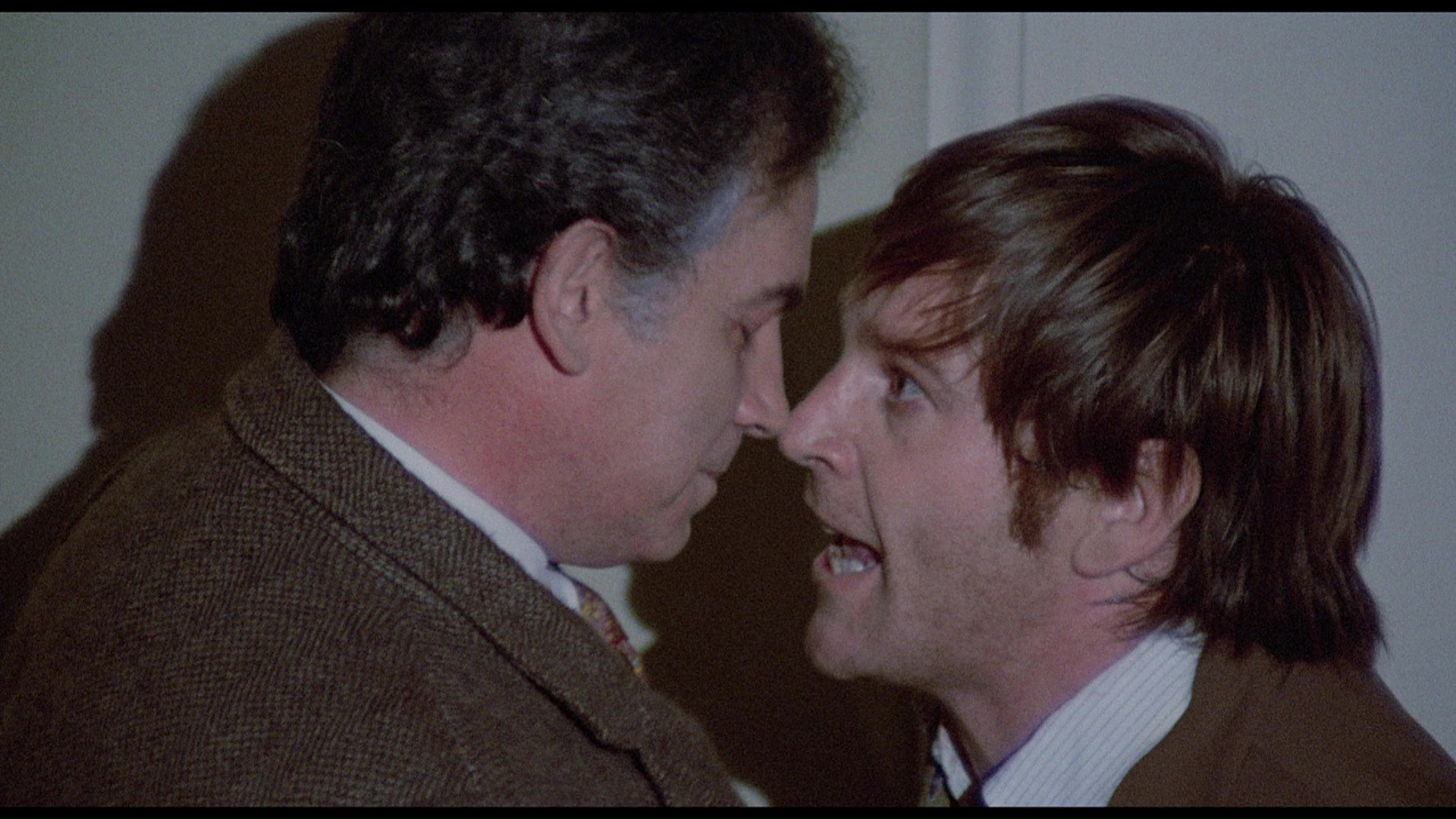 with a pretty stupid joke tacked on before the credits roll. His original, more ambiguous ending is retained here (though
with a pretty stupid joke tacked on before the credits roll. His original, more ambiguous ending is retained here (though 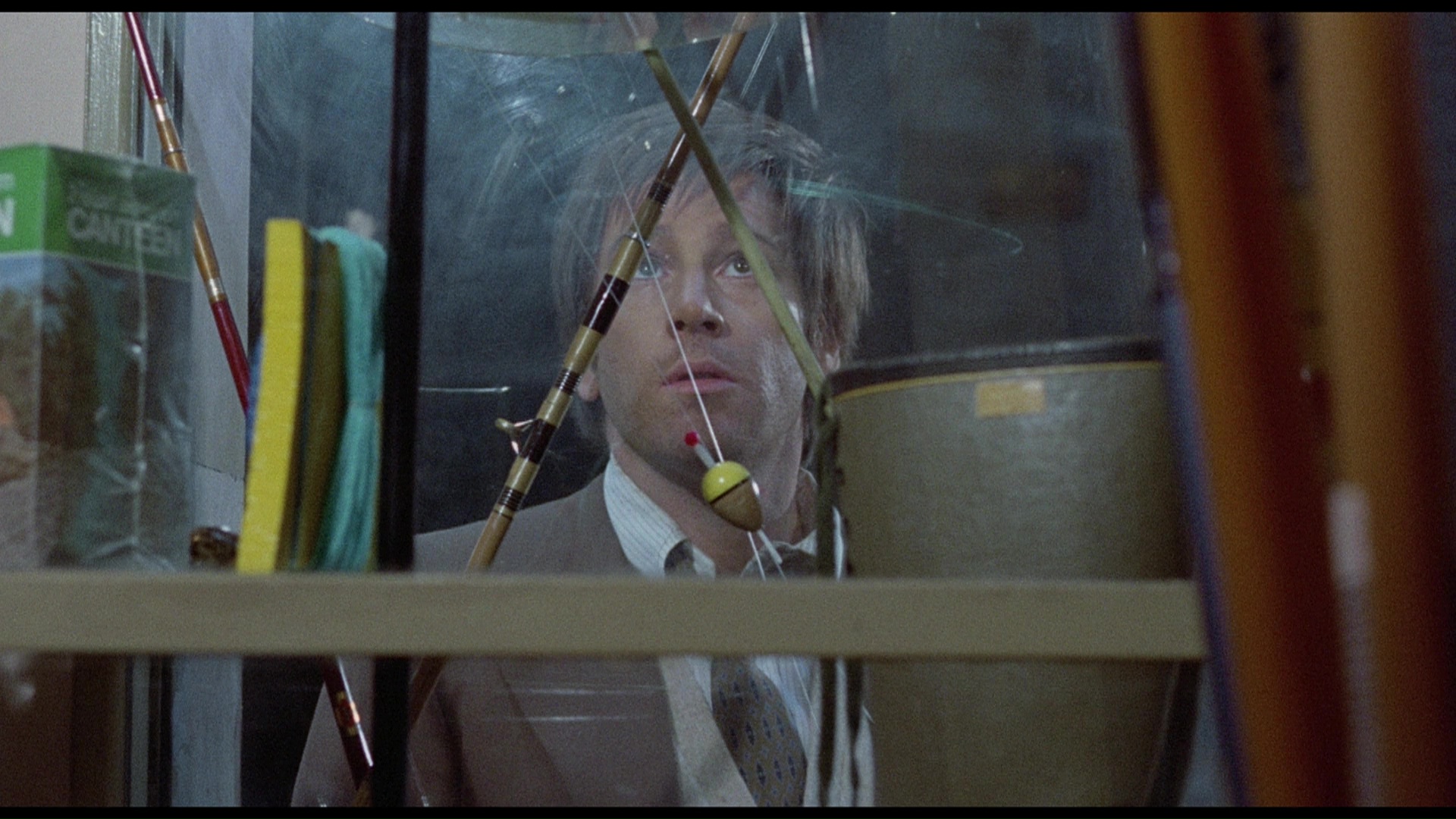 it still contains a wry glimmer of hope), but the happier theatrical ending (4m2s) is included here as an extra. Also on the disc are the Italian trailer, a photo gallery, and most substantially, a Freak-o-rama featurette called "Mother Justice" (40m36s) with Vittorio Salerno and Brochard providing a thorough look at how the film came about with Salerno making his directorial debut after writing westerns and trying to deliver a crime story with a very different angle than the norm. Other topics include working with giallo screenwriter Augusto Finocchi, the original title (The Culprit), the hiring of Cucciolla over Gabriele Ferzetti, and the perils of eating pasta with garlic before a kissing scene. The portion about Enrico Maria Salerno's dubbing is especially interesting, too, explaining how they found the perfect Neapolitan accent for his character. The German one comes with a slick slipcase packaging also contains a liner notes booklet (in German and English) with a solid analysis of the film entitled "The World is Upside Down" by regular label scribe Christian Kessler. Exclusive to the Arrow disc is Will Webb's video essay, "Poliziotteschi: Violence and Justice in the Years of Lead" (20m17s), contextualizes these films within the vigilante groups, terrorism, and other chaotic crime waves that seized Italy in the '70s and spawned this short-lived but beloved subgenre, represented here with analyses of the films in this set. The Arrow box also comes with reversible sleeves for the three discs featuring original artwork for each film, plus a booklet featuring essays by Troy Howarth, Michael Mackenzie, Rachael Nisbet, Kat Ellinger and James Oliver.
it still contains a wry glimmer of hope), but the happier theatrical ending (4m2s) is included here as an extra. Also on the disc are the Italian trailer, a photo gallery, and most substantially, a Freak-o-rama featurette called "Mother Justice" (40m36s) with Vittorio Salerno and Brochard providing a thorough look at how the film came about with Salerno making his directorial debut after writing westerns and trying to deliver a crime story with a very different angle than the norm. Other topics include working with giallo screenwriter Augusto Finocchi, the original title (The Culprit), the hiring of Cucciolla over Gabriele Ferzetti, and the perils of eating pasta with garlic before a kissing scene. The portion about Enrico Maria Salerno's dubbing is especially interesting, too, explaining how they found the perfect Neapolitan accent for his character. The German one comes with a slick slipcase packaging also contains a liner notes booklet (in German and English) with a solid analysis of the film entitled "The World is Upside Down" by regular label scribe Christian Kessler. Exclusive to the Arrow disc is Will Webb's video essay, "Poliziotteschi: Violence and Justice in the Years of Lead" (20m17s), contextualizes these films within the vigilante groups, terrorism, and other chaotic crime waves that seized Italy in the '70s and spawned this short-lived but beloved subgenre, represented here with analyses of the films in this set. The Arrow box also comes with reversible sleeves for the three discs featuring original artwork for each film, plus a booklet featuring essays by Troy Howarth, Michael Mackenzie, Rachael Nisbet, Kat Ellinger and James Oliver.
SAVAGE THREE (Arrow)
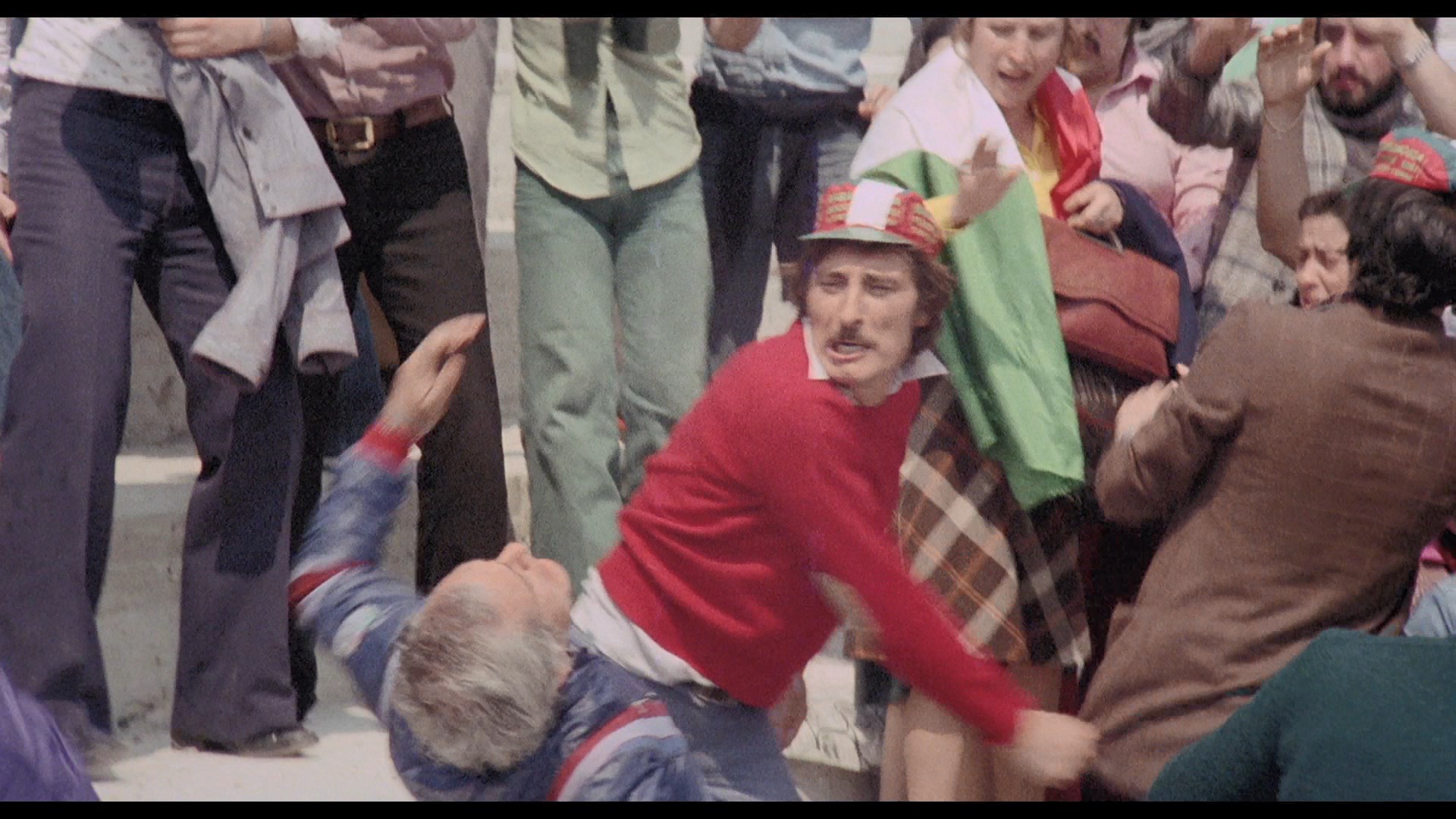
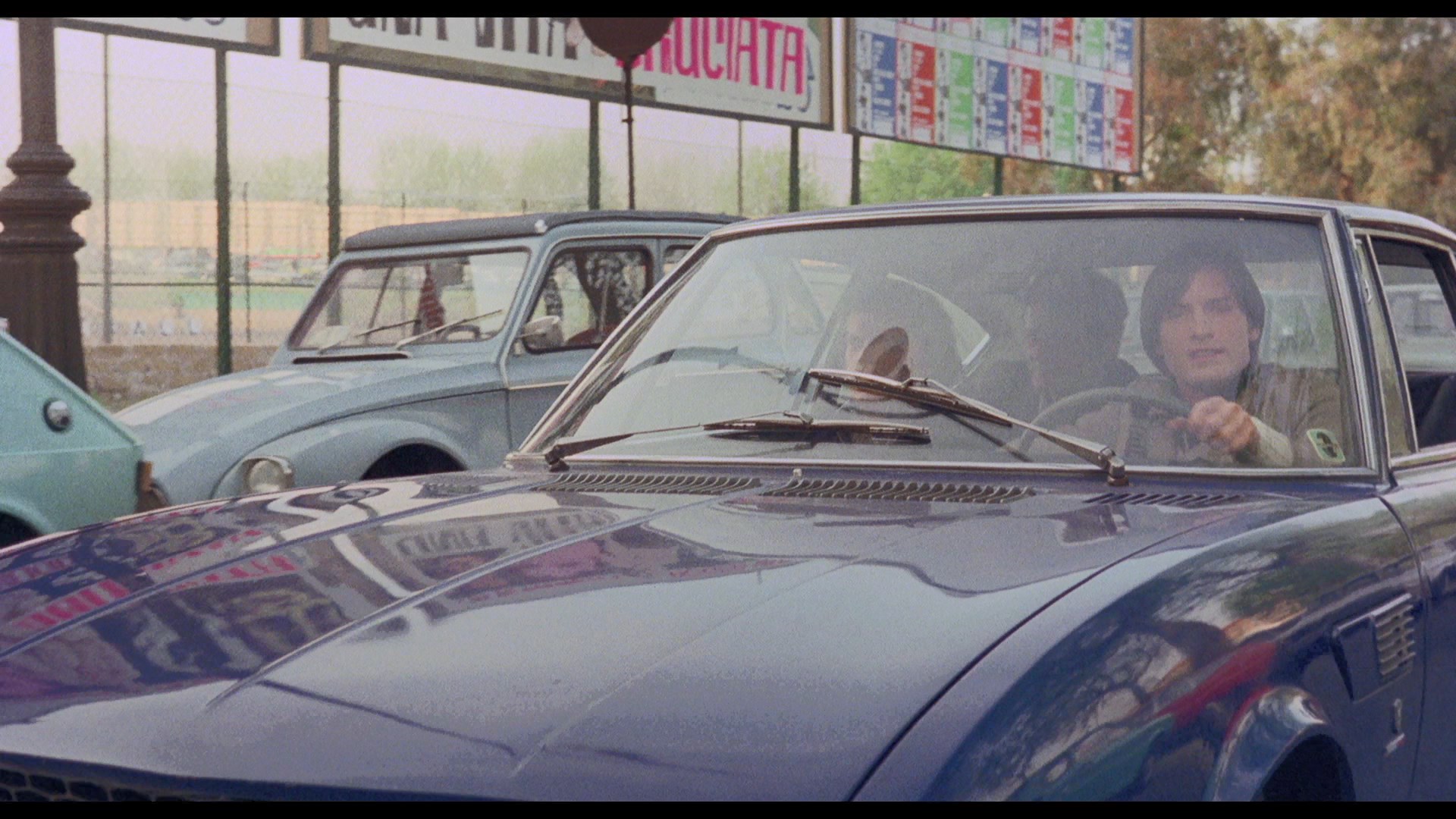
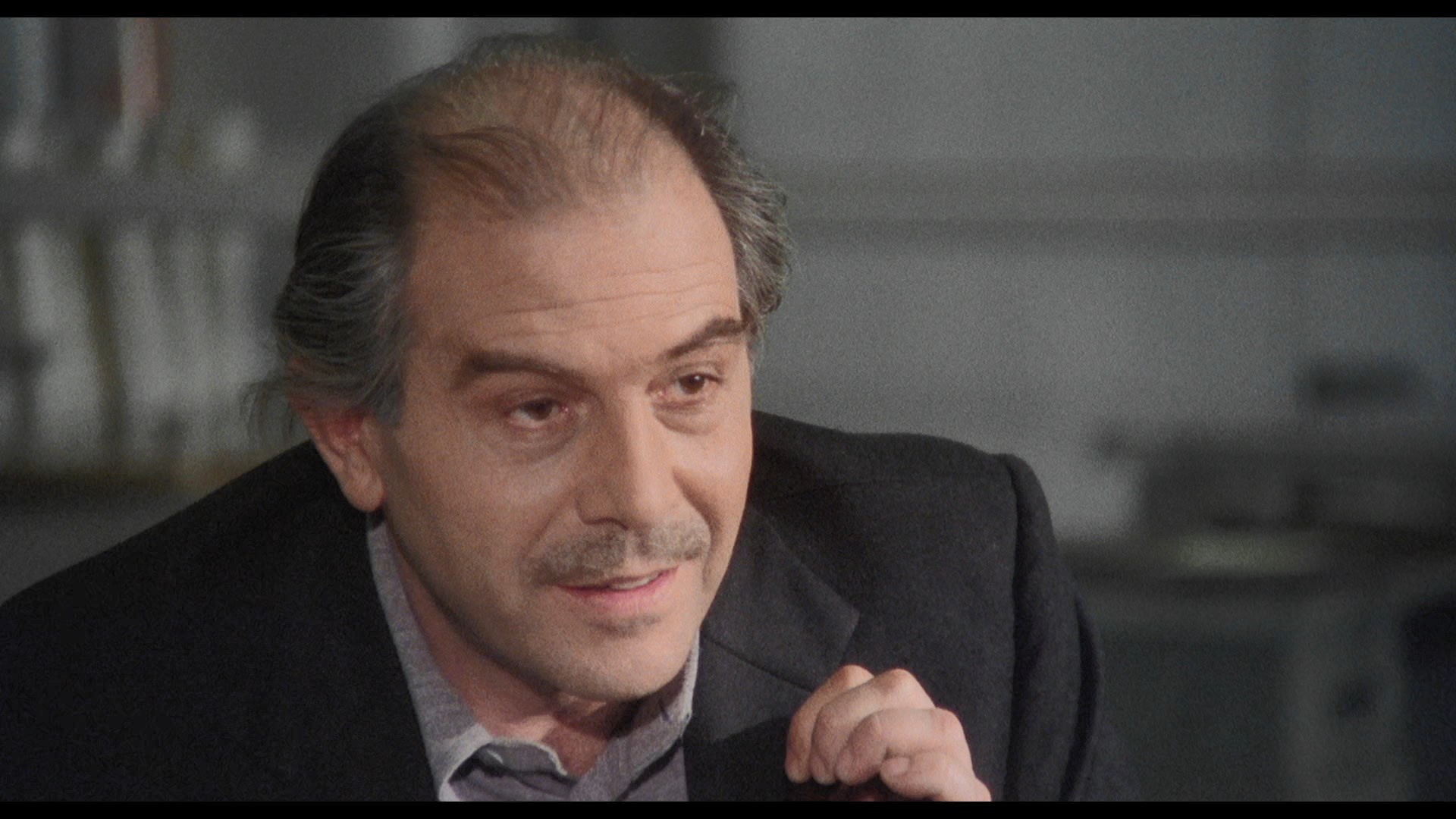
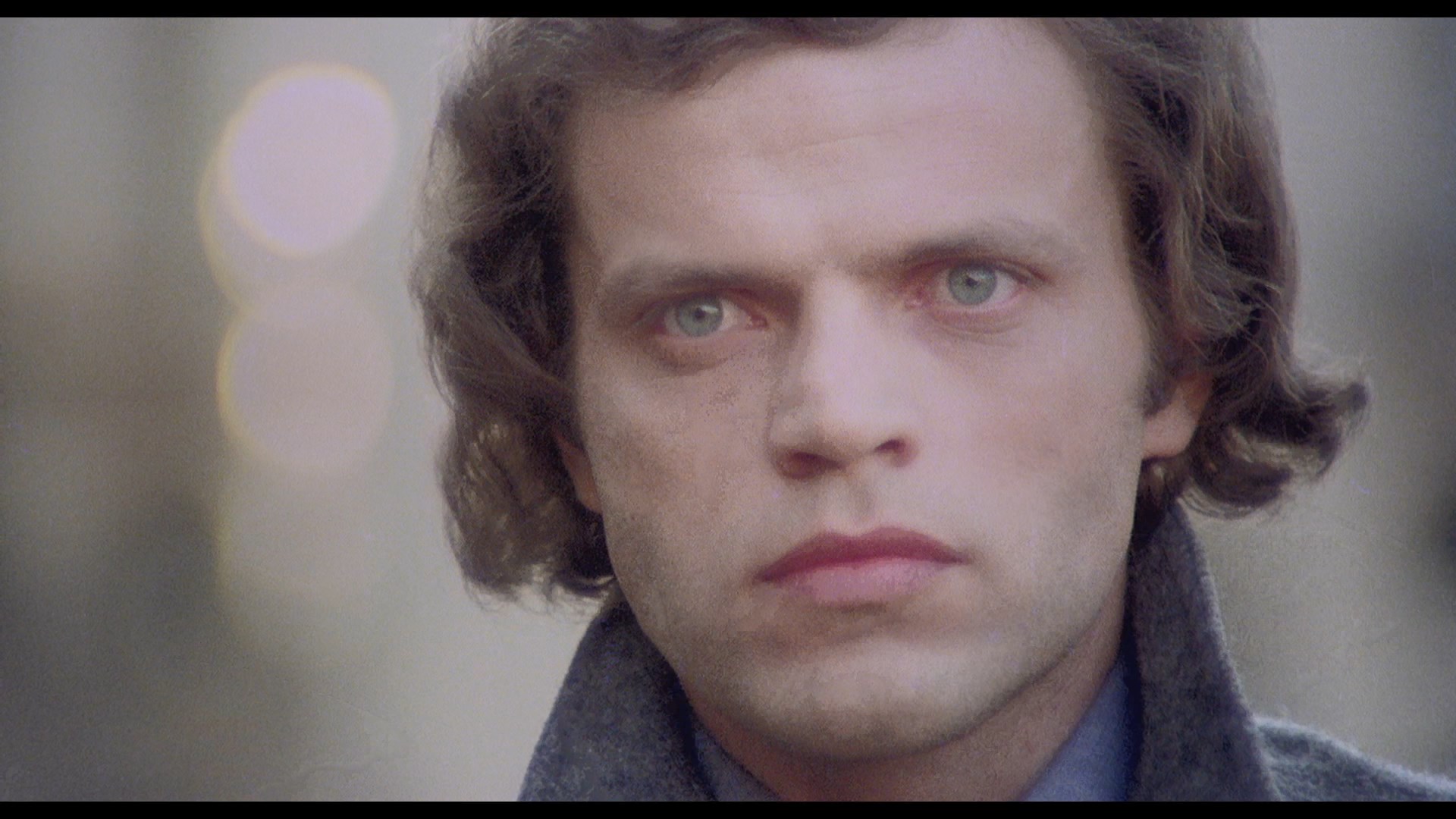
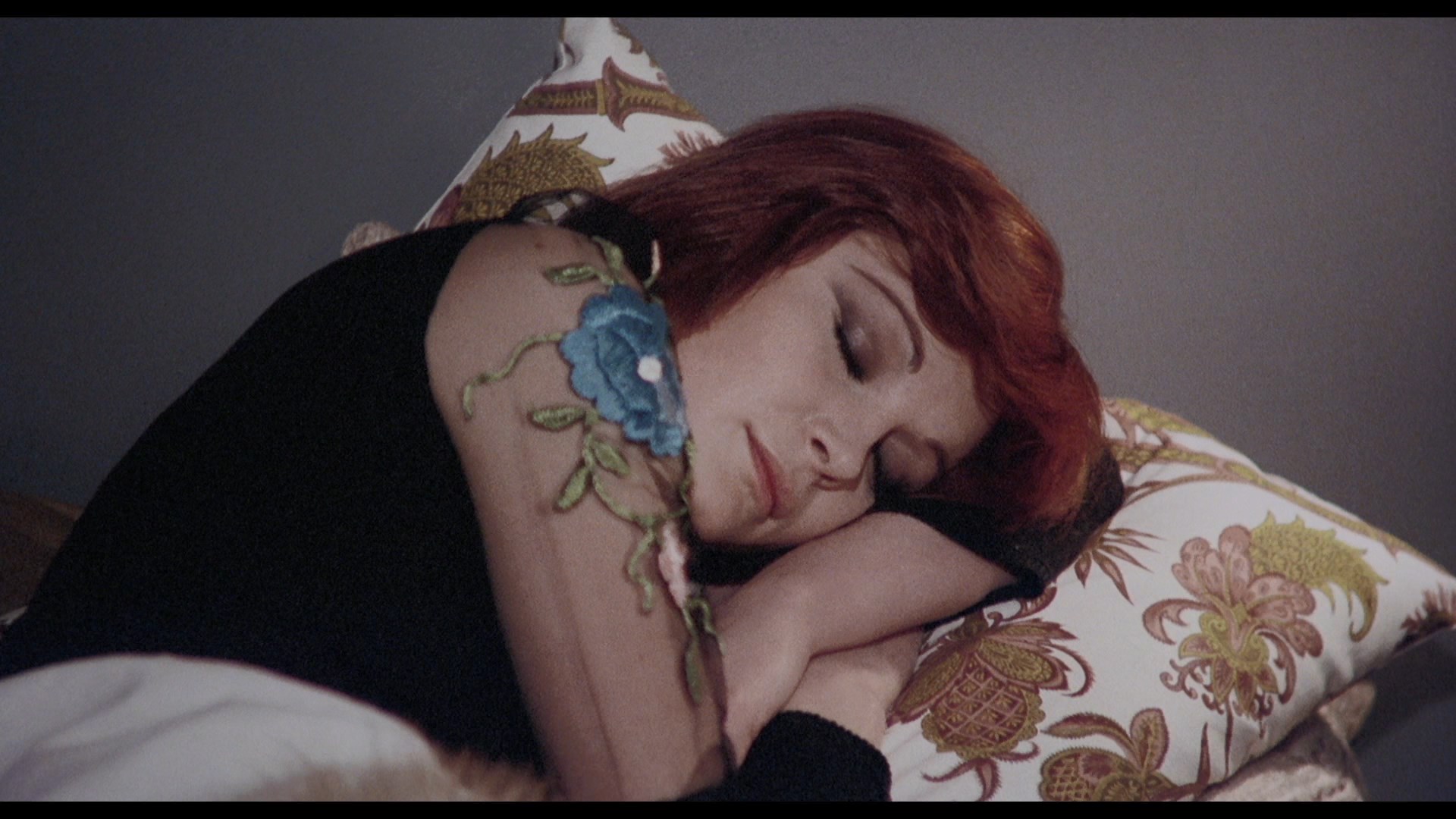
SAVAGE THREE (Camera Obscura)
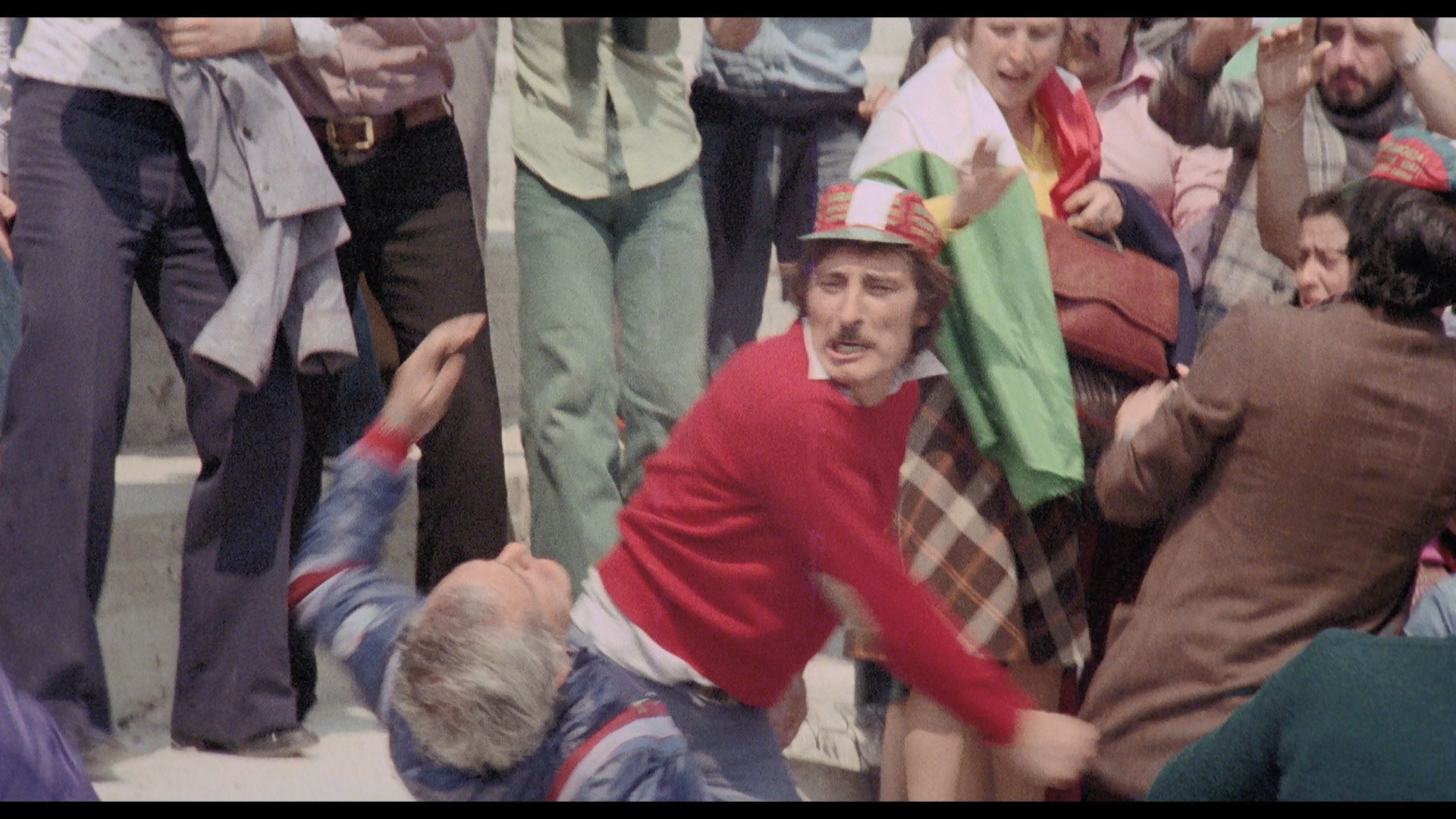
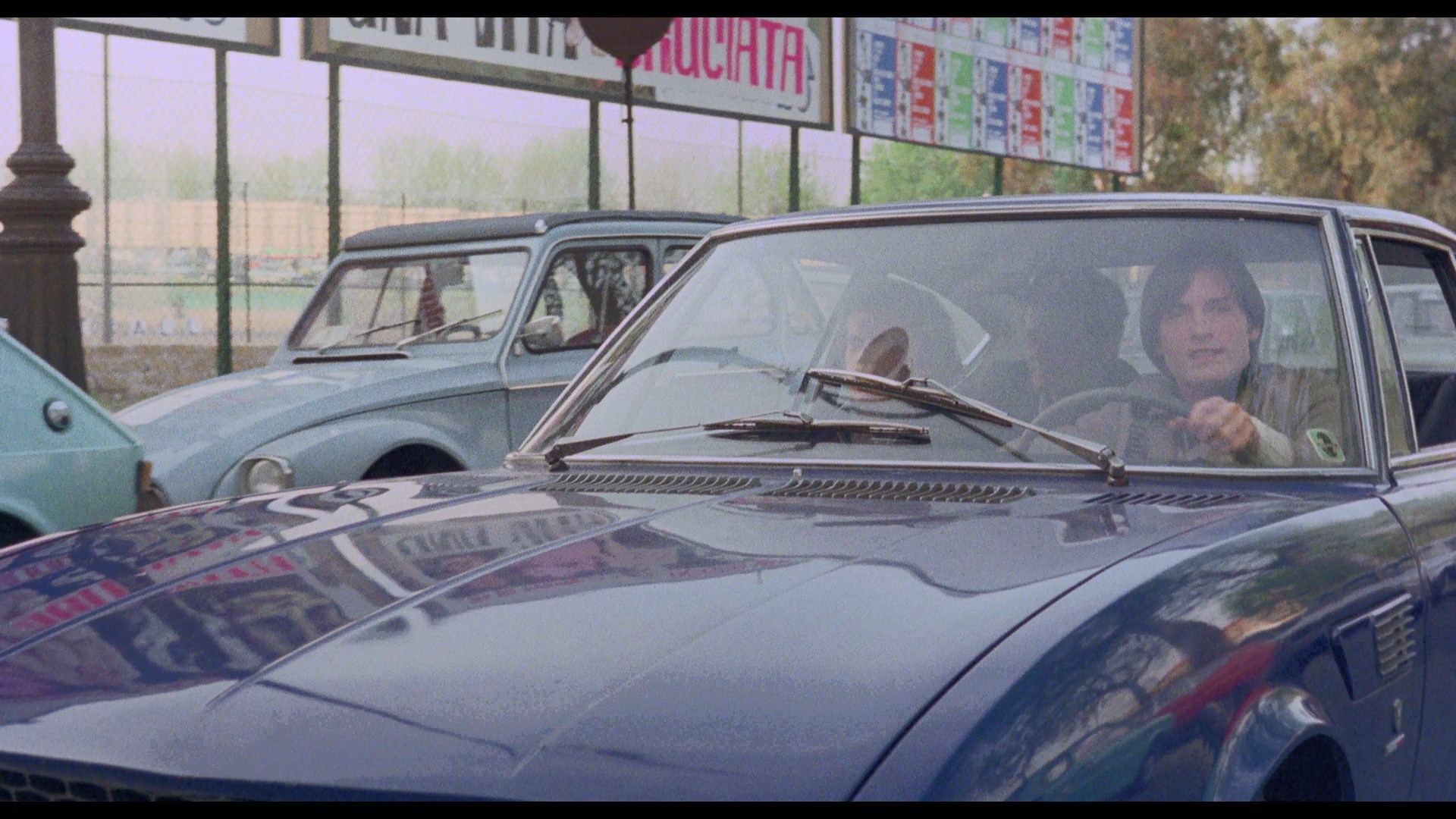
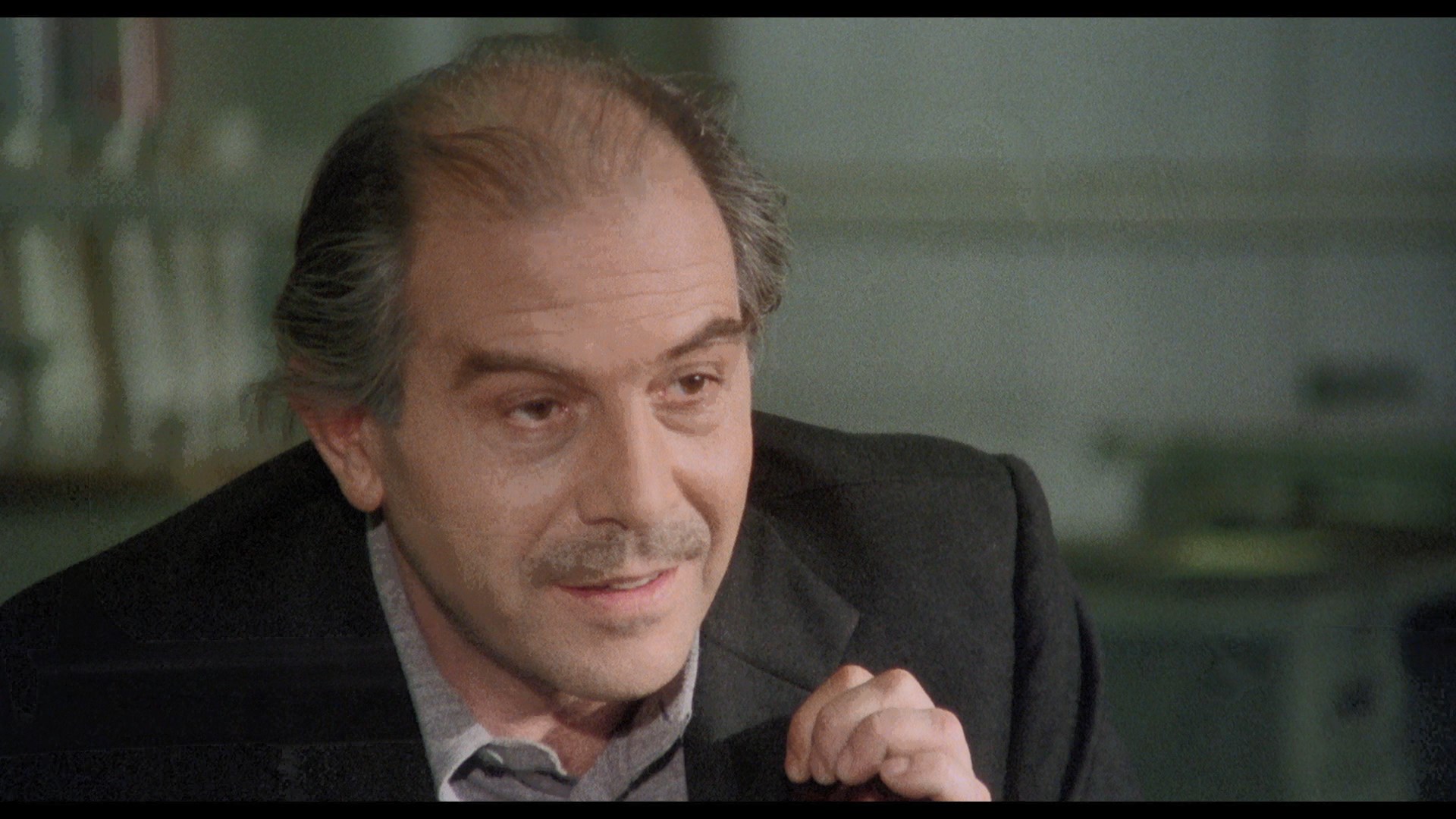
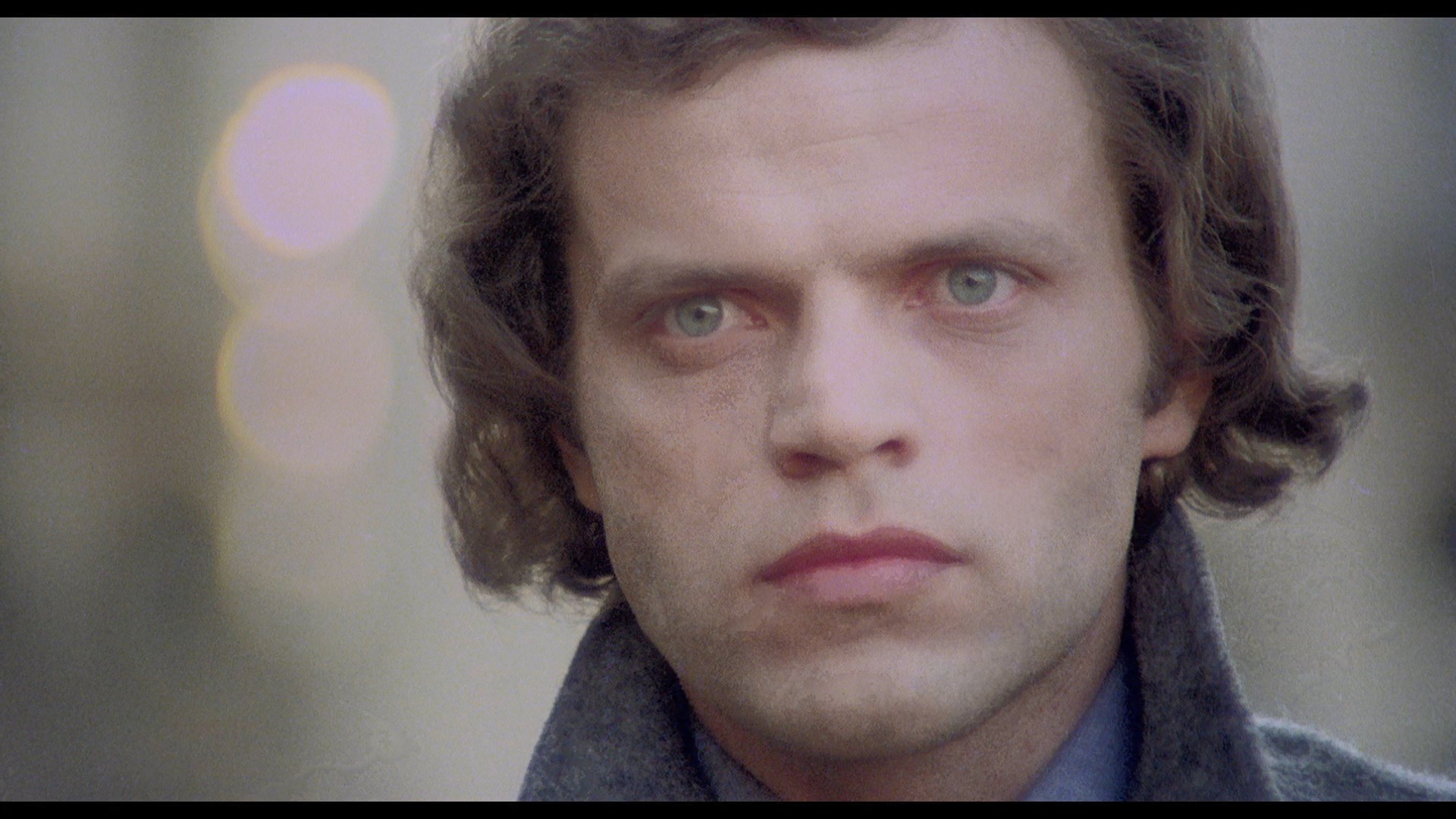
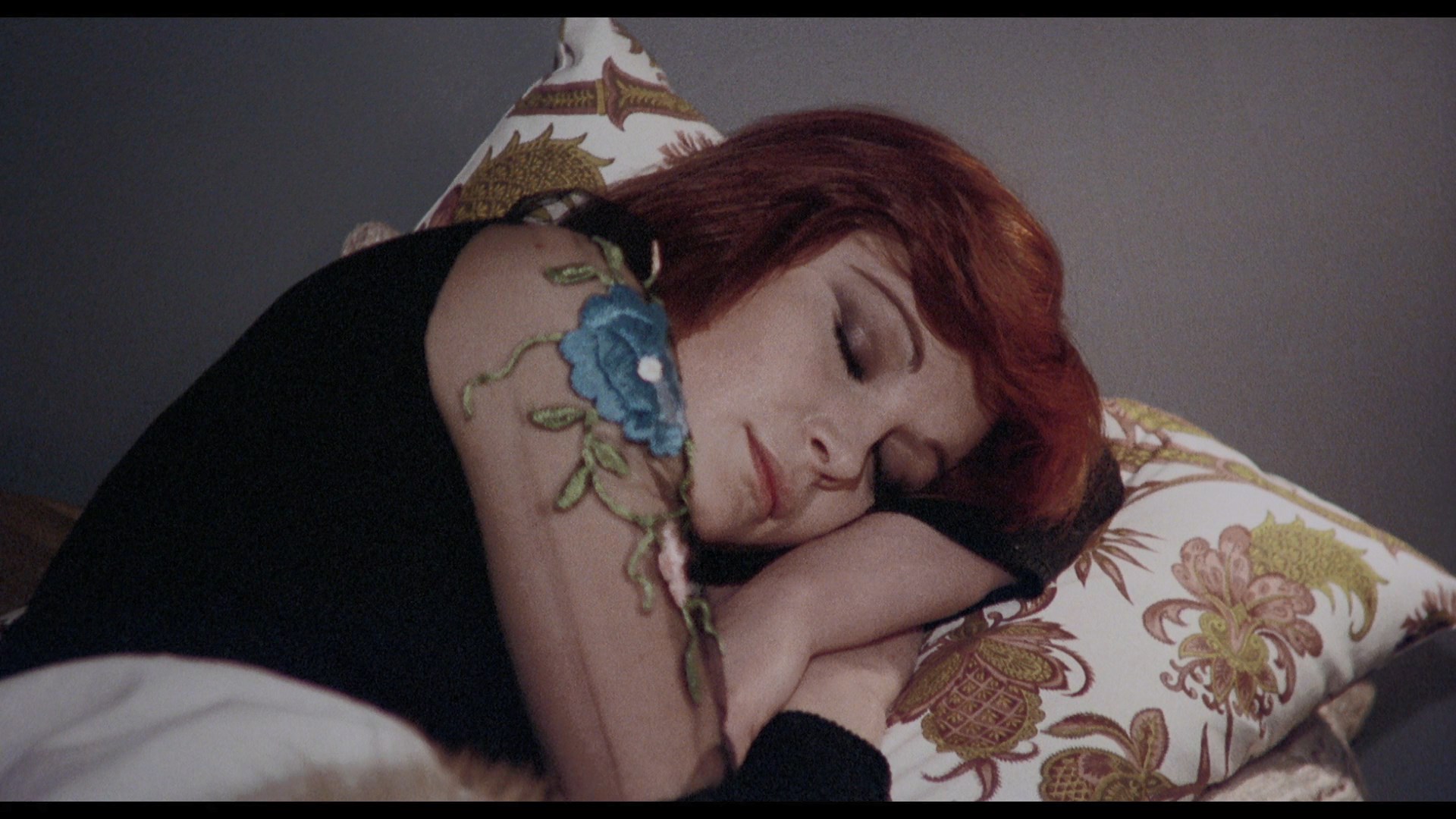
LIKE RABID DOGS (Arrow)
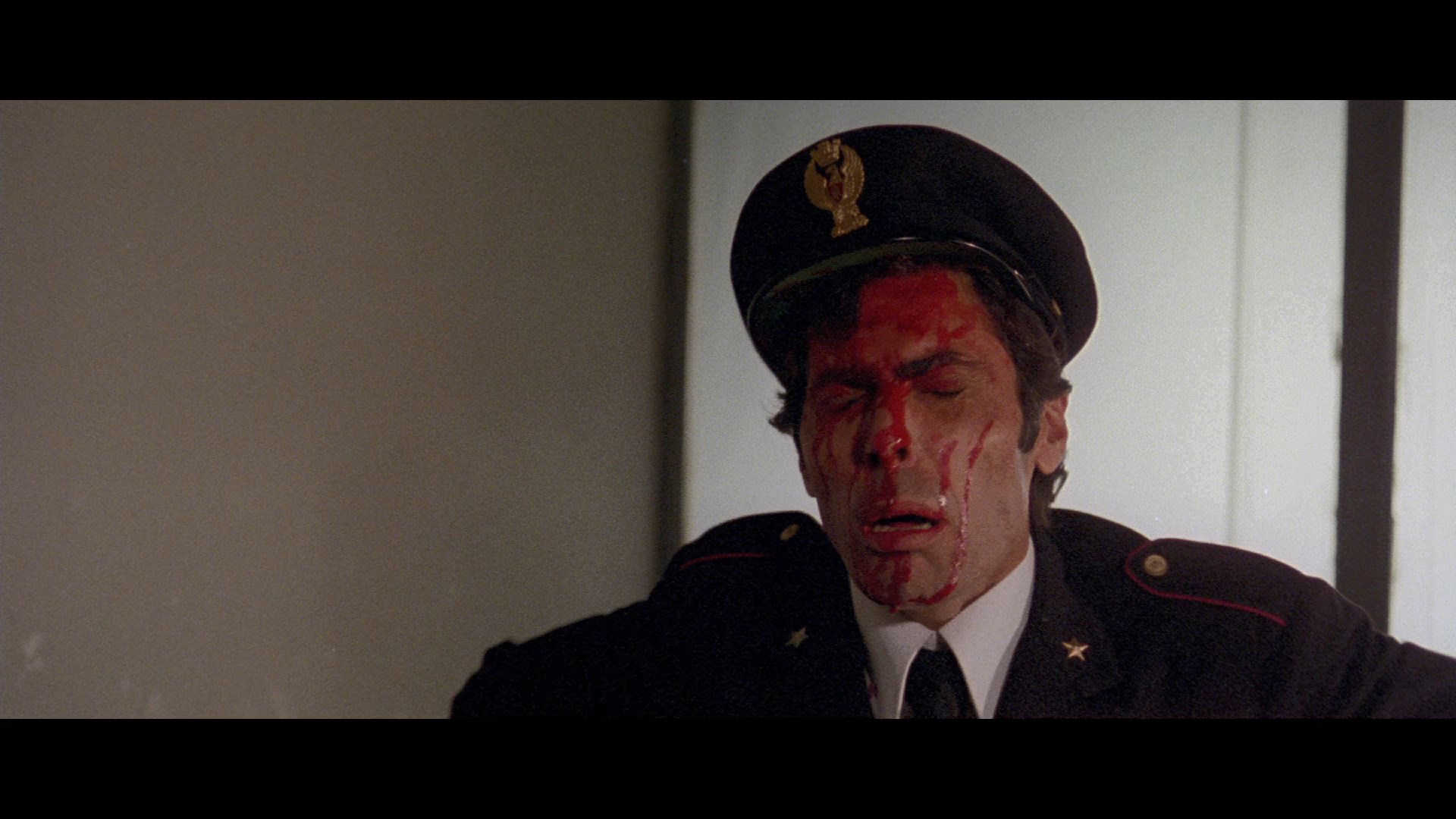
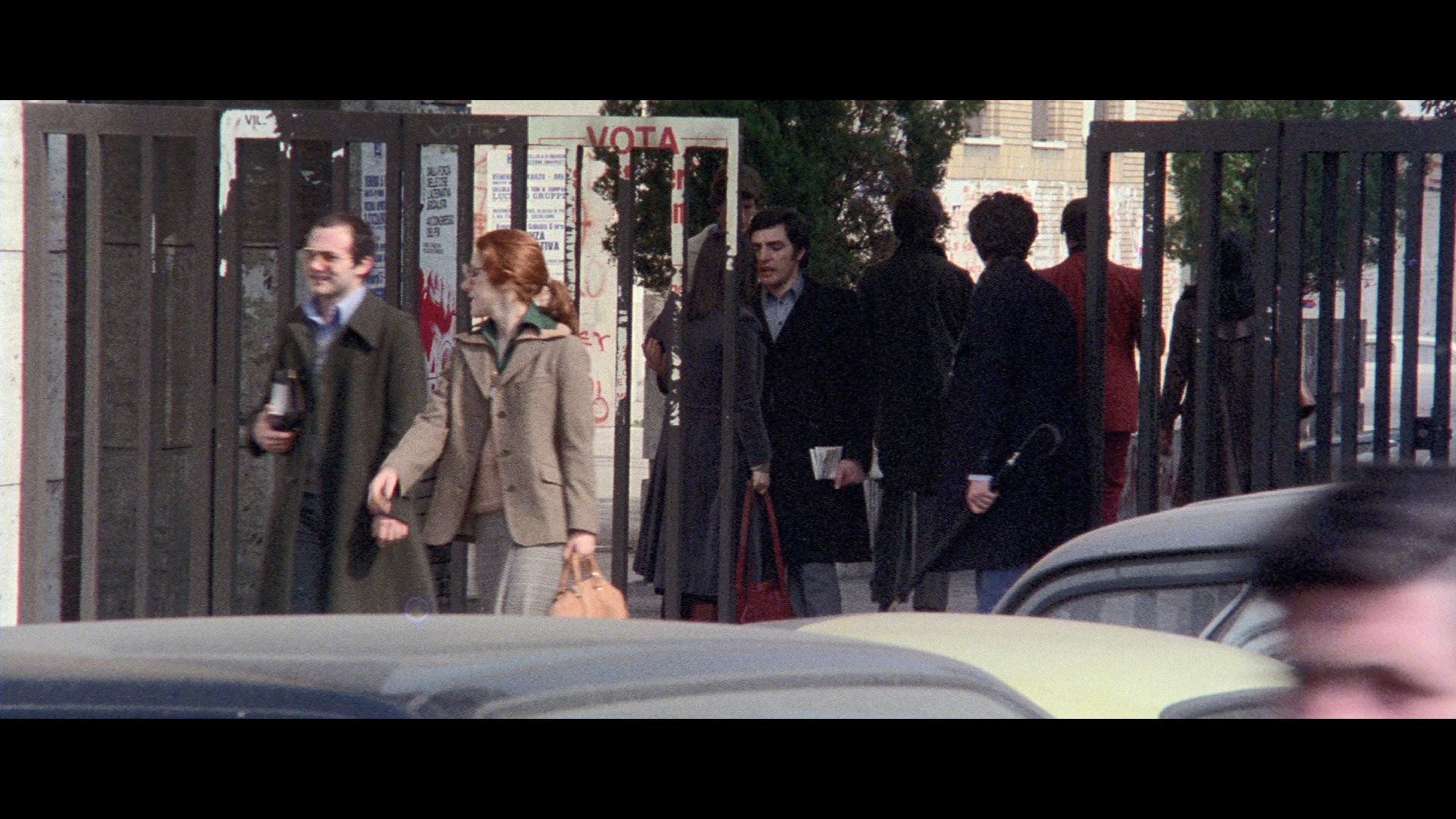
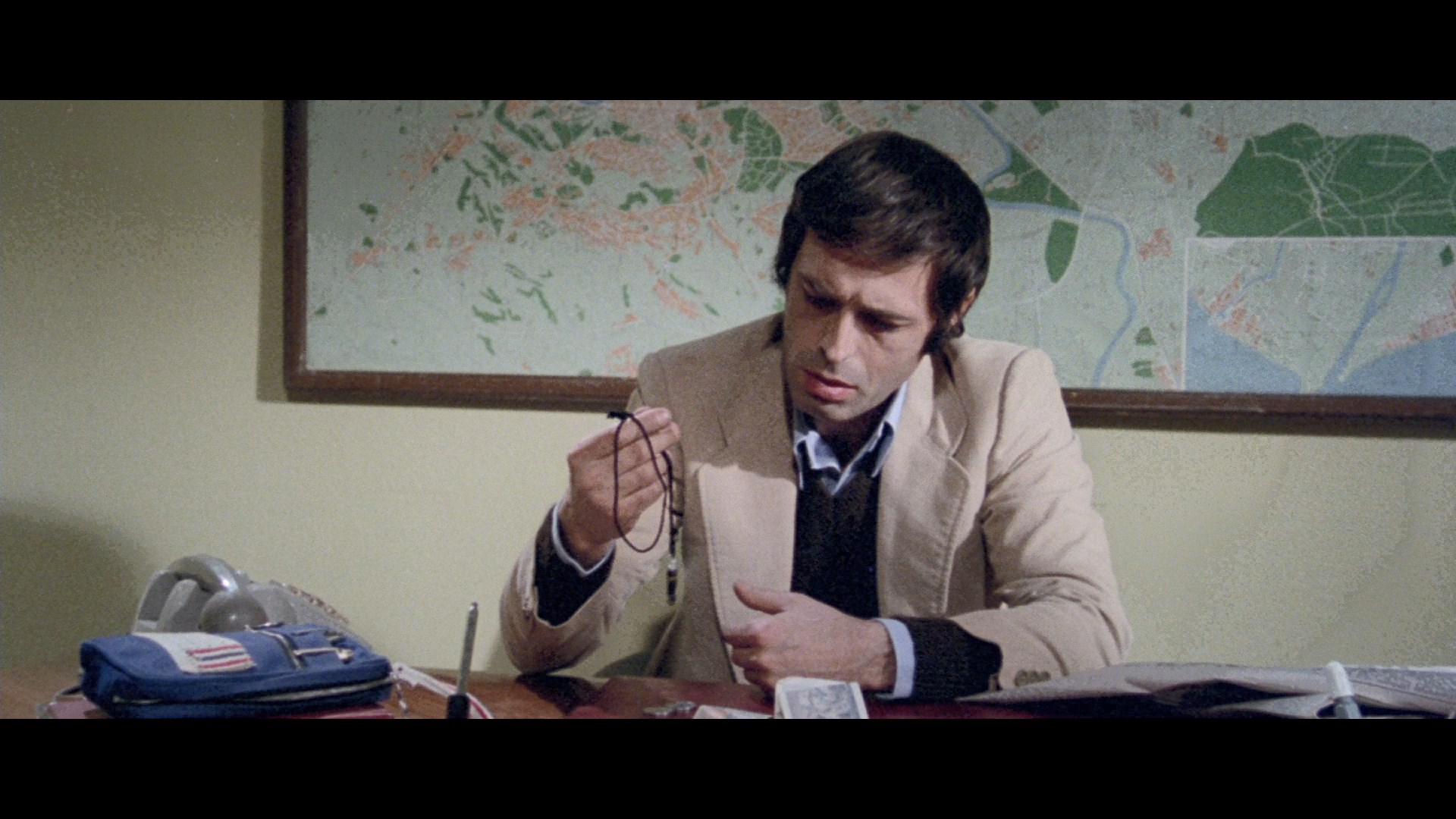
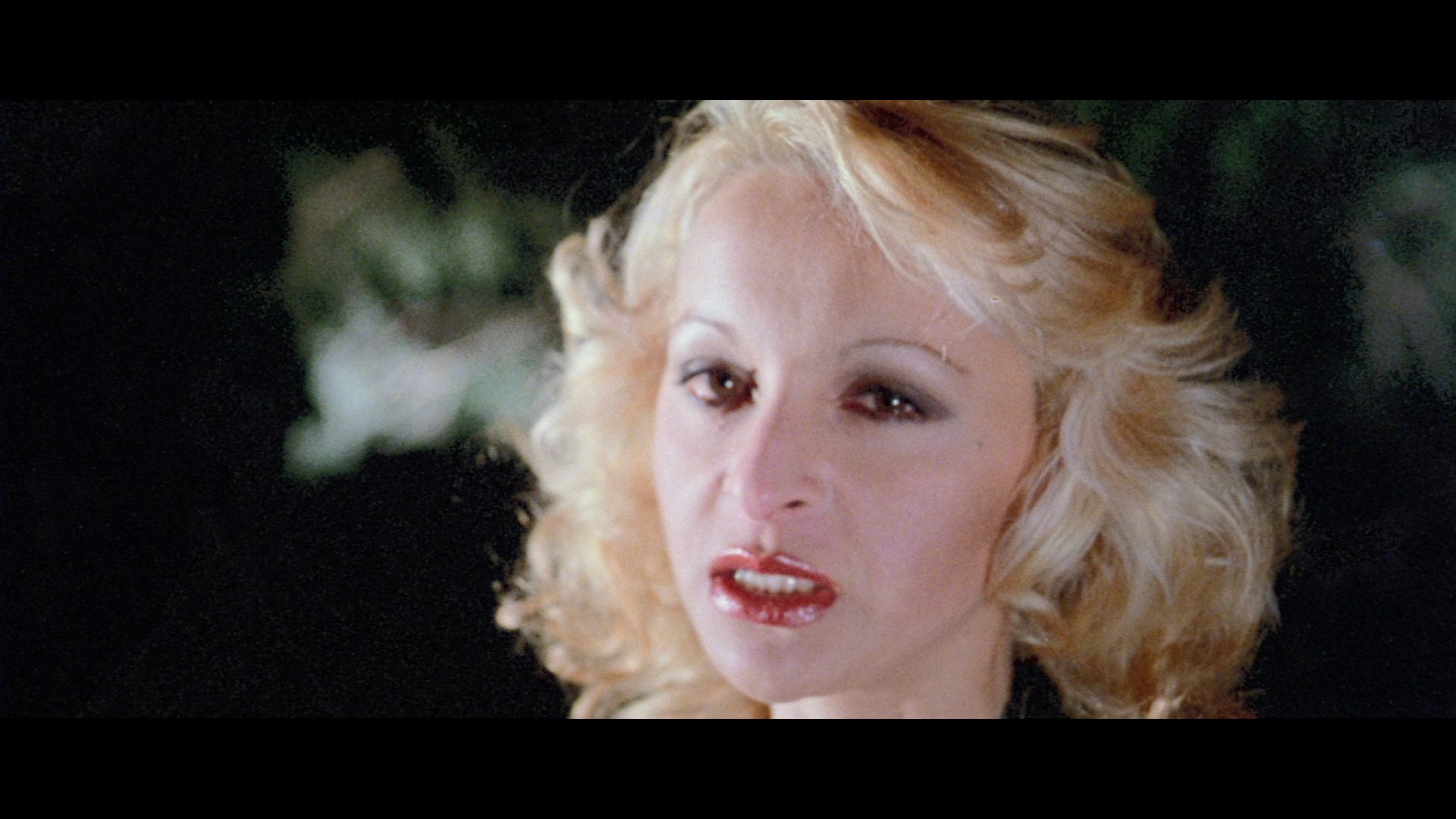
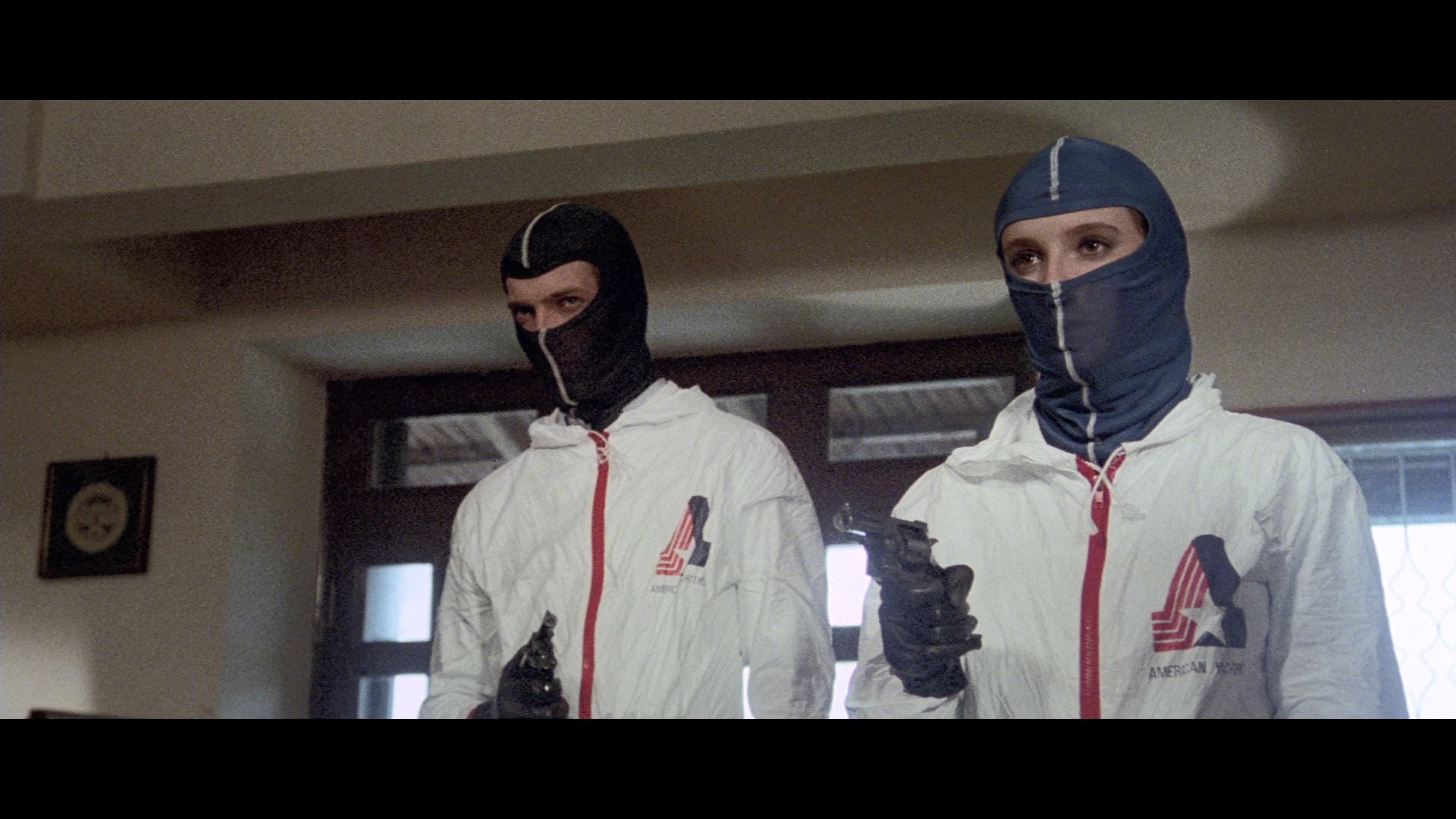
LIKE RABID DOGS (Camera Obscura)
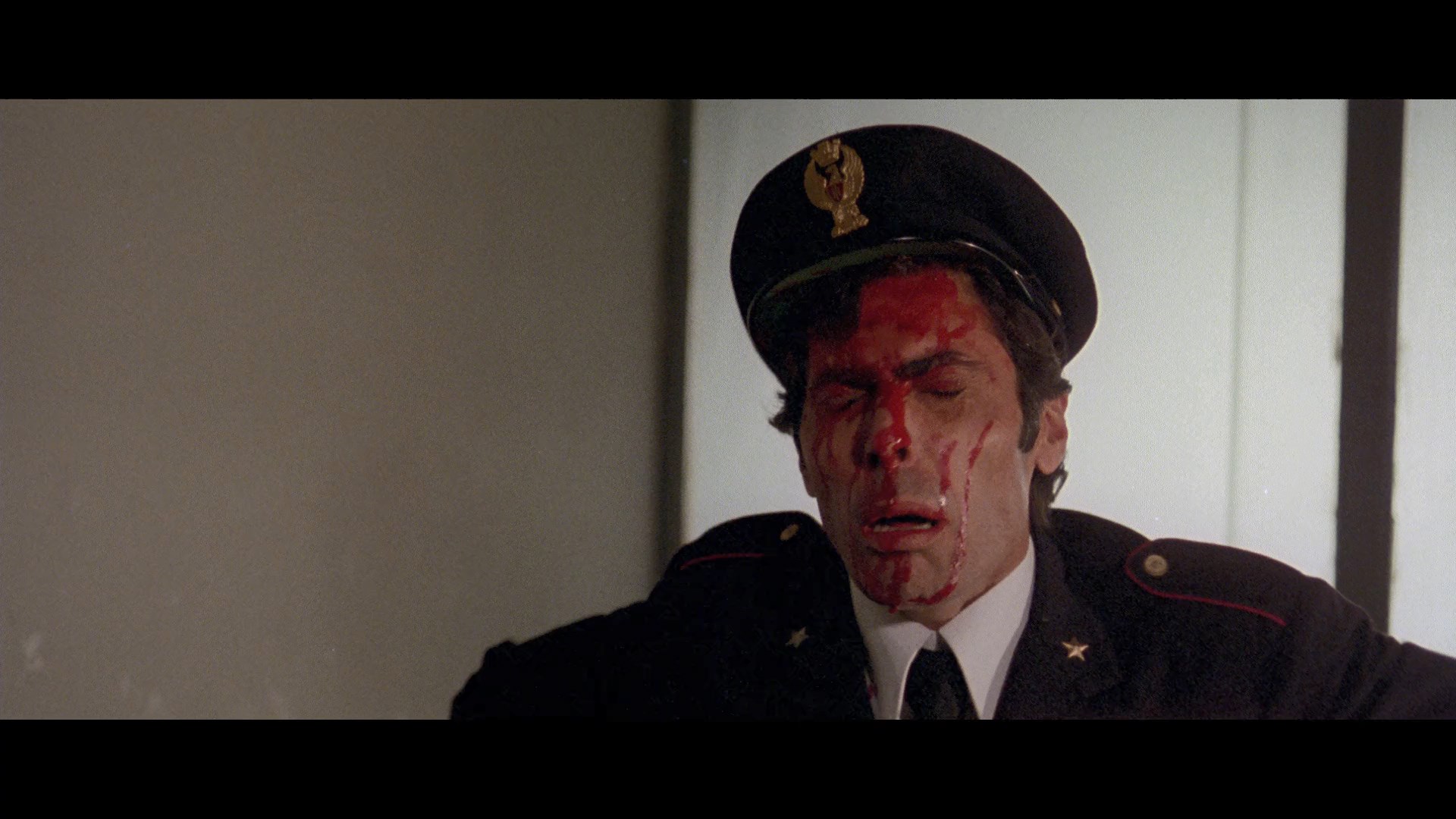
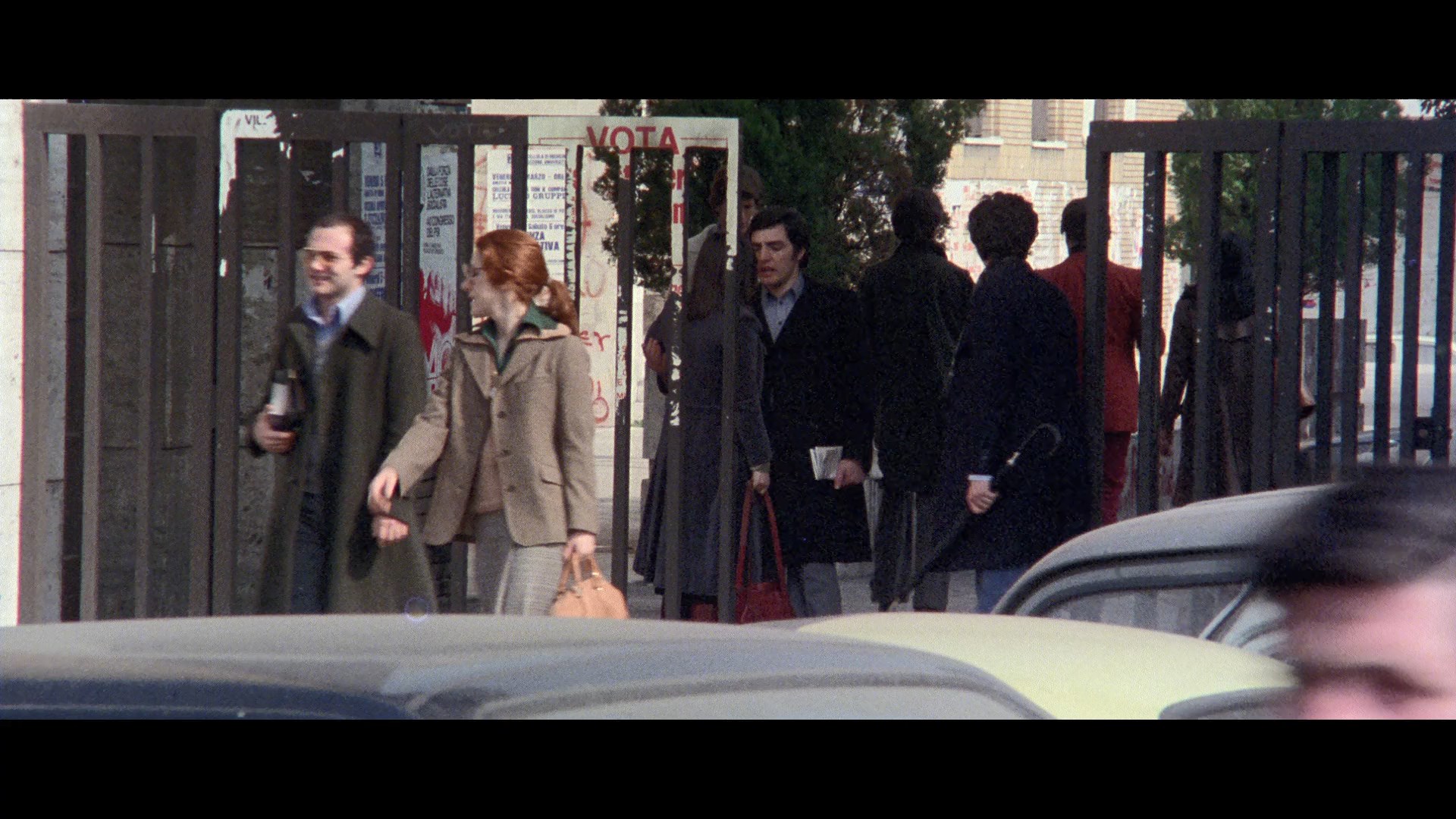
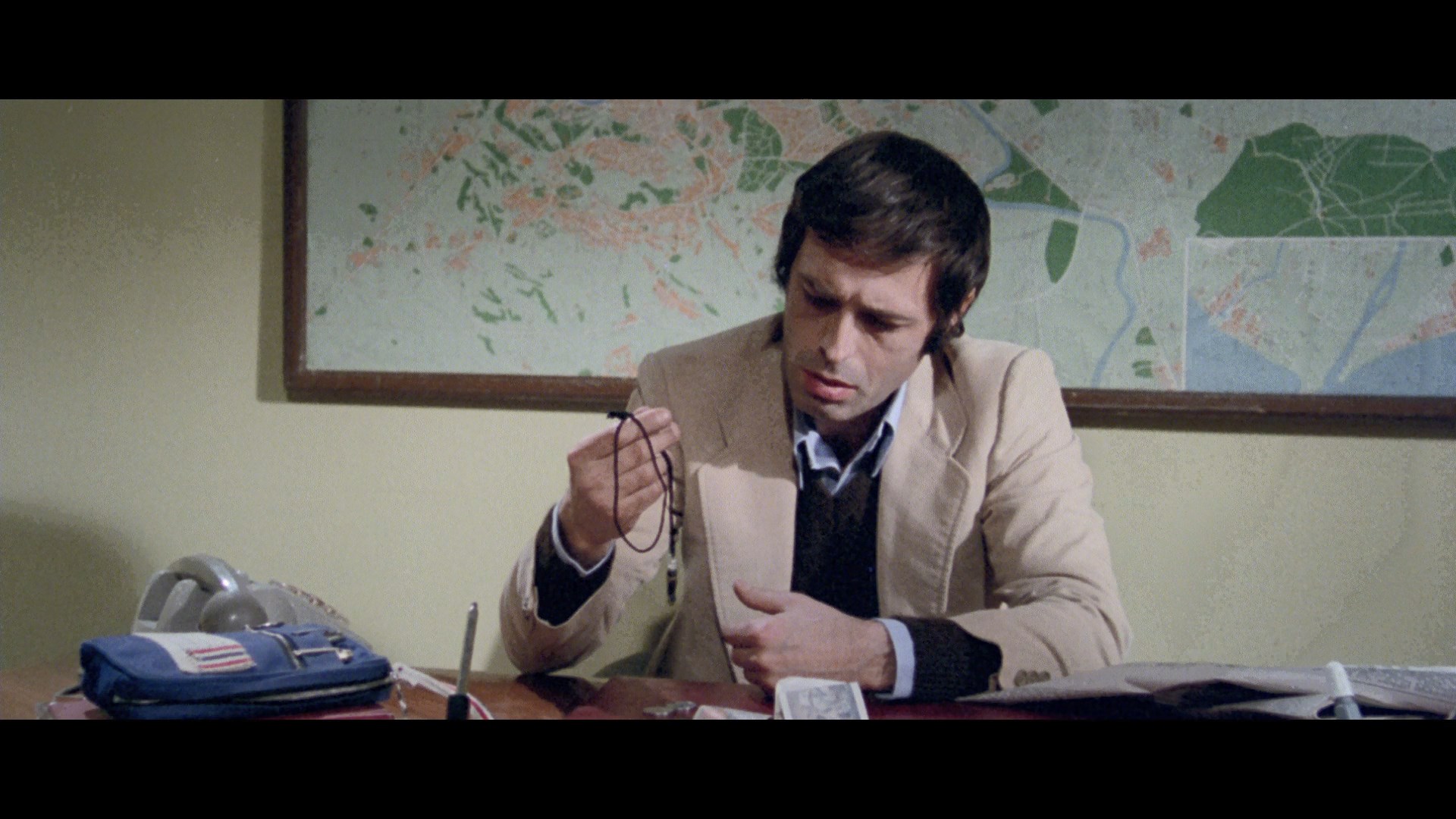
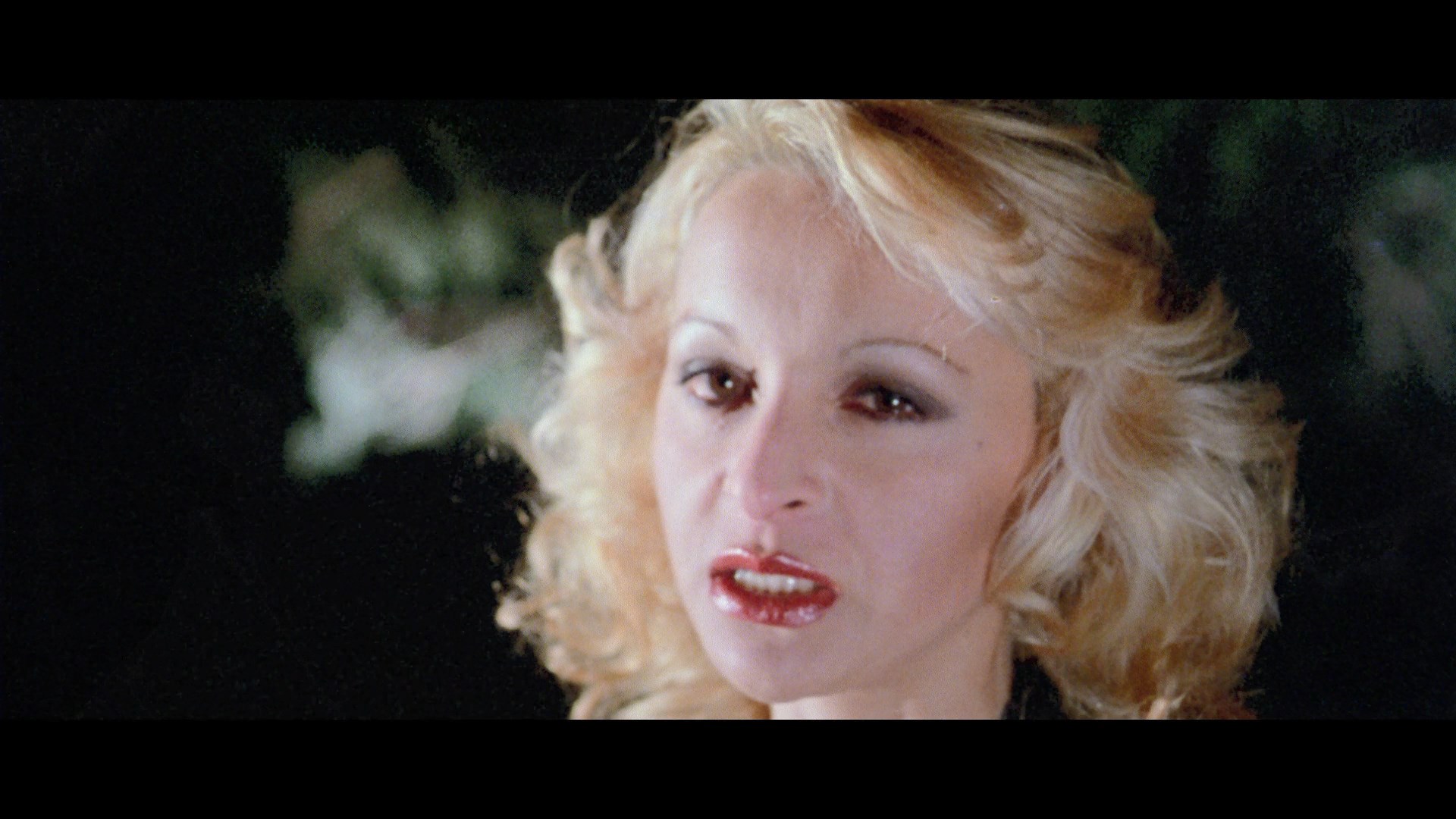
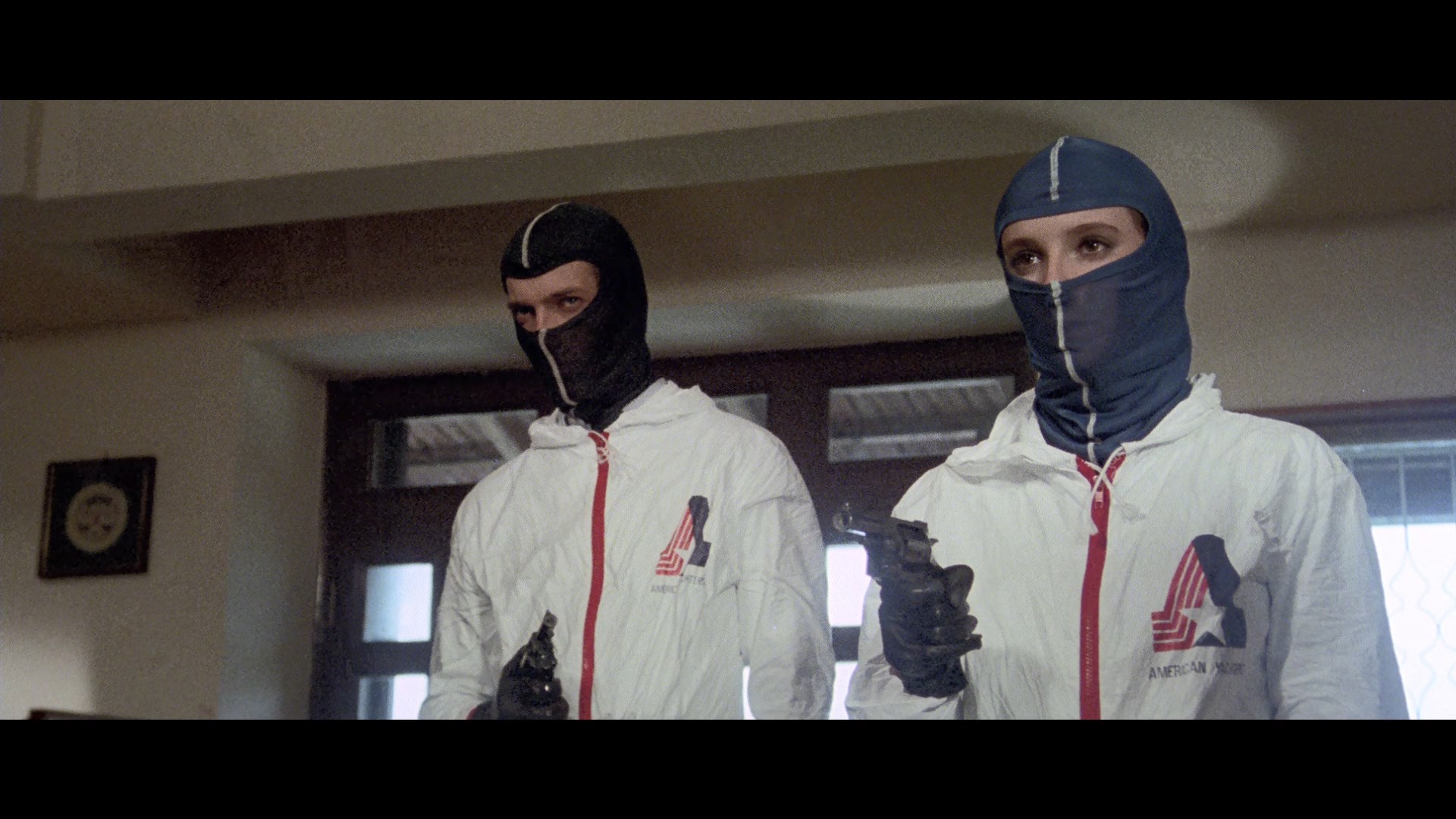
COLT 38 SPECIAL SQUAD (Arrow)
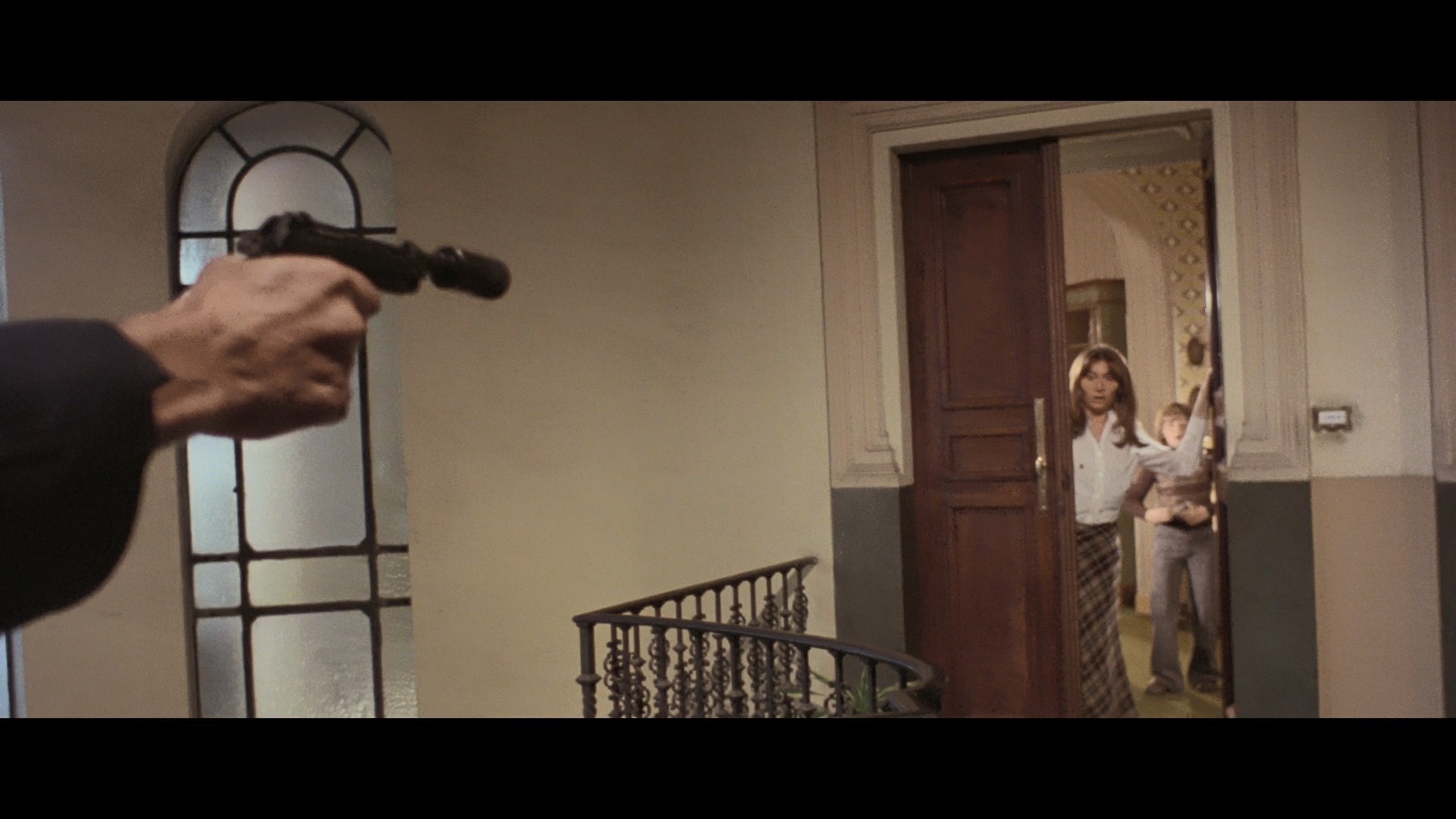
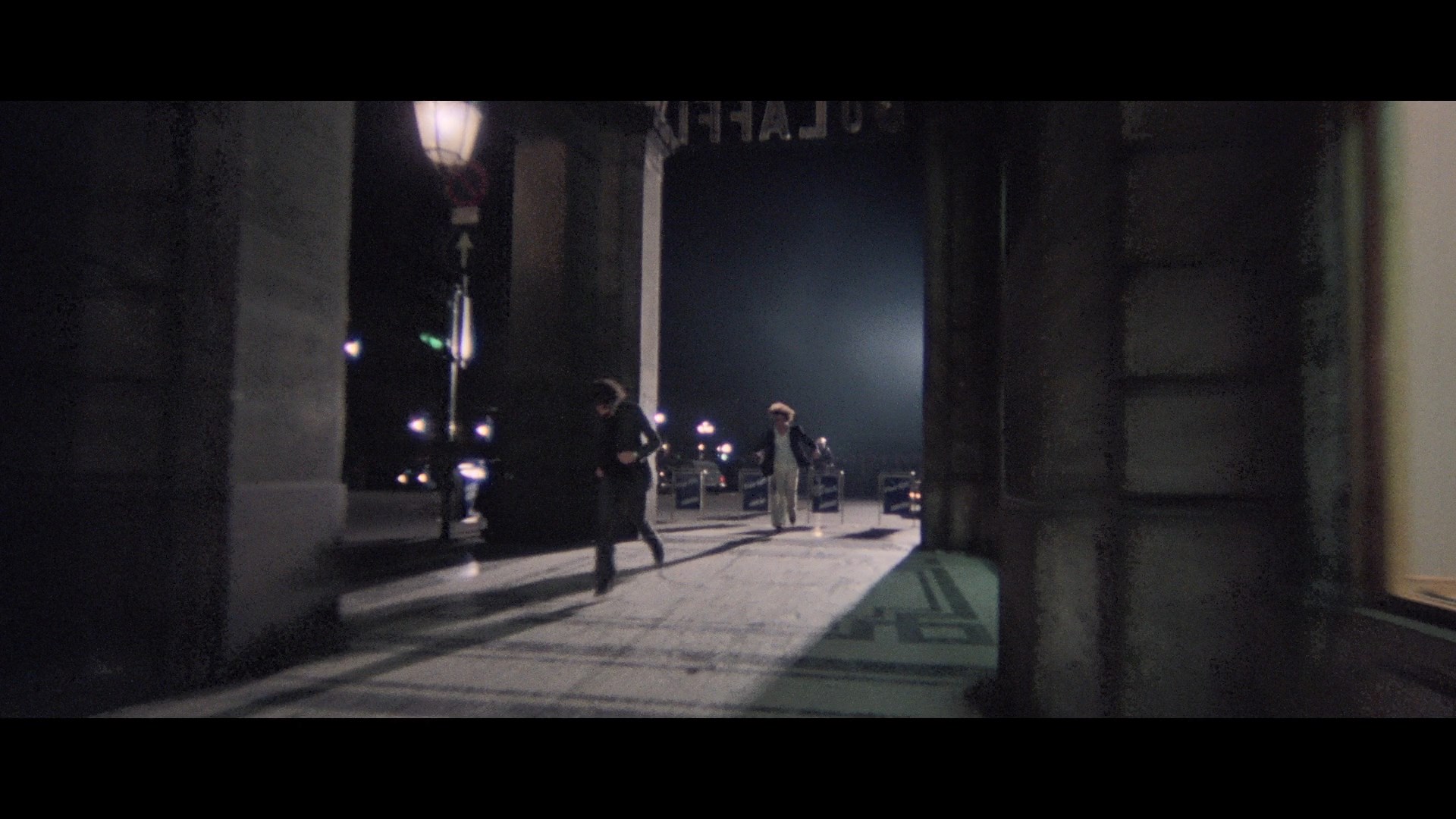
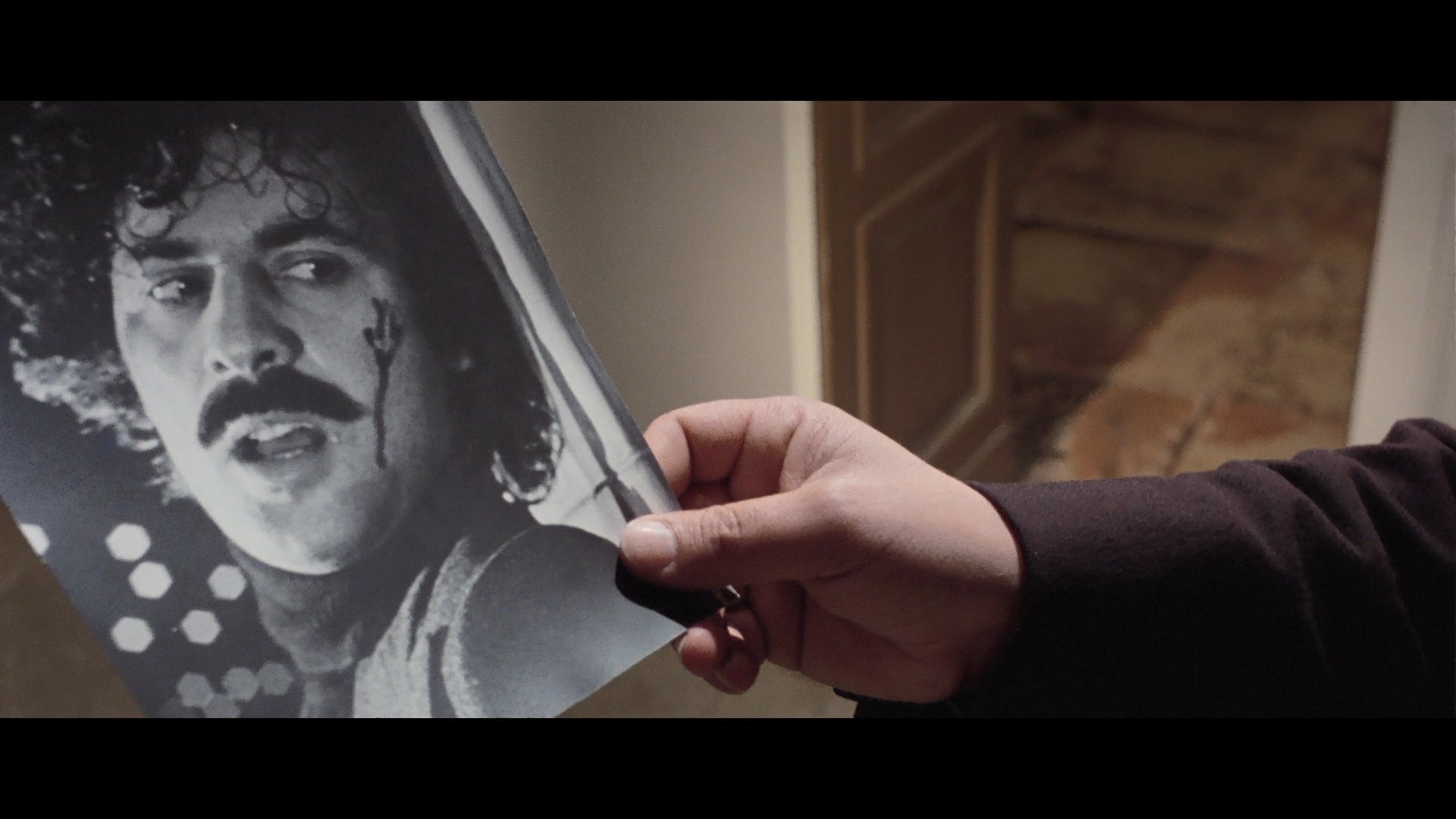
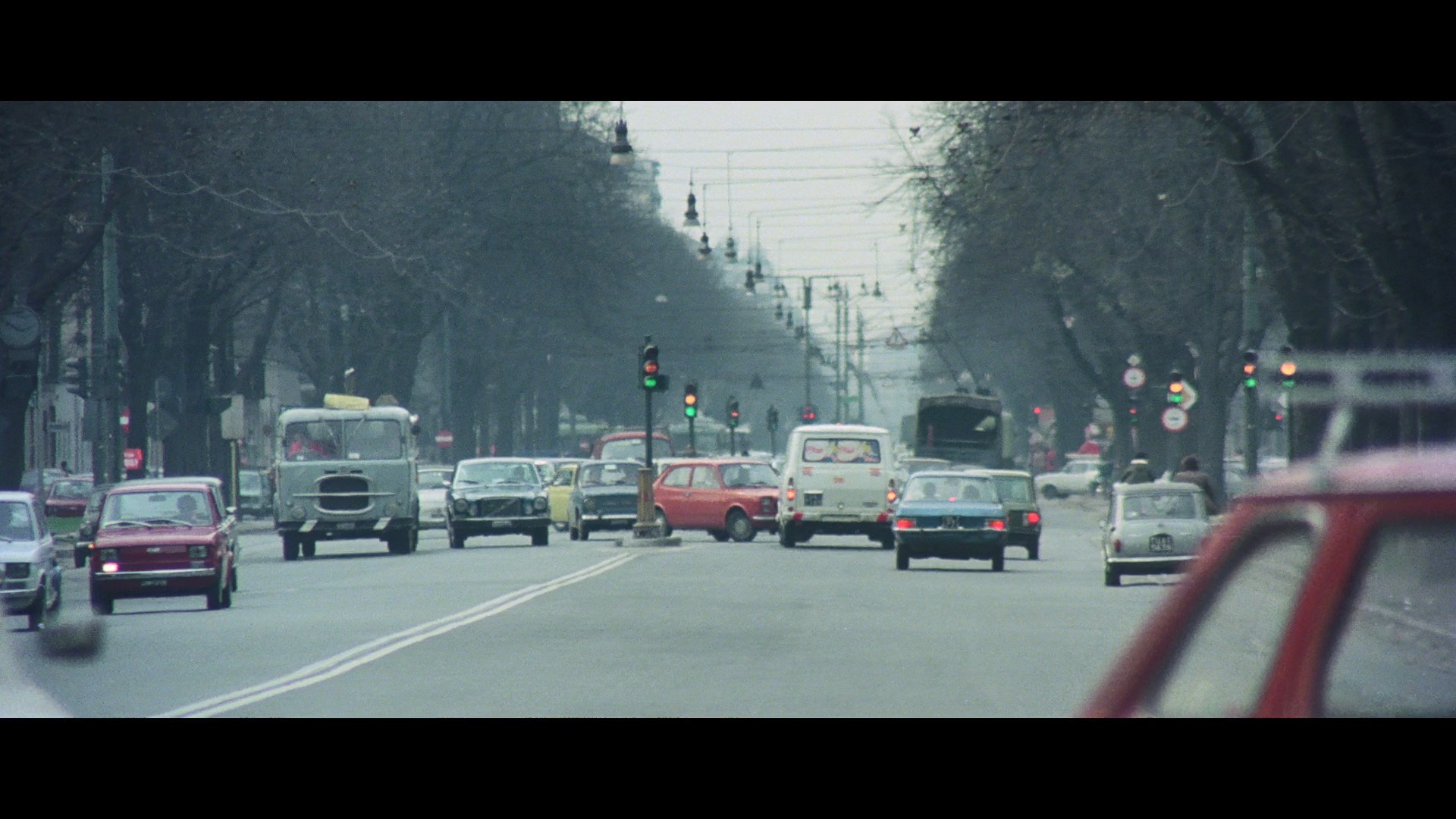
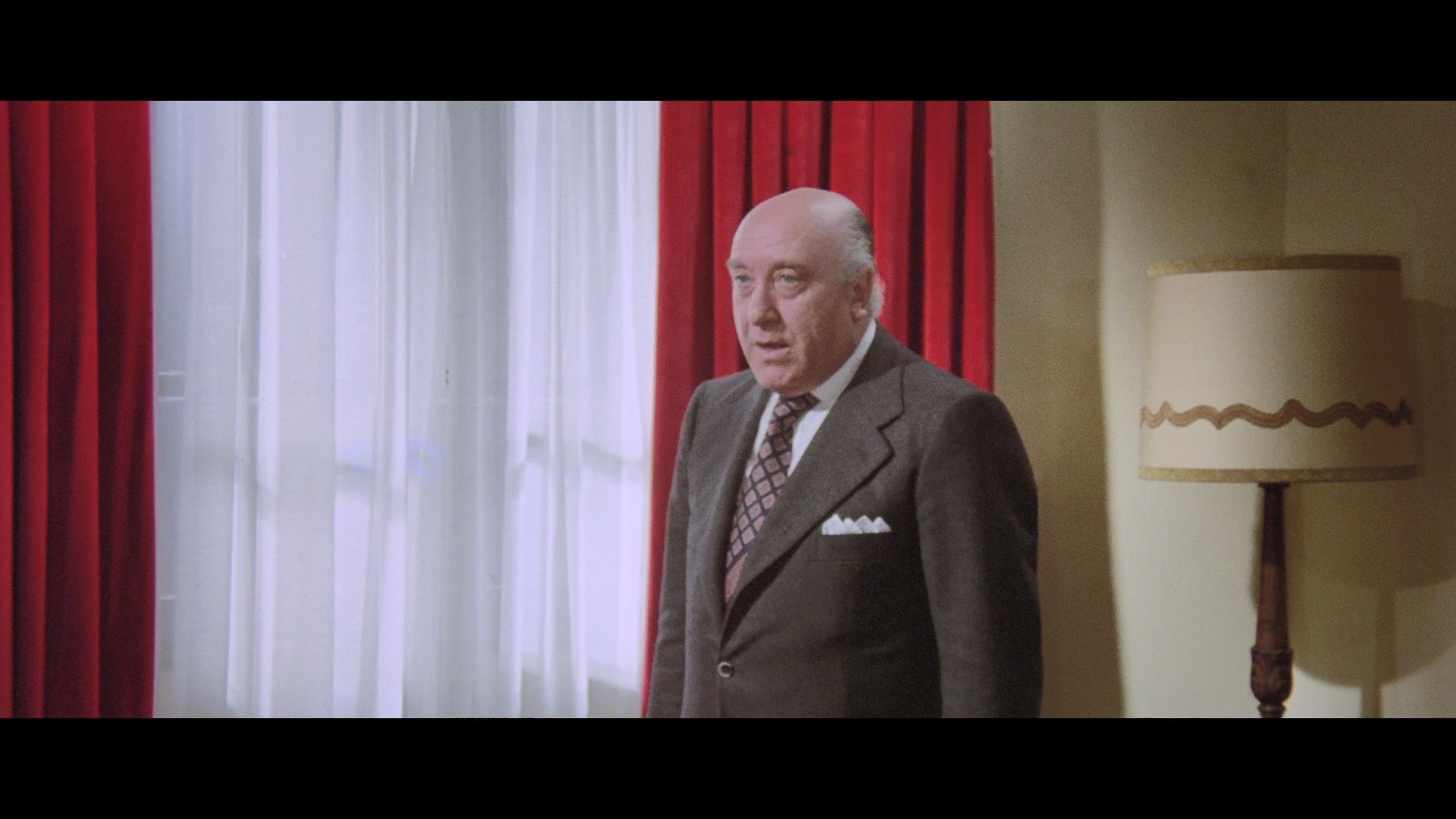
COLT 38 SPECIAL SQUAD (NoShame)
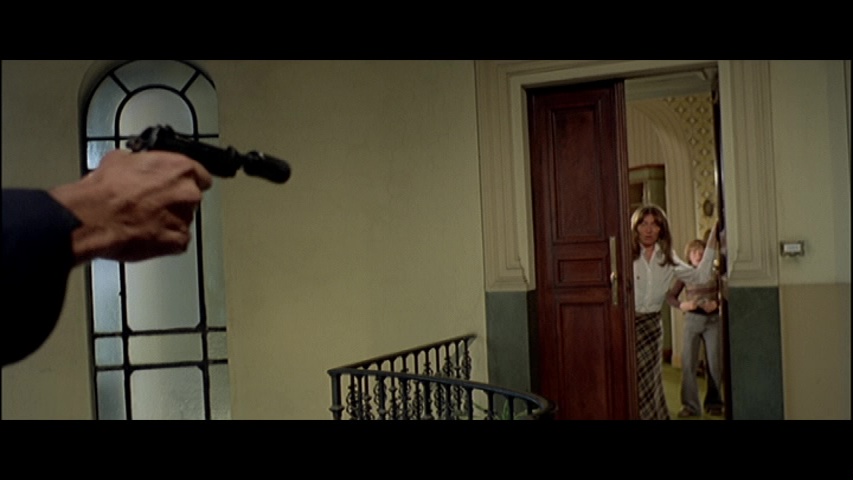
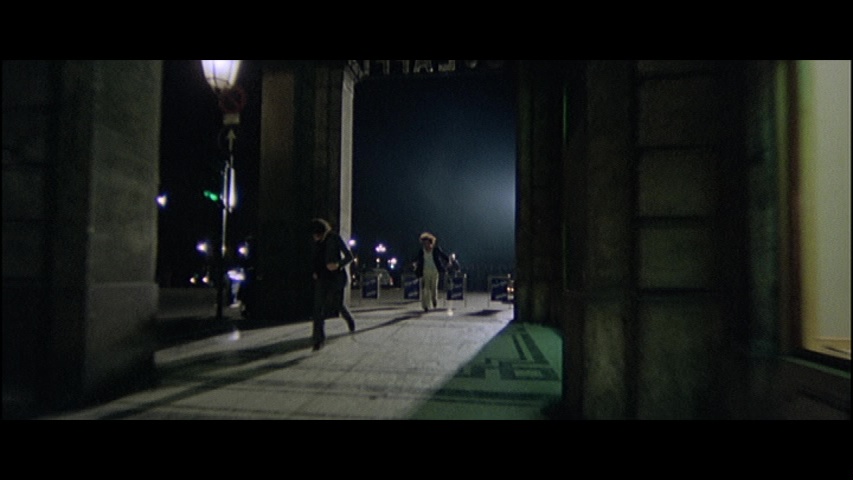
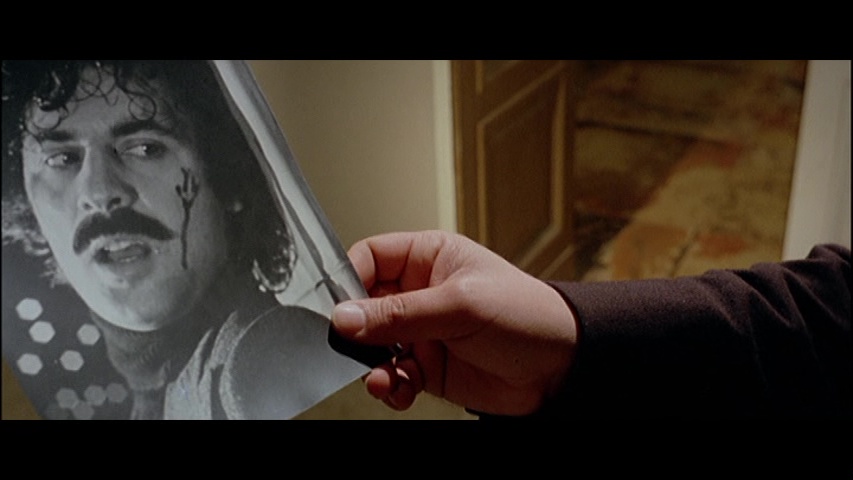
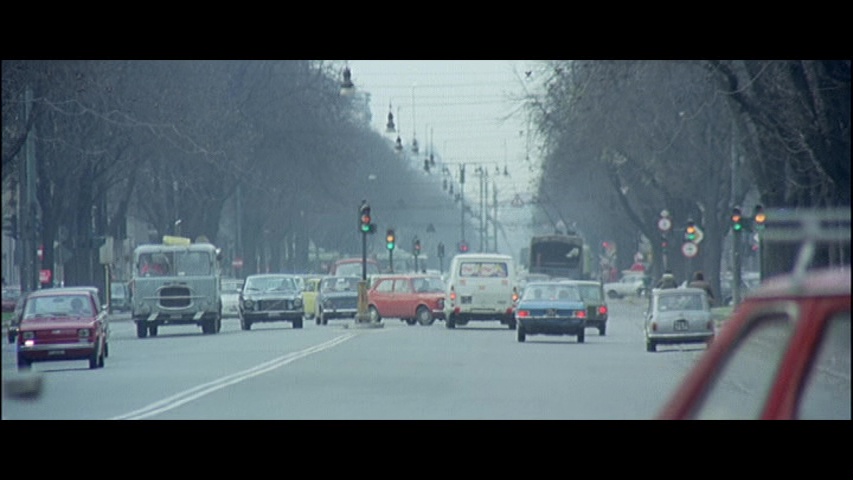
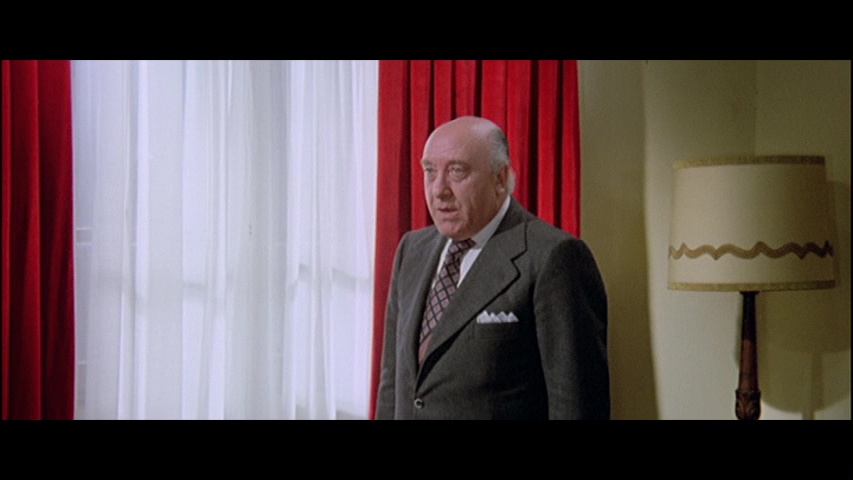
HIGHWAY RACER (Arrow)
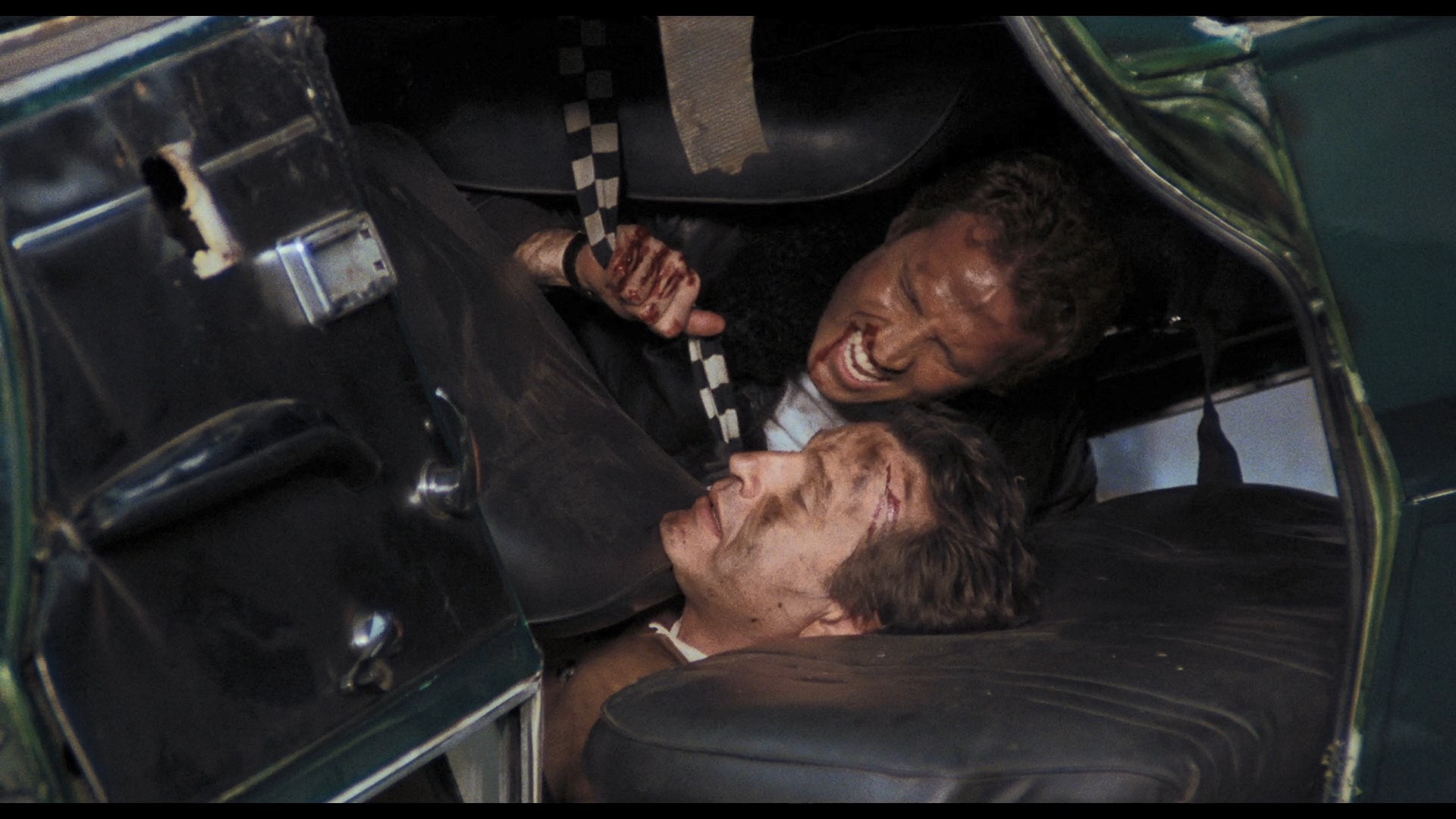
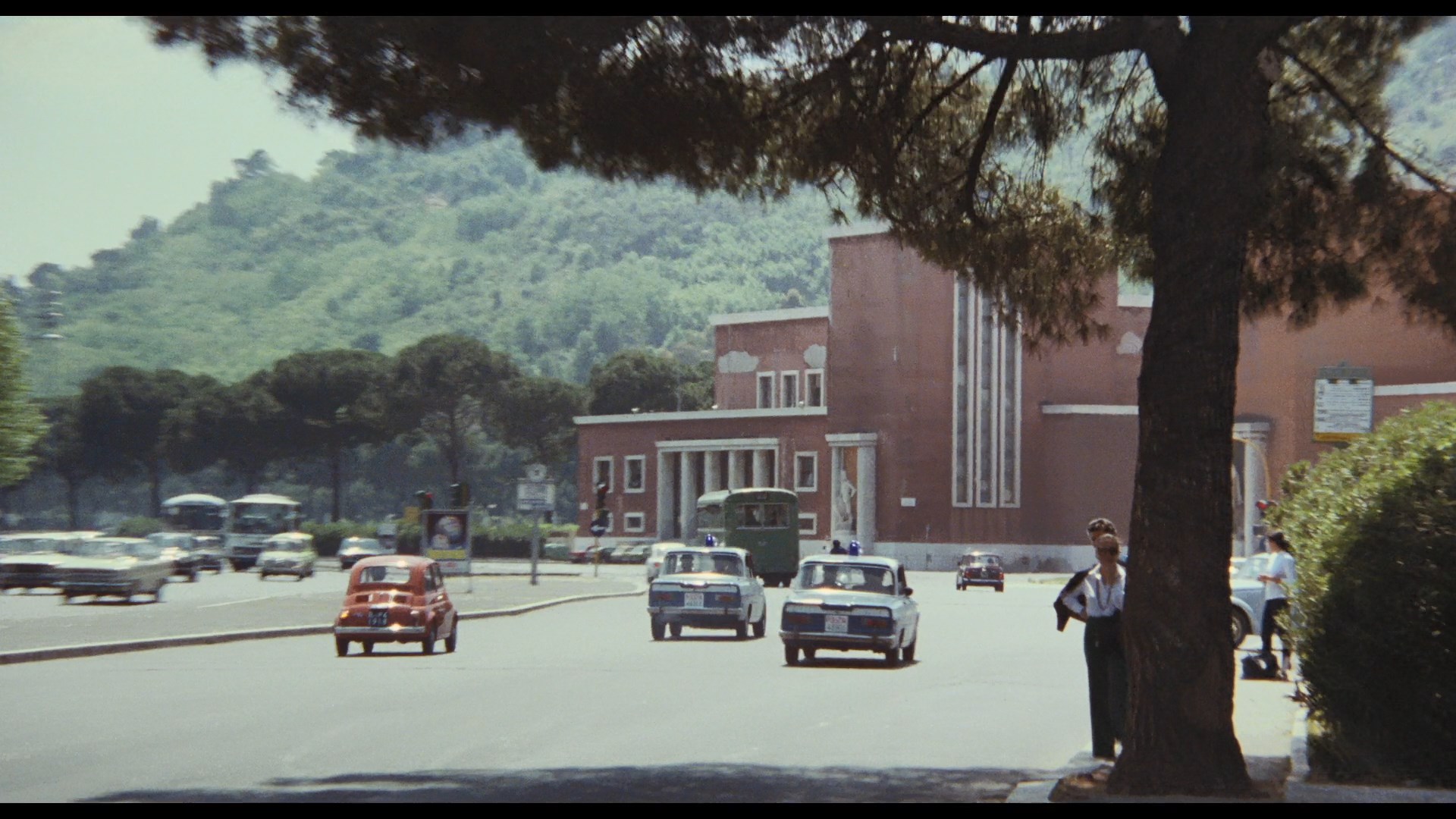
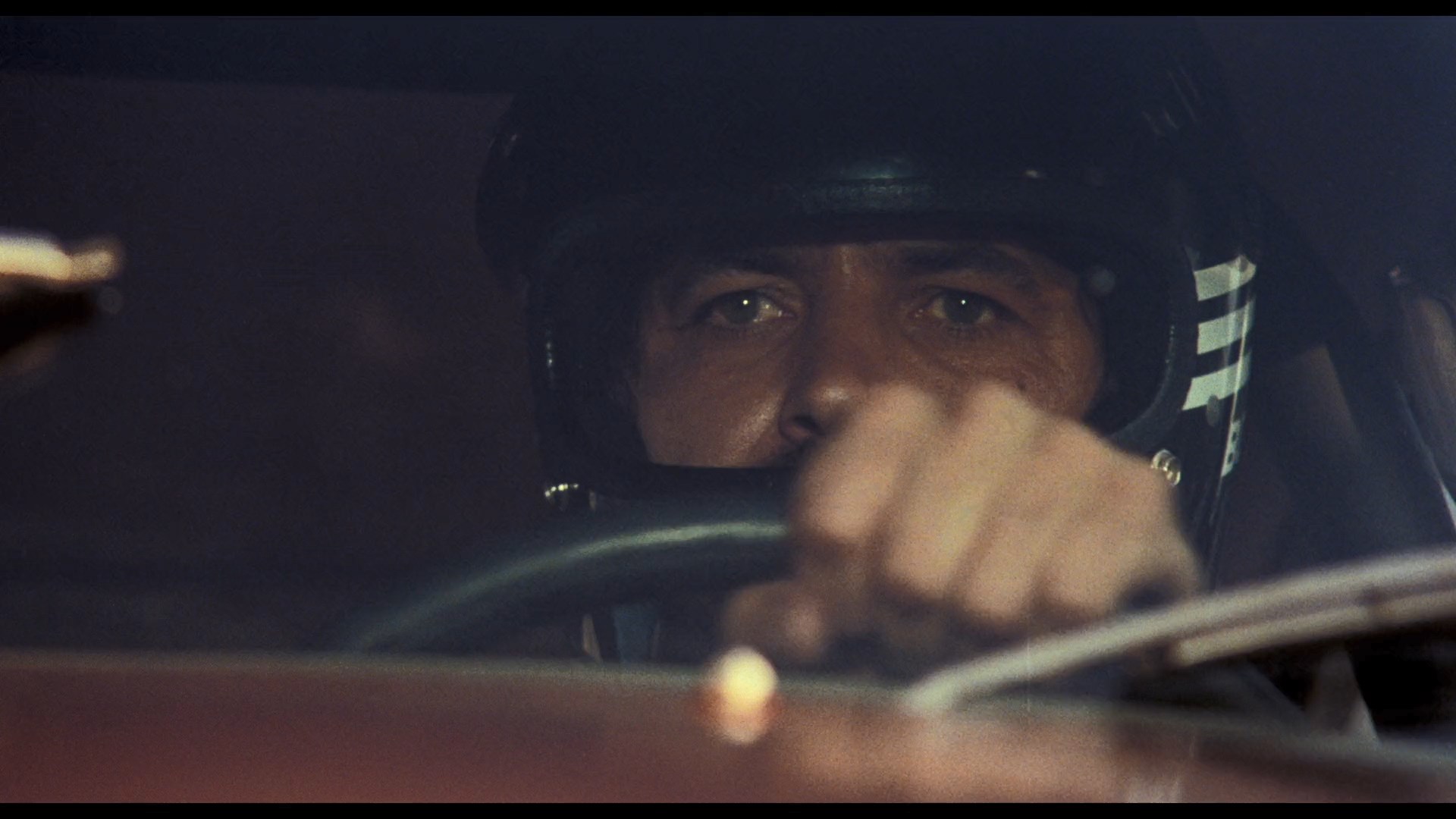
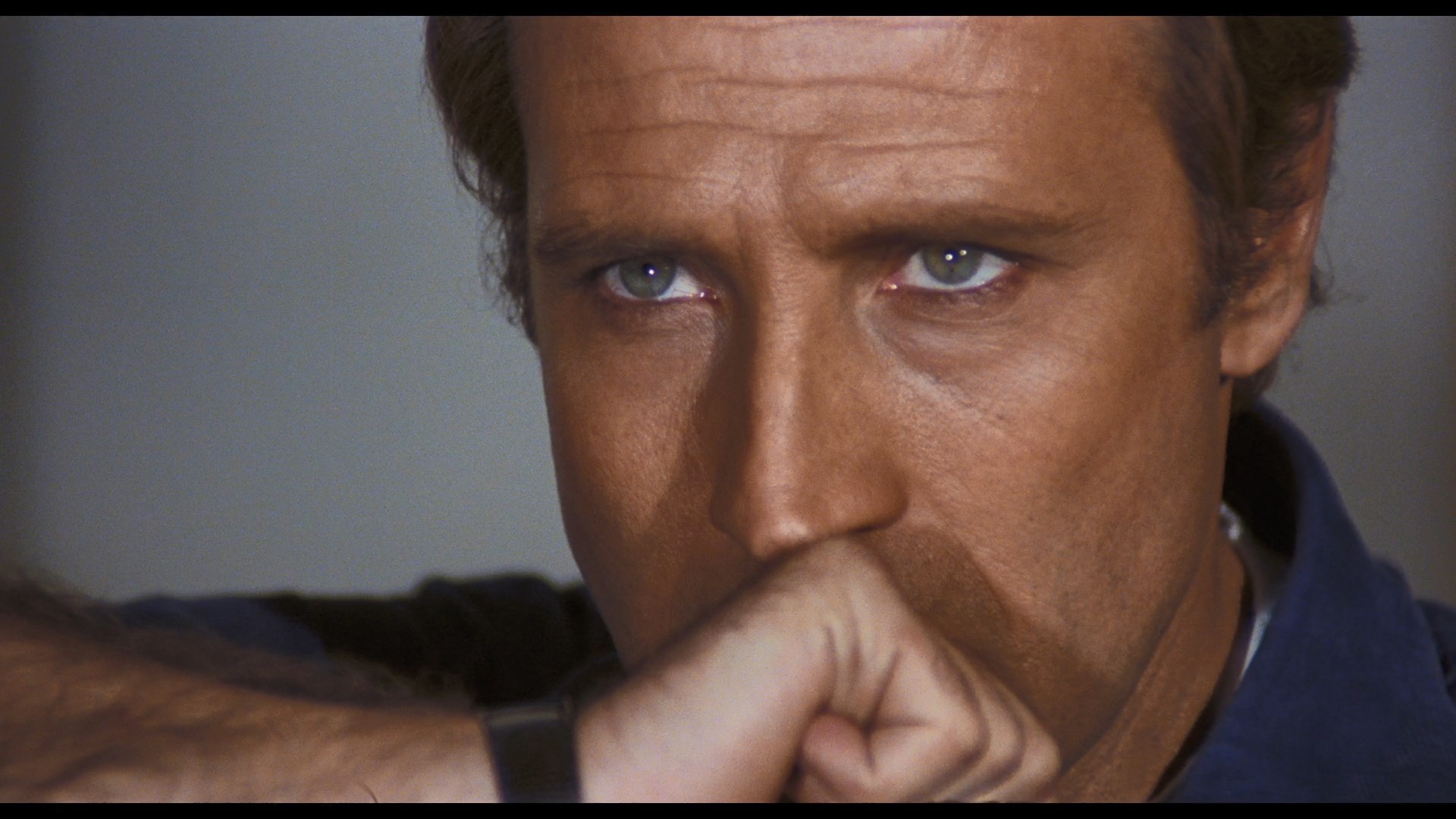
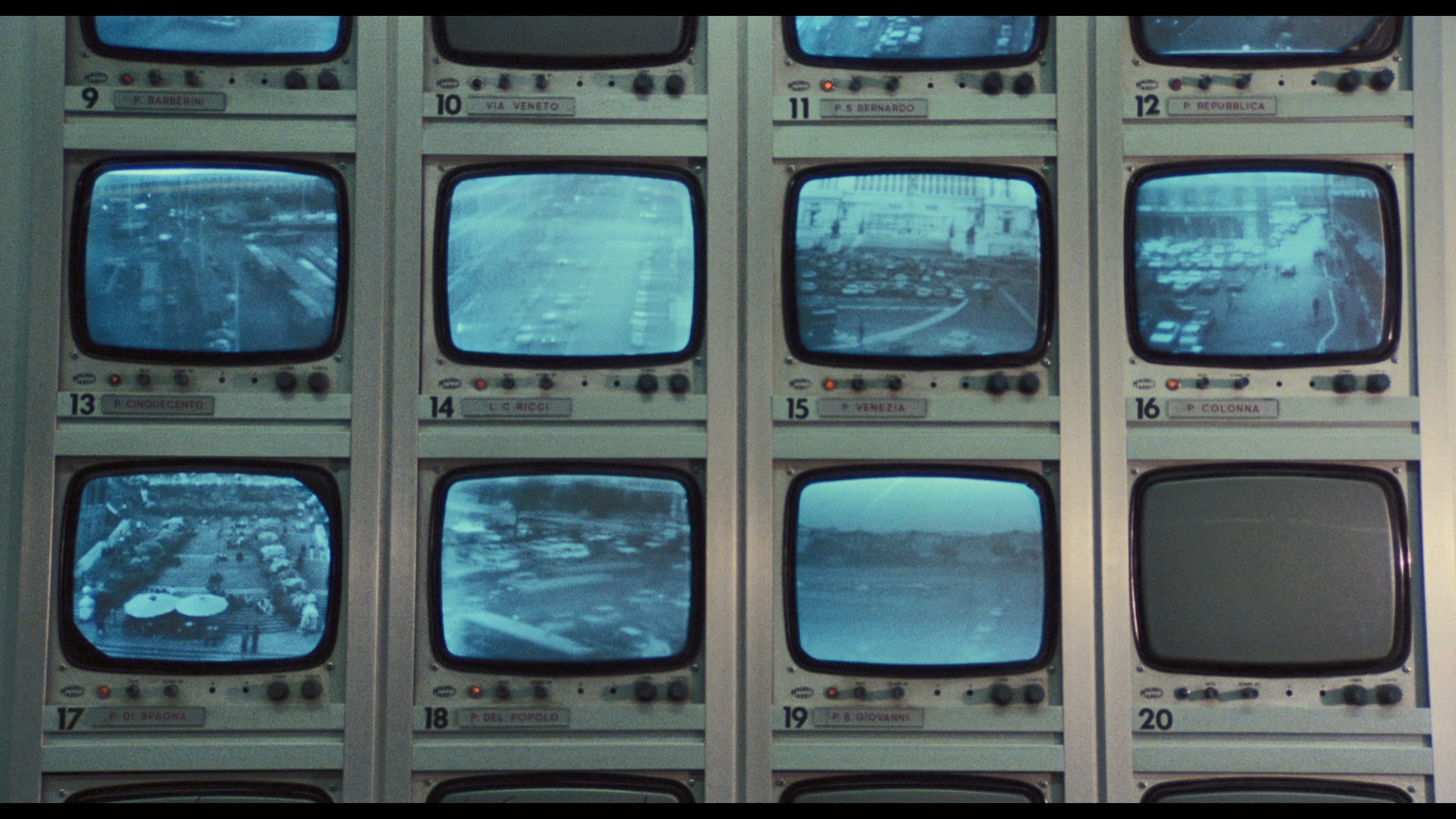
HIGHWAY RACER (Camera Obscura)
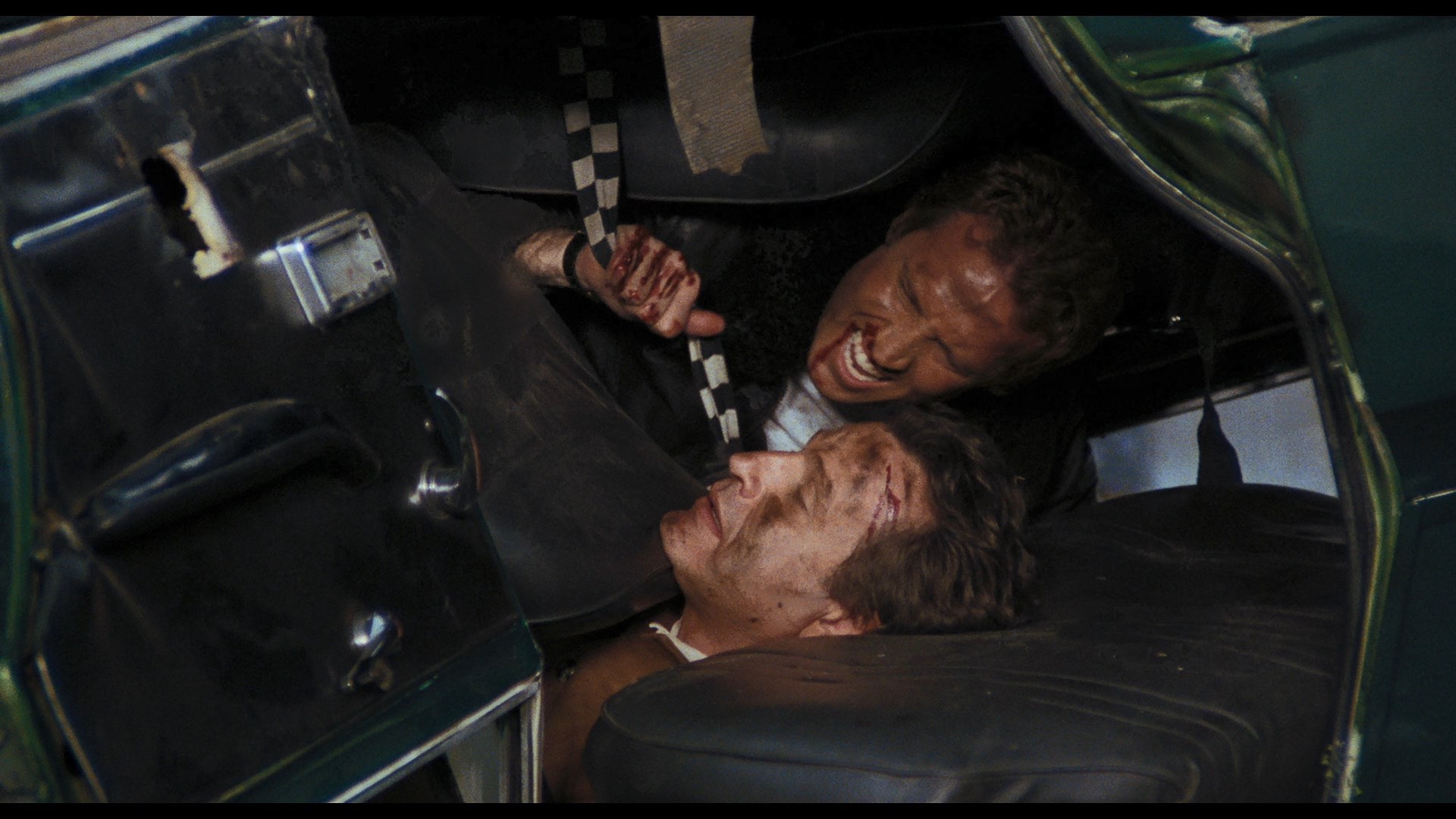
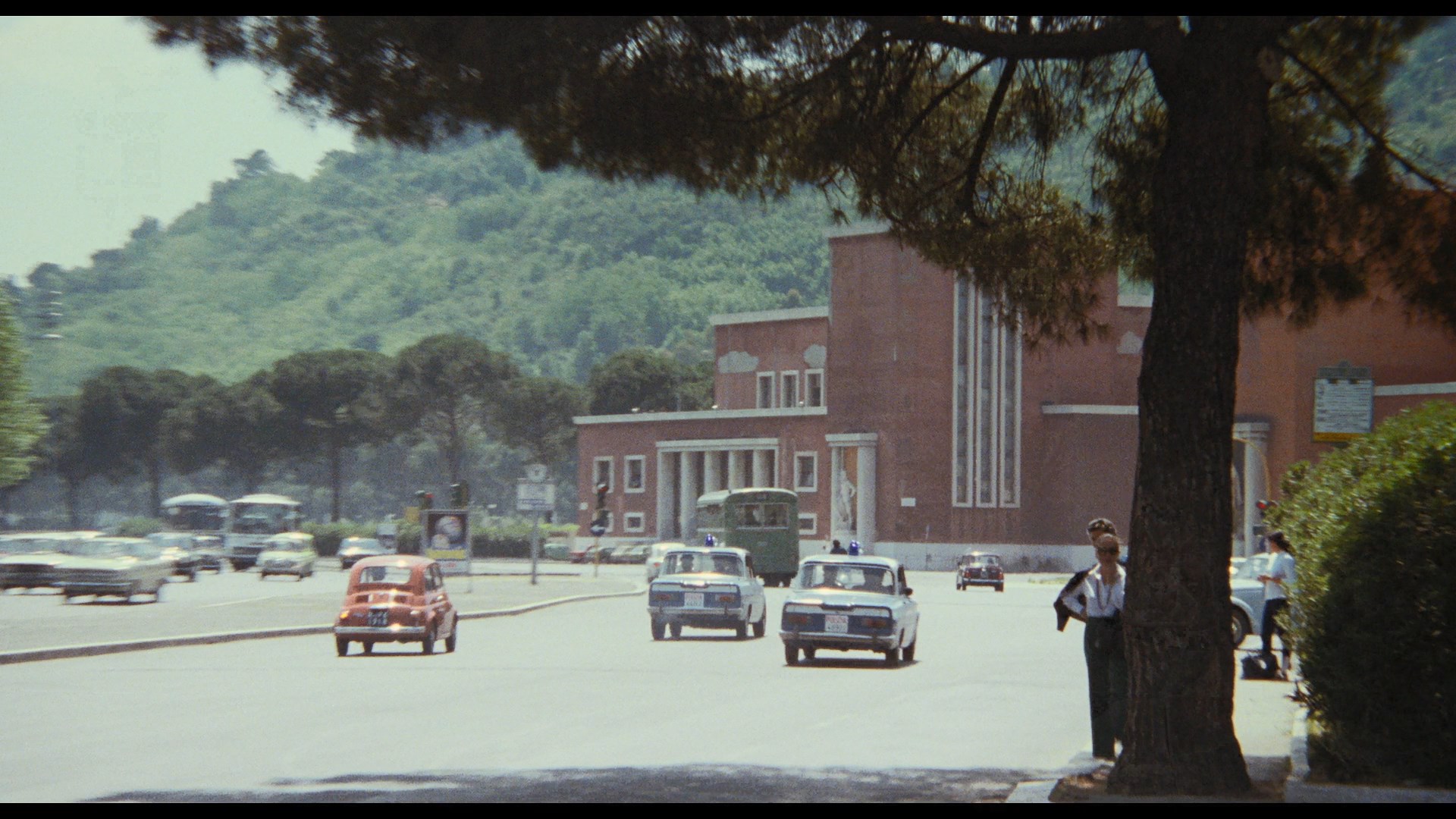
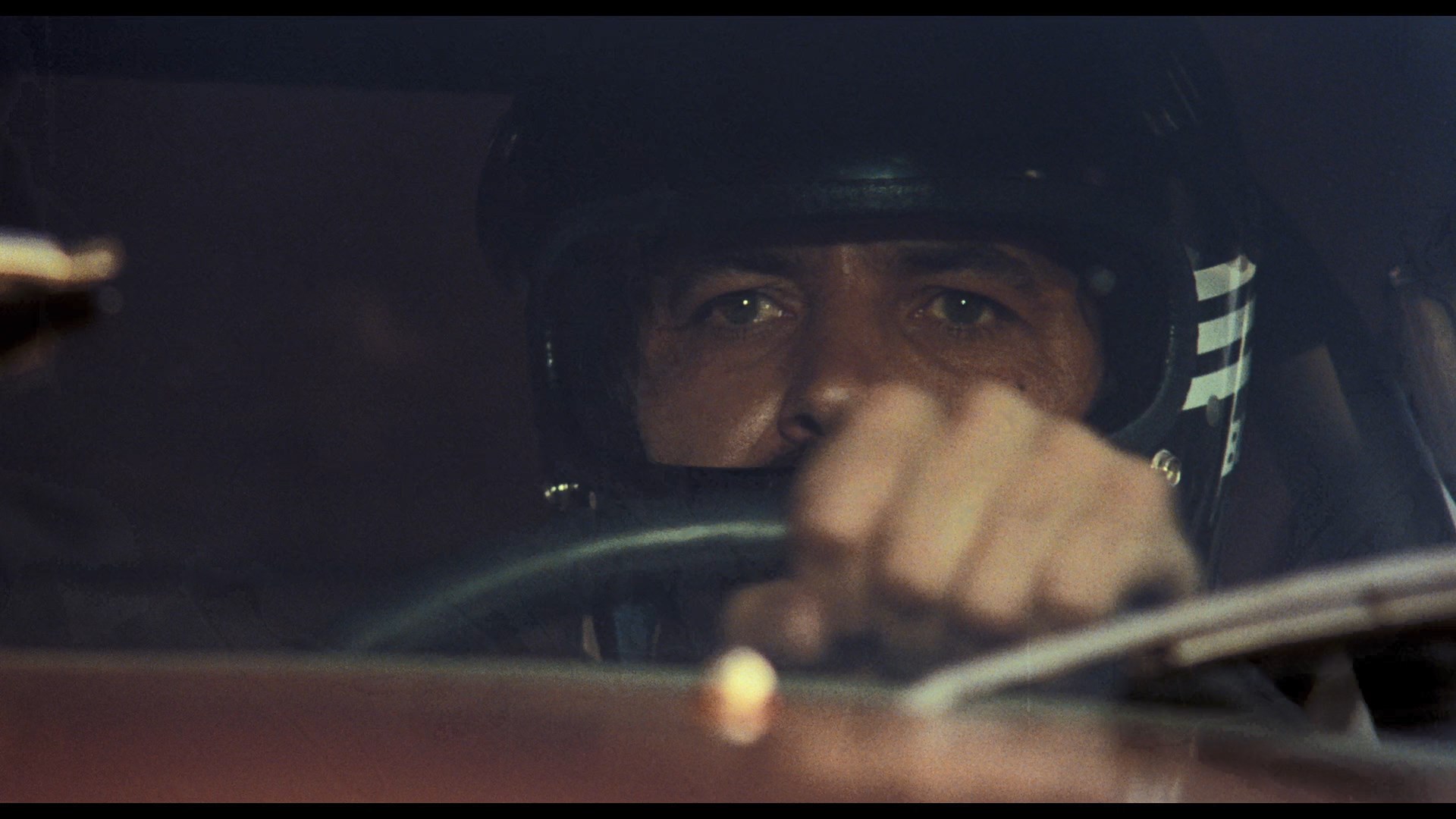
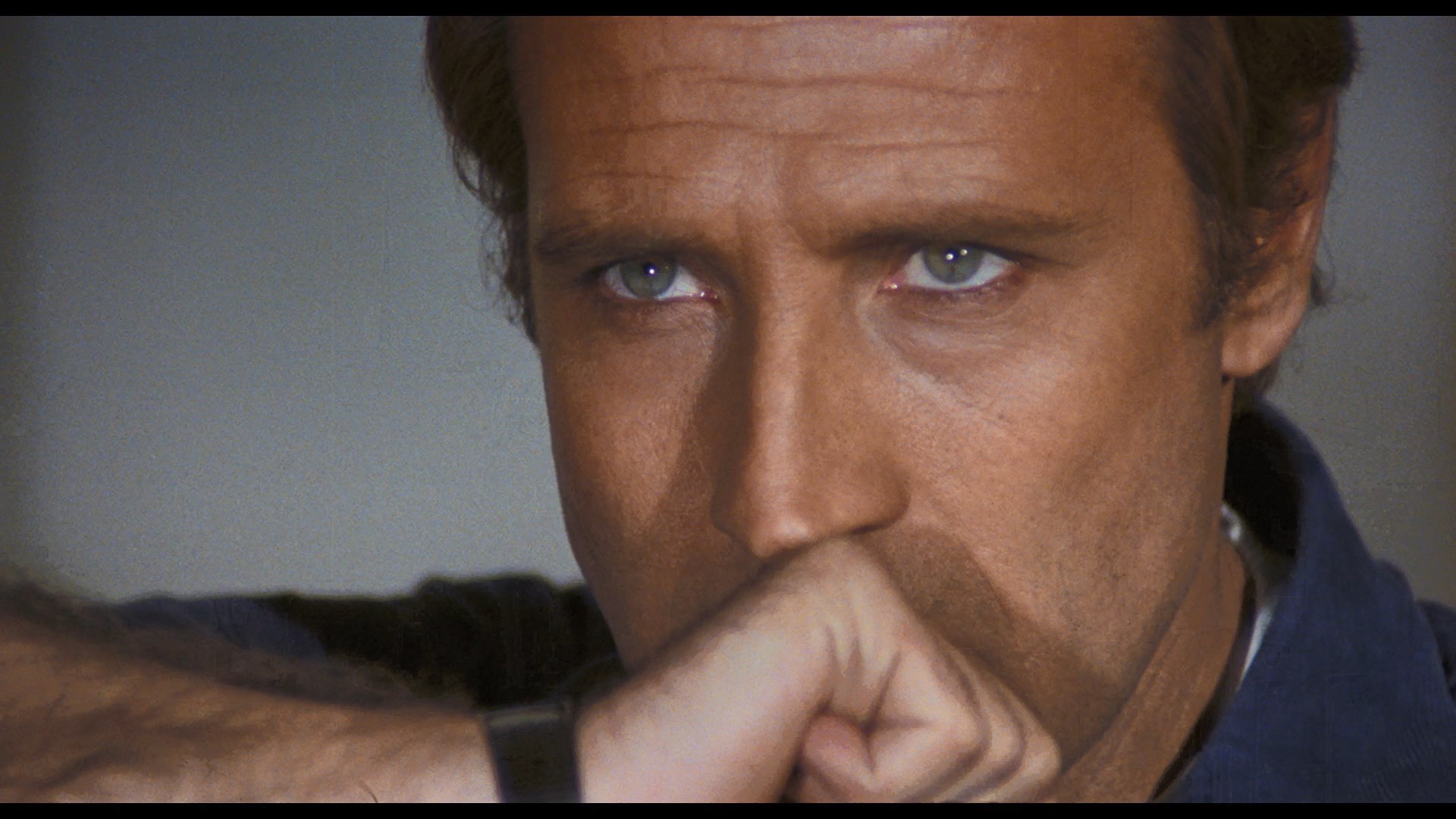
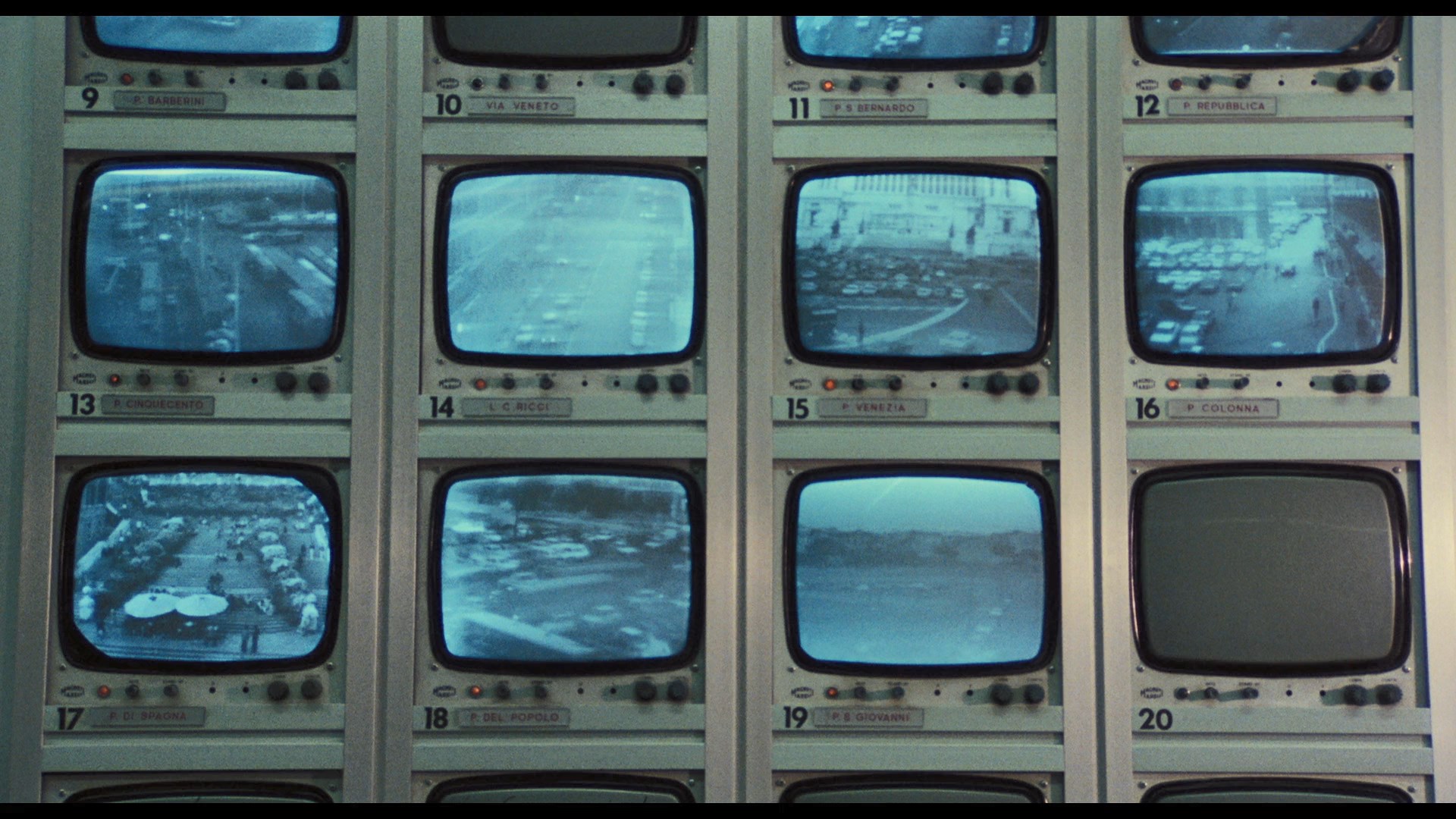
NO, THE CASE IS HAPPILY RESOLVED (Arrow)
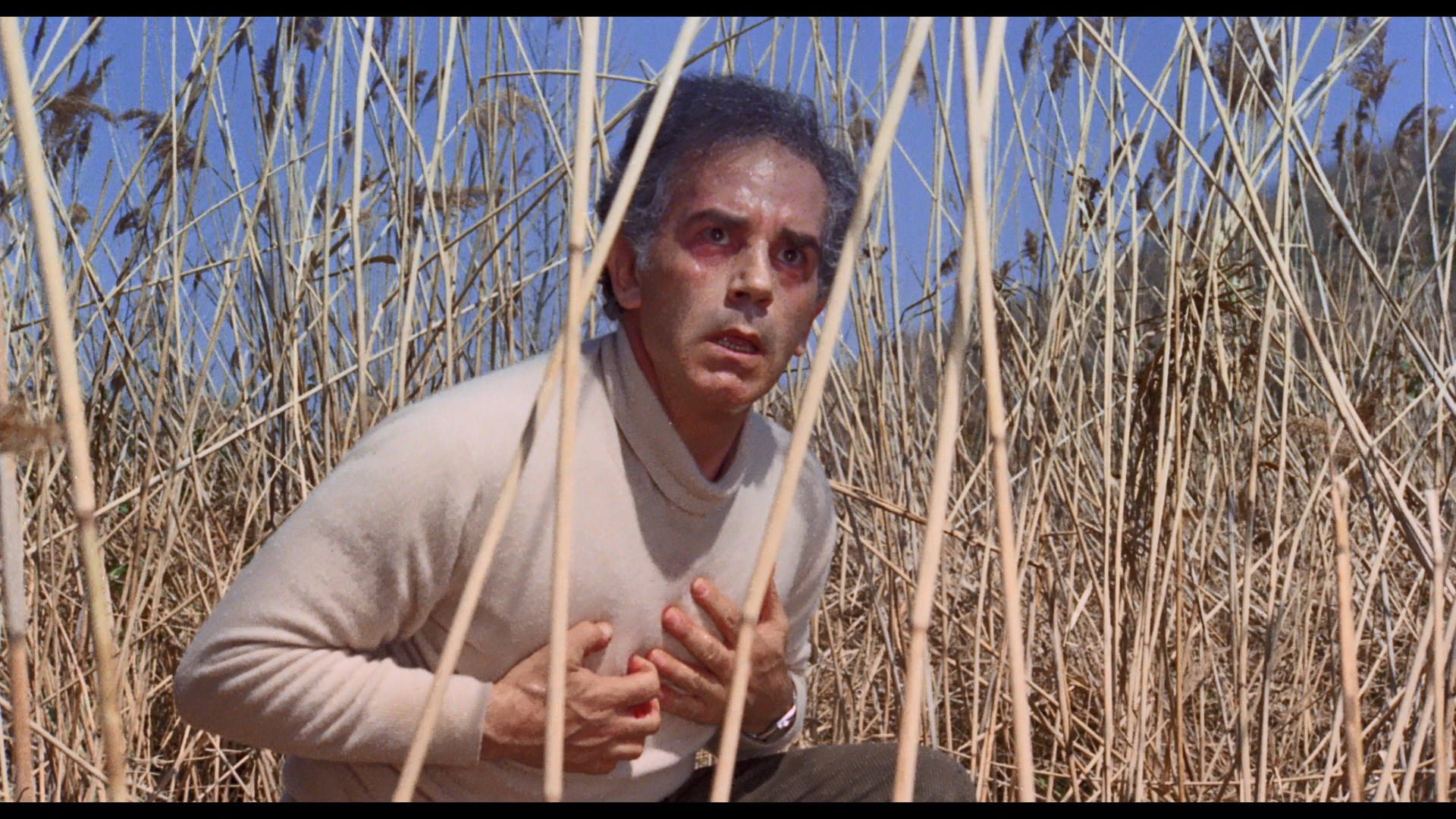
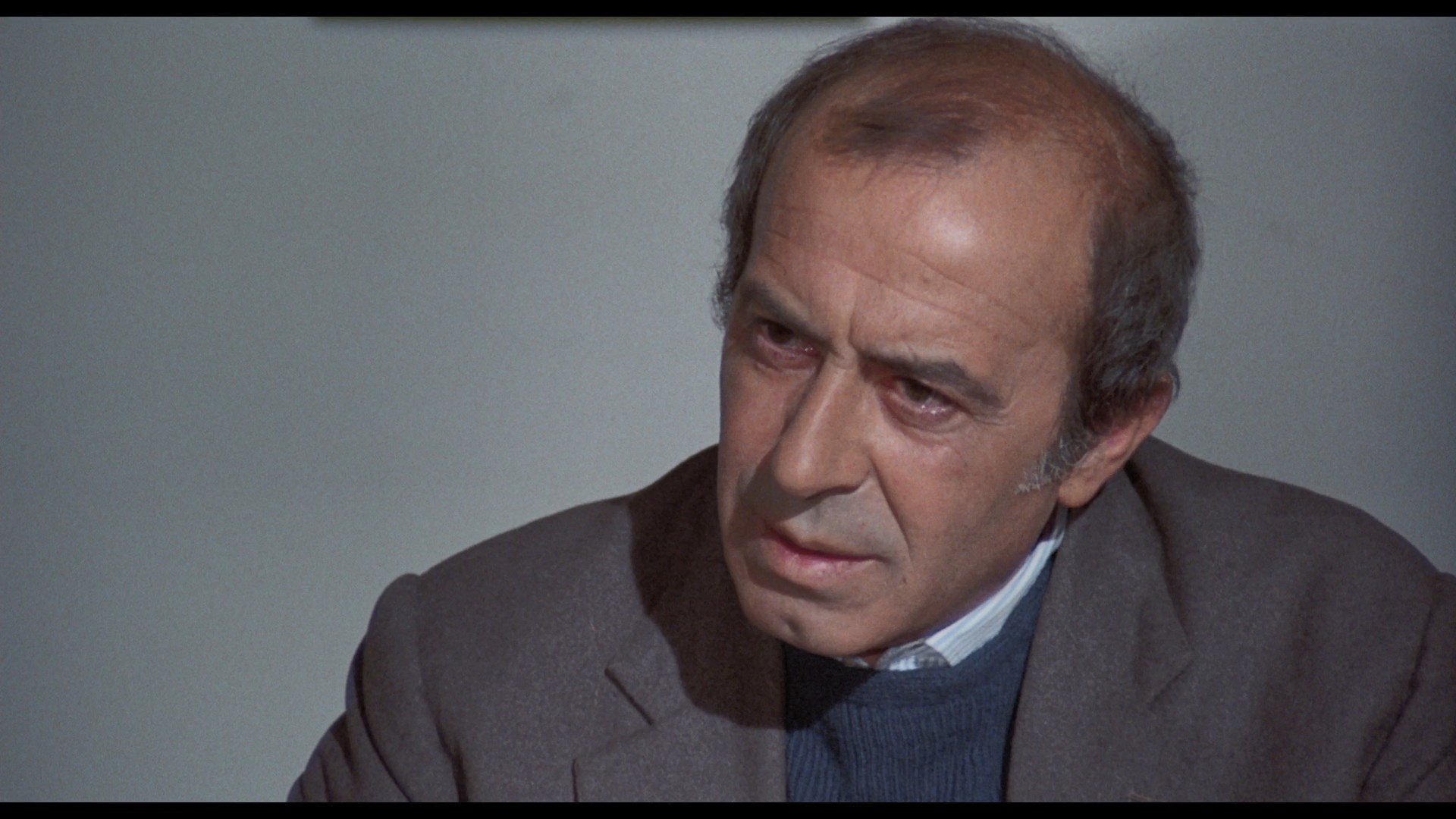
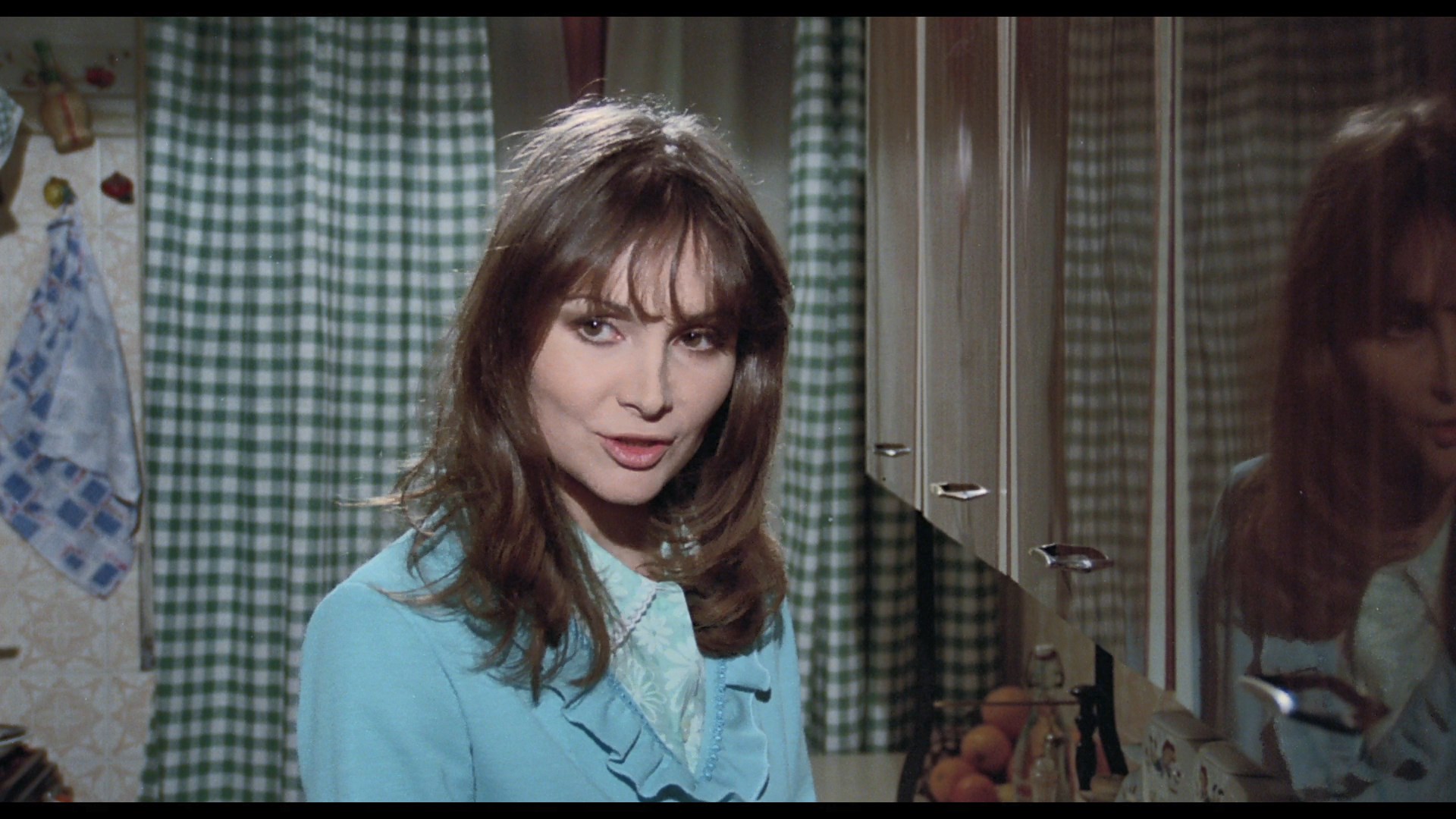
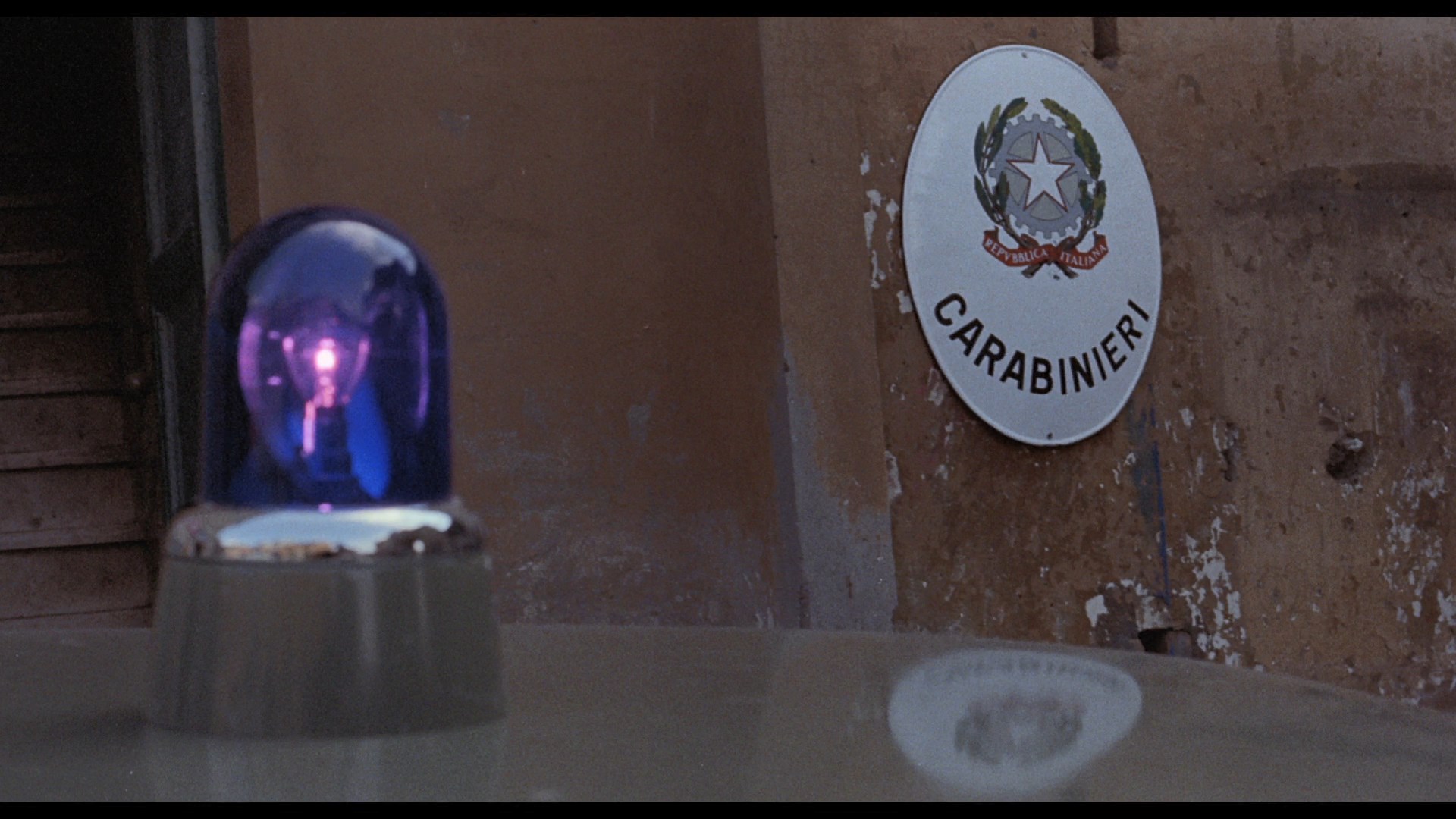
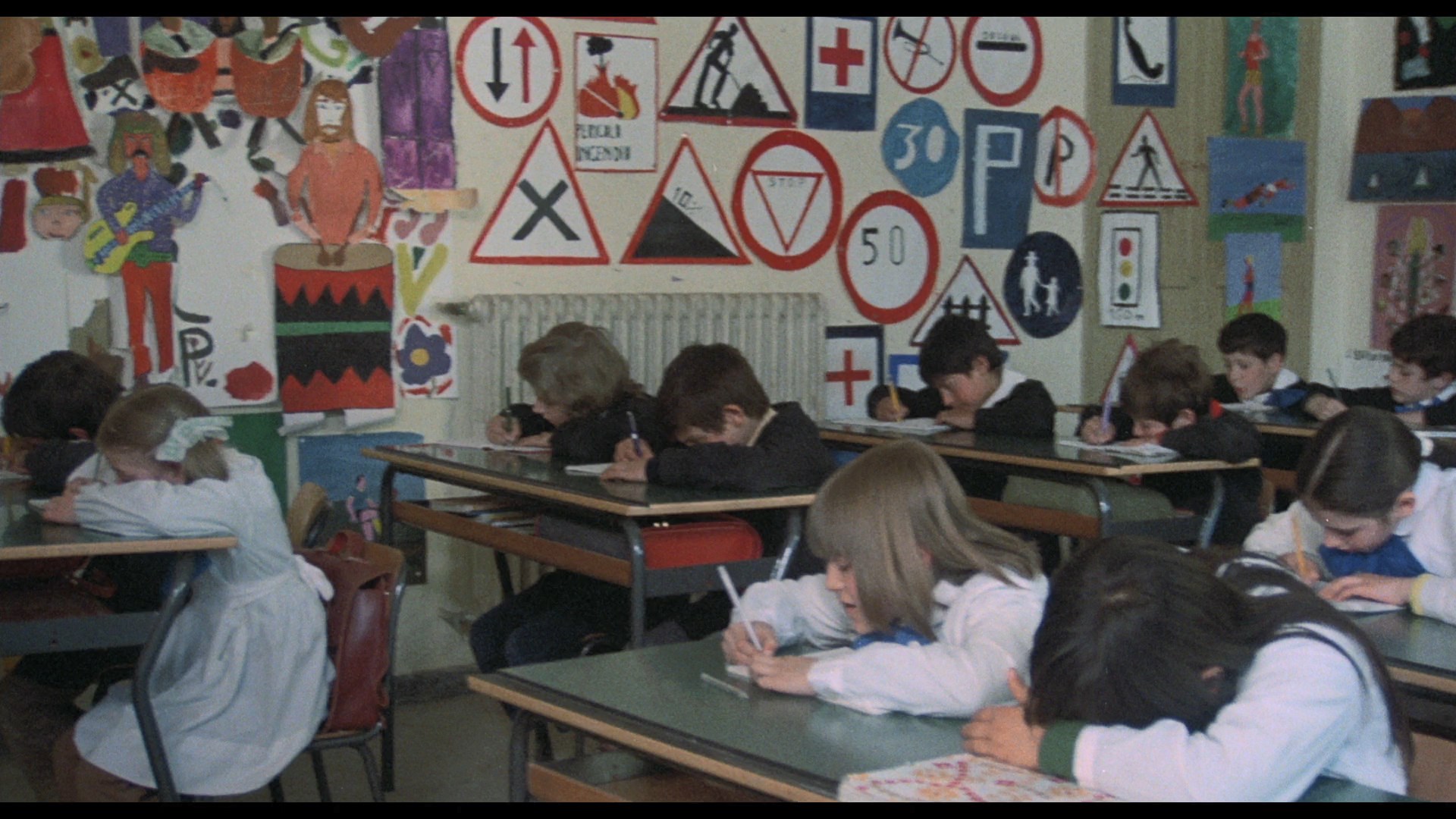
NO, THE CASE IS HAPPILY RESOLVED (Camera Obscura)
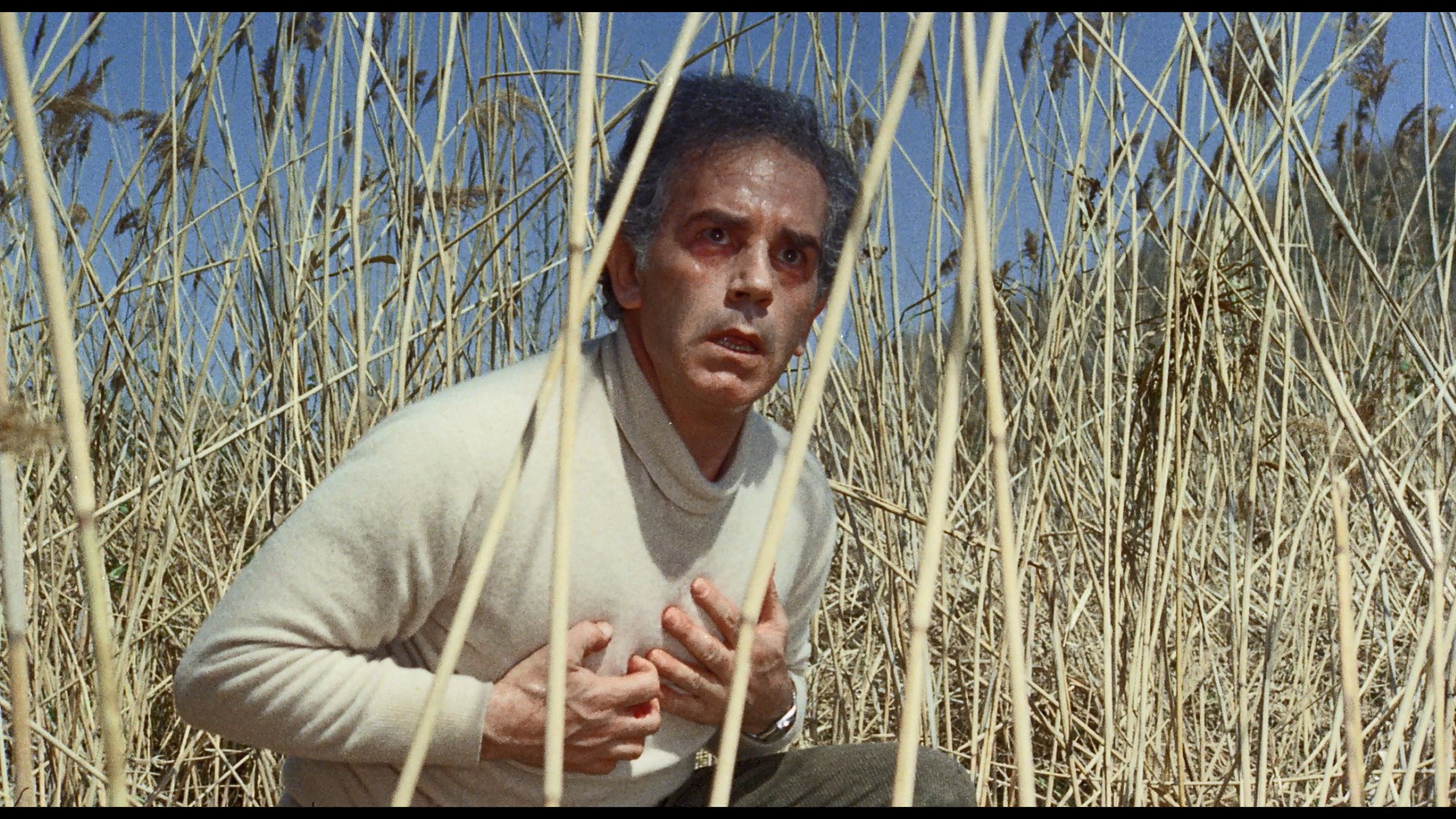
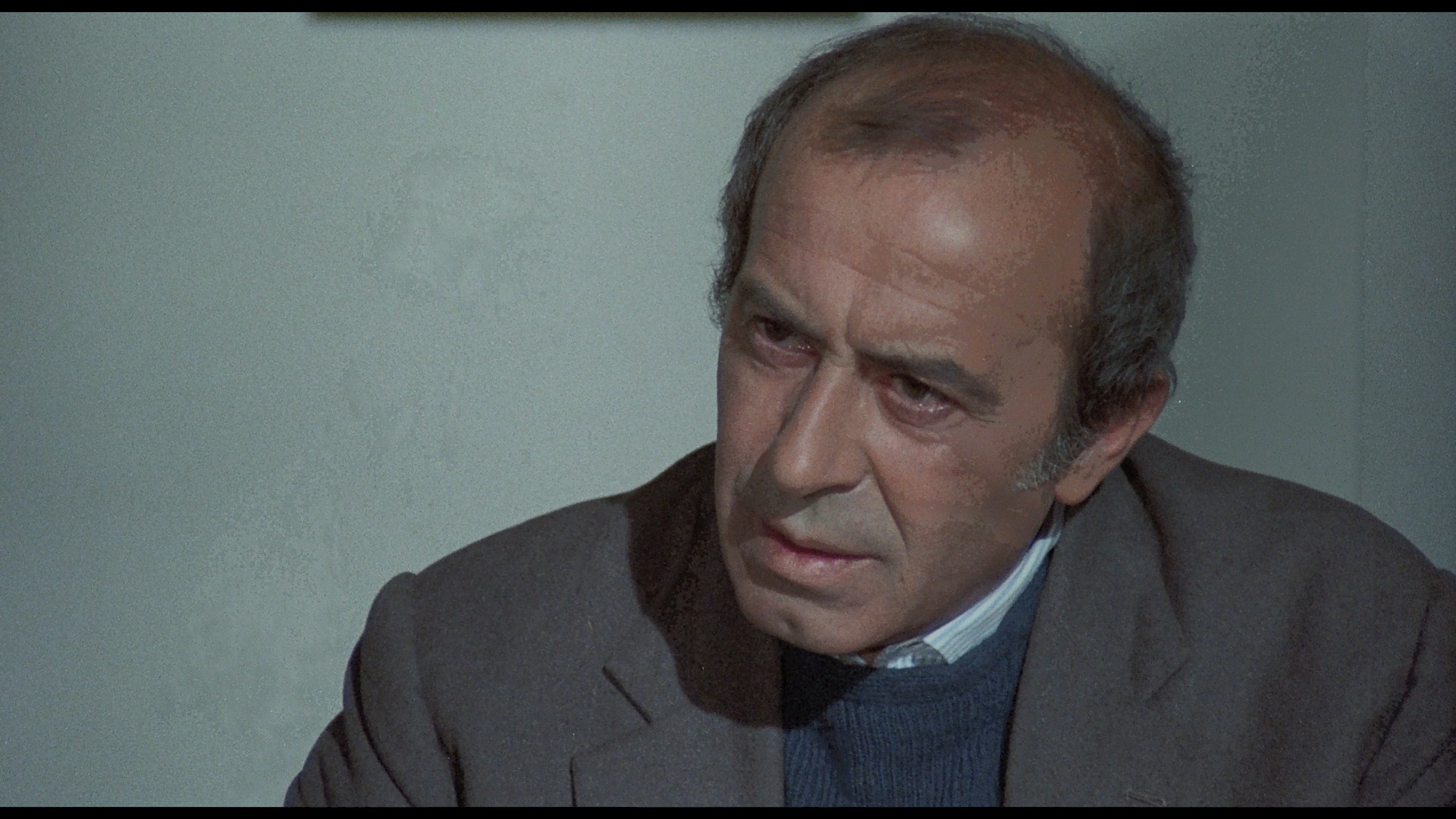
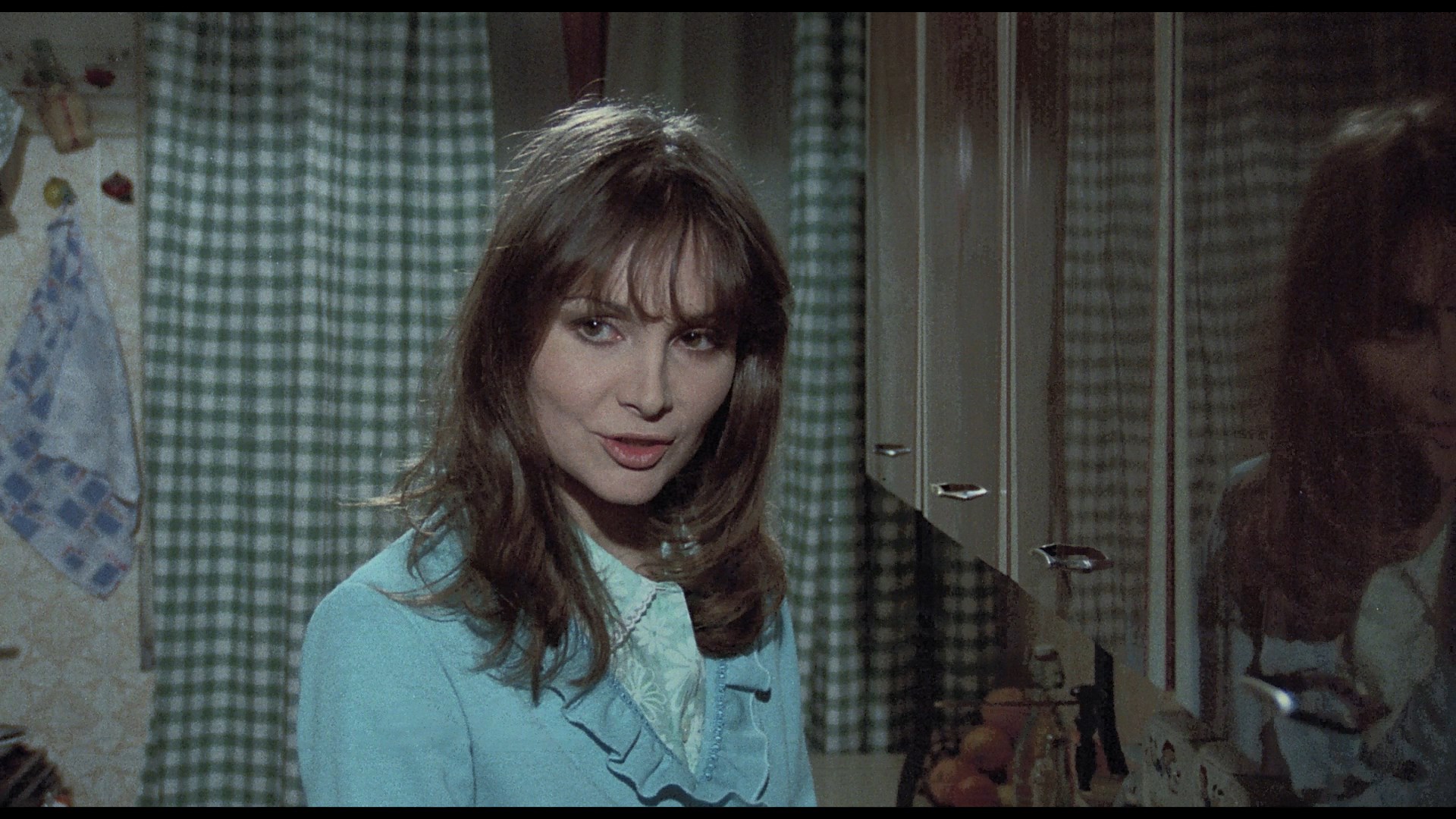
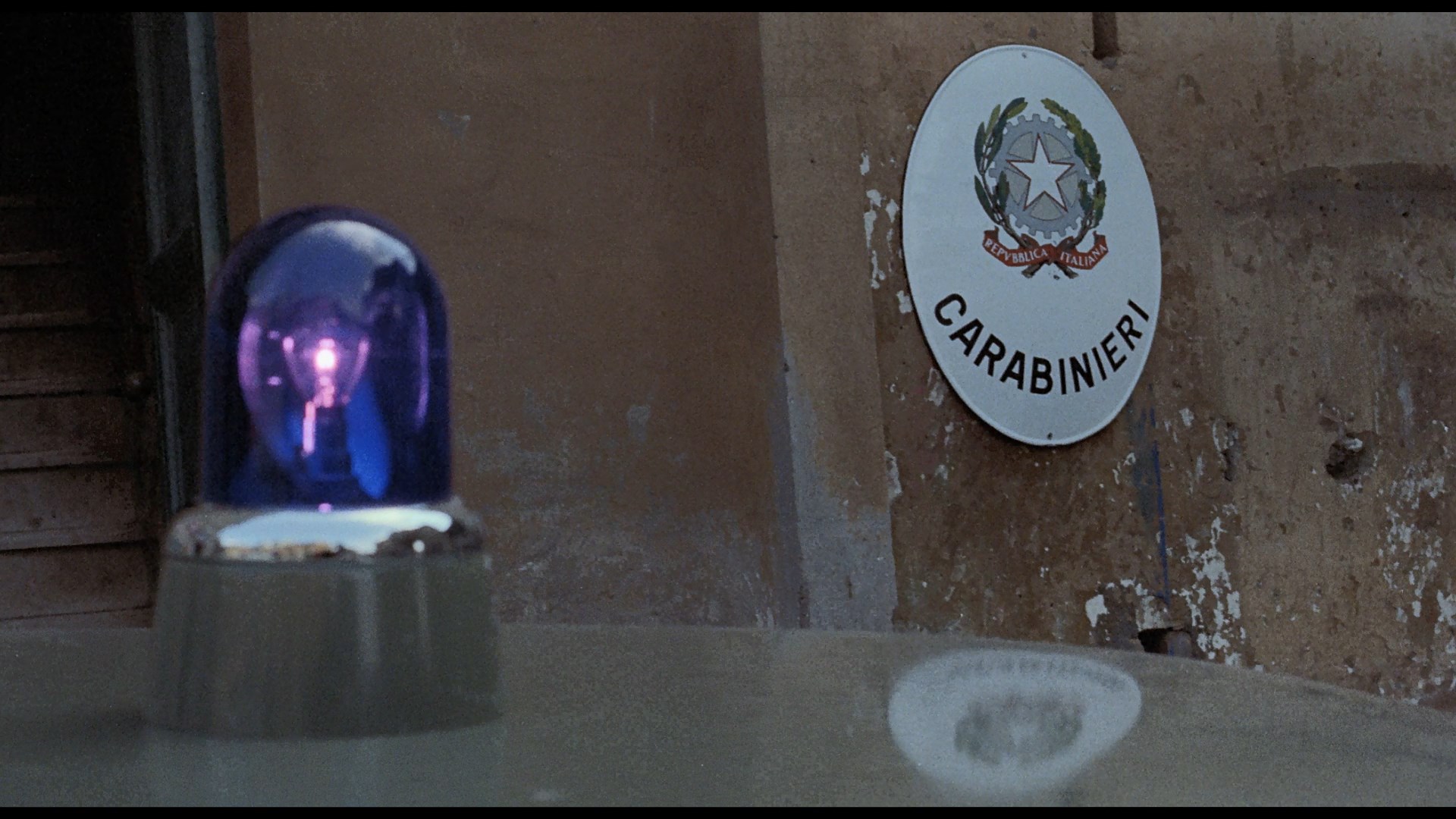
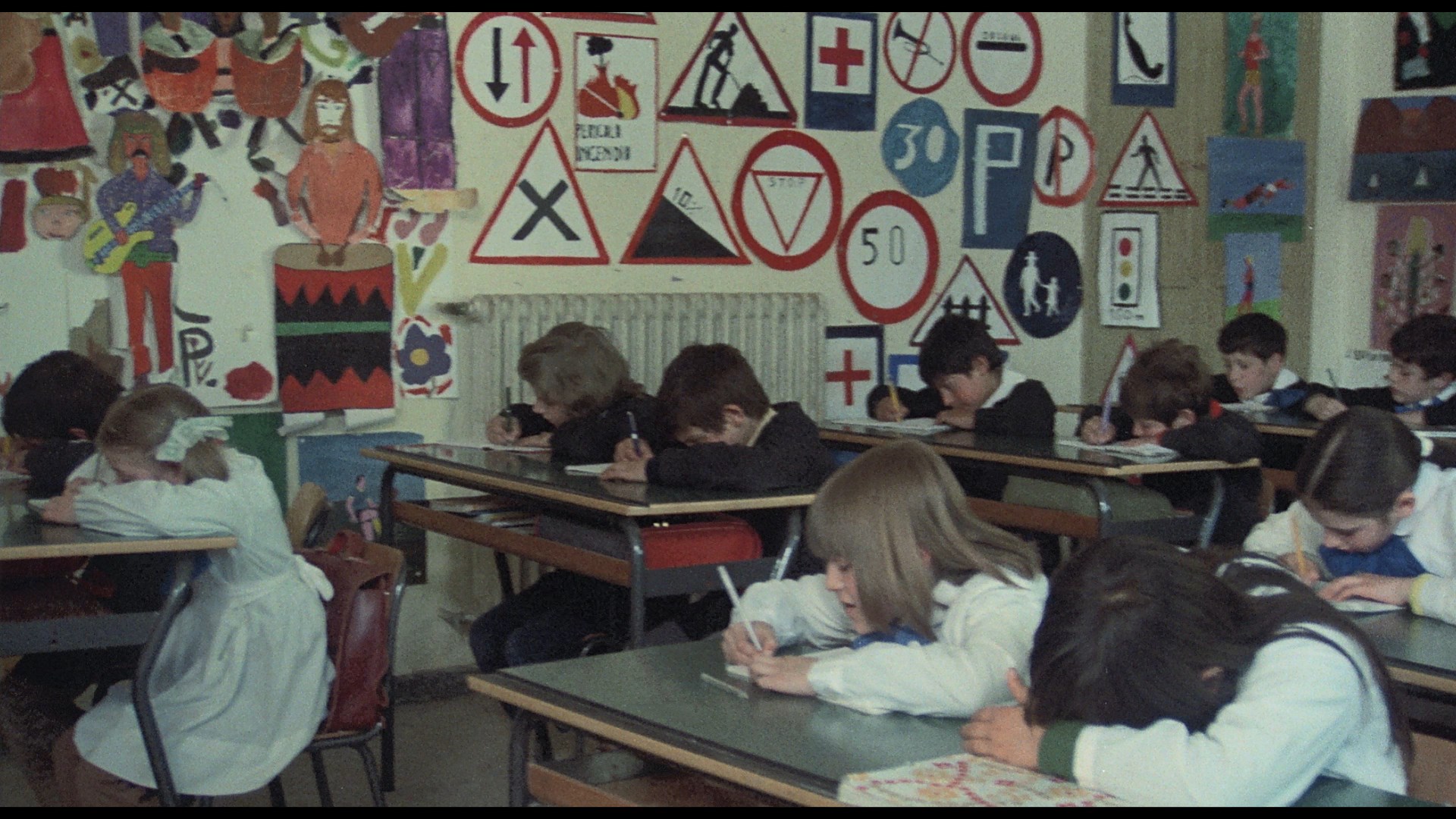
Reviewed on June 9, 2021.



 strange career
strange career  tangent taken by famous Andy Warhol Factory icon Joe Dallesandro in Europe is a wild toy chest of surprises still left to be discovered, but a bigger picture of his output there has been slowly coming to light with a number of Blu-ray and DVD releases around the world highlighting his work in crime films (The Climber, Season for Assassins, Madness), gialli (Killer Nun), and whatever Black Moon is. That still left plenty of curios left to be salvaged (especially One Woman's Lover, Borowczyk's The Streetwalker, and the still-elusive, English-language version of the incredible Je t'aime moi non plus), you can chalk up another big missing piece with Fango Bollente (roughly translated as "boiling mud"), which was prepared for a handful of English-language territories as Savage Three. This one ties in with its '70s crime siblings in a number of ways, particularly as the follow-up film for director Vittorio Salerno after the fascinating No, the Case Is Happily Resolved (more on that below) with his brother, actor Enrico Maria Salerno (The Bird with the Crystal Plumage), as a dogged investigator. Dallesandro's Climber composer, Franco Campanino, is also on hand for a great, pounding rock score with a theme song that gets played about a dozen times or so.
tangent taken by famous Andy Warhol Factory icon Joe Dallesandro in Europe is a wild toy chest of surprises still left to be discovered, but a bigger picture of his output there has been slowly coming to light with a number of Blu-ray and DVD releases around the world highlighting his work in crime films (The Climber, Season for Assassins, Madness), gialli (Killer Nun), and whatever Black Moon is. That still left plenty of curios left to be salvaged (especially One Woman's Lover, Borowczyk's The Streetwalker, and the still-elusive, English-language version of the incredible Je t'aime moi non plus), you can chalk up another big missing piece with Fango Bollente (roughly translated as "boiling mud"), which was prepared for a handful of English-language territories as Savage Three. This one ties in with its '70s crime siblings in a number of ways, particularly as the follow-up film for director Vittorio Salerno after the fascinating No, the Case Is Happily Resolved (more on that below) with his brother, actor Enrico Maria Salerno (The Bird with the Crystal Plumage), as a dogged investigator. Dallesandro's Climber composer, Franco Campanino, is also on hand for a great, pounding rock score with a theme song that gets played about a dozen times or so.








 when the trio takes a female hostage after one stickup and winds up terrorizing and murdering her in a bathtub, after which they decide to set their sights on the local hooker population. That gives Paolo the idea to plant an undercover female operative (Salon Kitty's
when the trio takes a female hostage after one stickup and winds up terrorizing and murdering her in a bathtub, after which they decide to set their sights on the local hooker population. That gives Paolo the idea to plant an undercover female operative (Salon Kitty's  Senatore) on the scene (who also happens to be his bedmate), but that in turn leads to another unexpected chain of bloody consequences as the frustrated investigator finds his progress halted at every turn.
Senatore) on the scene (who also happens to be his bedmate), but that in turn leads to another unexpected chain of bloody consequences as the frustrated investigator finds his progress halted at every turn. been sitting unattended for decades. The Italian mono track is
been sitting unattended for decades. The Italian mono track is  presented in DTS-HD with optional English and German subtitles, and usual, there's also an audio commentary (in German with optional English subs) by Christian Kessler and Marcus Stiglegger, whose amiable rapport should be very familiar to the label's fans by now. As usual they do a solid job dissecting the Italian genres being pulled apart here and rattle through the credits for almost everyone on the screen, with a particular focus on Imperioli's brief but colorful career. The first featurette here, "When a Murderer Dies" (51m57s) with film historian Fabio Melelli frames the last video interview with cinematographer Romano Albani, who went on to Dario Argento's Inferno. Both of them discuss Imperioli at length and also cover the influence of cinematographer Luciano Tovoli, who played a vital role in the careers of both men. "It's Not a Time for Tears" (don't worry, these titles make more sense when you've seen the film) devotes 32m55s to assistant director Claudio Bernabei, who goes through this film and the rest of his career including other familiar characters like his mentor, Joe D'Amato. Finally the set closes out with the very lively theatrical trailer and liner notes by Kai Naumann, who traces the film's themes back to Baudelaire of all people and studies it as a descendant of A Clockwork Orange. The Arrow version retains the two featurettes and trailer but also adds a two-track music sampler (6m1s) pulled from a rare 45 vinyl release, plus another
presented in DTS-HD with optional English and German subtitles, and usual, there's also an audio commentary (in German with optional English subs) by Christian Kessler and Marcus Stiglegger, whose amiable rapport should be very familiar to the label's fans by now. As usual they do a solid job dissecting the Italian genres being pulled apart here and rattle through the credits for almost everyone on the screen, with a particular focus on Imperioli's brief but colorful career. The first featurette here, "When a Murderer Dies" (51m57s) with film historian Fabio Melelli frames the last video interview with cinematographer Romano Albani, who went on to Dario Argento's Inferno. Both of them discuss Imperioli at length and also cover the influence of cinematographer Luciano Tovoli, who played a vital role in the careers of both men. "It's Not a Time for Tears" (don't worry, these titles make more sense when you've seen the film) devotes 32m55s to assistant director Claudio Bernabei, who goes through this film and the rest of his career including other familiar characters like his mentor, Joe D'Amato. Finally the set closes out with the very lively theatrical trailer and liner notes by Kai Naumann, who traces the film's themes back to Baudelaire of all people and studies it as a descendant of A Clockwork Orange. The Arrow version retains the two featurettes and trailer but also adds a two-track music sampler (6m1s) pulled from a rare 45 vinyl release, plus another  single image poster
single image poster  gallery.
gallery.  in front of her young son, it's actually a vendetta against her husband, Turin police captain Vanni (Bozzuffi). Deciding enough is enough, Vanni takes the law into his own hands. Gathering up unlicensed .38 Colt revolvers and apparently inspired by a viewing of
in front of her young son, it's actually a vendetta against her husband, Turin police captain Vanni (Bozzuffi). Deciding enough is enough, Vanni takes the law into his own hands. Gathering up unlicensed .38 Colt revolvers and apparently inspired by a viewing of  Magnum Force, he builds up an underground four-man squad of enforcers determined to take down the crime syndicate in their city. Of course, the gangsters don't take the attacks lightly, resulting in a firestorm of bullets, bombings, motorcycle chases, and overturned cars aplenty.
Magnum Force, he builds up an underground four-man squad of enforcers determined to take down the crime syndicate in their city. Of course, the gangsters don't take the attacks lightly, resulting in a firestorm of bullets, bombings, motorcycle chases, and overturned cars aplenty.  obviously from the same Cipriani sessions later used in Umberto Lenzi's Nightmare City.
obviously from the same Cipriani sessions later used in Umberto Lenzi's Nightmare City.  and an interview with him, "A Special Groove for a Very Special Squad" (25m48s), both of which are ported over to Arrow's Blu-ray (with the Cipriani featurette listed on the menu as "Always the Same Ol' 7 Notes"). Also from the DVD and present on the Blu-ray is "A Tough Guy" (9m31s) with Antonio Siciliano, plus the Italian trailer and a four-image poster gallery. The transfer looks excellent and makes for a substantial upgrade over the already solid DVD, with more image info on the sides, significantly more detail, and good color grading similar to the earlier release (which is a good thing). Both the Italian and English tracks are included here (both worthy in their own way) with optional English subtitles.
and an interview with him, "A Special Groove for a Very Special Squad" (25m48s), both of which are ported over to Arrow's Blu-ray (with the Cipriani featurette listed on the menu as "Always the Same Ol' 7 Notes"). Also from the DVD and present on the Blu-ray is "A Tough Guy" (9m31s) with Antonio Siciliano, plus the Italian trailer and a four-image poster gallery. The transfer looks excellent and makes for a substantial upgrade over the already solid DVD, with more image info on the sides, significantly more detail, and good color grading similar to the earlier release (which is a good thing). Both the Italian and English tracks are included here (both worthy in their own way) with optional English subtitles.  that honor goes to Poliziotto Sprint, also shopped around under the English title Highway Racer but barely screened outside of Italy and Japan. Sharing space on disc two of the Arrow set, this was the first of six entertaining collaborations
that honor goes to Poliziotto Sprint, also shopped around under the English title Highway Racer but barely screened outside of Italy and Japan. Sharing space on disc two of the Arrow set, this was the first of six entertaining collaborations  between director Stelvio Massi and poliziotteschi star Maurizio Merli, who had shot to fame just two years earlier with Roma Violenta and cranked out numerous instant classics in the interim including The Tough Ones, Violent Naples, A Special Cop in Action, Mannaja, and The Cynic, the Rat, and the Fist. Here he loses his trademark mustache (or "copstache," as the German synopsis puts it) and delivers one of his sunniest performances as a car-crazy cop who manages to turn Rome into a wild demolition derby. Another box office hit, it paved the way for the remaining Merli-Massi films like Convoy Busters, Magnum Cop, and The Rebel.
between director Stelvio Massi and poliziotteschi star Maurizio Merli, who had shot to fame just two years earlier with Roma Violenta and cranked out numerous instant classics in the interim including The Tough Ones, Violent Naples, A Special Cop in Action, Mannaja, and The Cynic, the Rat, and the Fist. Here he loses his trademark mustache (or "copstache," as the German synopsis puts it) and delivers one of his sunniest performances as a car-crazy cop who manages to turn Rome into a wild demolition derby. Another box office hit, it paved the way for the remaining Merli-Massi films like Convoy Busters, Magnum Cop, and The Rebel. 
 striking all over town has a pro race car driver as its getaway driver, and when tragedy strikes and Palma disobeys orders, he gives his notice -- but his boss, Tagliaferri (Death Rage's Sbragia), has even earned the respect of the ringleader, Dossena (The Valachi Papers' Infanti), a.k.a. "Il Nizzardo," with his former driving acumen and encourages Palma to go undercover. The secret weapon: refurbishing a Ferrari back to racing condition to get Palma on the same playing field, with Tagliaferri getting his driving skills up to snuff.
striking all over town has a pro race car driver as its getaway driver, and when tragedy strikes and Palma disobeys orders, he gives his notice -- but his boss, Tagliaferri (Death Rage's Sbragia), has even earned the respect of the ringleader, Dossena (The Valachi Papers' Infanti), a.k.a. "Il Nizzardo," with his former driving acumen and encourages Palma to go undercover. The secret weapon: refurbishing a Ferrari back to racing condition to get Palma on the same playing field, with Tagliaferri getting his driving skills up to snuff. Given that there's only a slim video history for this film including an Italian DVD with no English-friendly options,
Given that there's only a slim video history for this film including an Italian DVD with no English-friendly options,  it should go without saying that the Blu-rays are the best way by far to experience this underrated chunk of poliziottesco fun. The transfer first debuted from Camera Obscura and retained for the Arrow edition looks excellent and has a nice grain structure throughout, while colors and detail are very healthy and impressive. Italian and German audio options are provided (LPCM mono) on the Camera Obscura with optional English or German subtitles; given that this film was actually shot in Italian with the actors appearing to all provide their own voices, that's definitely the way to watch it. The Arrow manages to pull off a nice coup by featuring not only the Italian subtitled track but adding the very rare English dub as well, which is utterly ridiculous and great to finally behold. The one big video extra here is "Faster Than a Bullet" (19m43s) with film historian Roberto Curti chatting about Merli's career at the time (and the familiarity of his mustache), the unique characteristics of this film and its main character, the screeching tires heard when young audiences got out of seeing this film in theaters, and the general car chase craze at the time epitomized by Smokey and the Bandit. A gallery of 28 stills and posters is also included in the Camera Obscura (with a more modest three posters in the Arrow one), whose slipcase / digipak packaging features an insert booklet with an essay by Christian Kessler, "A Song of Junk and Sheet Metal," about the film's place in the poliziotteschi canon.
it should go without saying that the Blu-rays are the best way by far to experience this underrated chunk of poliziottesco fun. The transfer first debuted from Camera Obscura and retained for the Arrow edition looks excellent and has a nice grain structure throughout, while colors and detail are very healthy and impressive. Italian and German audio options are provided (LPCM mono) on the Camera Obscura with optional English or German subtitles; given that this film was actually shot in Italian with the actors appearing to all provide their own voices, that's definitely the way to watch it. The Arrow manages to pull off a nice coup by featuring not only the Italian subtitled track but adding the very rare English dub as well, which is utterly ridiculous and great to finally behold. The one big video extra here is "Faster Than a Bullet" (19m43s) with film historian Roberto Curti chatting about Merli's career at the time (and the familiarity of his mustache), the unique characteristics of this film and its main character, the screeching tires heard when young audiences got out of seeing this film in theaters, and the general car chase craze at the time epitomized by Smokey and the Bandit. A gallery of 28 stills and posters is also included in the Camera Obscura (with a more modest three posters in the Arrow one), whose slipcase / digipak packaging features an insert booklet with an essay by Christian Kessler, "A Song of Junk and Sheet Metal," about the film's place in the poliziotteschi canon. hit disc three in the Arrow box with No, the
hit disc three in the Arrow box with No, the  Case Is Happily Resolved or No il caso è felicemente risolto. A fascinating social statement laced with gialli and poliziotteschi elements, this subtle and compelling Italian film is essentially the flip side of an Oscar-winning title made three years earlier, Investigation of a Citizen above Suspicion. The same basic cynical concept is used here -- a member of the upper class can commit murder with impunity if the authorities refuse to take action -- but it's taken in a whole different direction here from the point of view of a common laborer tangled up in a modern nightmare.
Case Is Happily Resolved or No il caso è felicemente risolto. A fascinating social statement laced with gialli and poliziotteschi elements, this subtle and compelling Italian film is essentially the flip side of an Oscar-winning title made three years earlier, Investigation of a Citizen above Suspicion. The same basic cynical concept is used here -- a member of the upper class can commit murder with impunity if the authorities refuse to take action -- but it's taken in a whole different direction here from the point of view of a common laborer tangled up in a modern nightmare.  legal system also represent the growing social divisions within Italy and the rest of the world, a theme sadly all too relevant today. The systems put into place to protect the people clearly don't work thanks to corrupt, social prejudice,
legal system also represent the growing social divisions within Italy and the rest of the world, a theme sadly all too relevant today. The systems put into place to protect the people clearly don't work thanks to corrupt, social prejudice,  and simple human error, and both Cerusico and Cucciolla make for fascinating characters whose level of torment depends on how much manipulation and finger pointing goes on. Don't think this is too heady to enjoy, however; it's a fast-moving and engrossing film, buoyed by a strong, catchy soundtrack by the great Riz Ortolani that points the way to a sound Goblin would popularize a couple of years later.
and simple human error, and both Cerusico and Cucciolla make for fascinating characters whose level of torment depends on how much manipulation and finger pointing goes on. Don't think this is too heady to enjoy, however; it's a fast-moving and engrossing film, buoyed by a strong, catchy soundtrack by the great Riz Ortolani that points the way to a sound Goblin would popularize a couple of years later.  with a pretty stupid joke tacked on before the credits roll. His original, more ambiguous ending is retained here (though
with a pretty stupid joke tacked on before the credits roll. His original, more ambiguous ending is retained here (though  it still contains a wry glimmer of hope), but the happier theatrical ending (4m2s) is included here as an extra. Also on the disc are the Italian trailer, a photo gallery, and most substantially, a Freak-o-rama featurette called "Mother Justice" (40m36s) with Vittorio Salerno and Brochard providing a thorough look at how the film came about with Salerno making his directorial debut after writing westerns and trying to deliver a crime story with a very different angle than the norm. Other topics include working with giallo screenwriter Augusto Finocchi, the original title (The Culprit), the hiring of Cucciolla over Gabriele Ferzetti, and the perils of eating pasta with garlic before a kissing scene. The portion about Enrico Maria Salerno's dubbing is especially interesting, too, explaining how they found the perfect Neapolitan accent for his character. The German one comes with a slick slipcase packaging also contains a liner notes booklet (in German and English) with a solid analysis of the film entitled "The World is Upside Down" by regular label scribe Christian Kessler. Exclusive to the Arrow disc is Will Webb's video essay, "Poliziotteschi: Violence and Justice in the Years of Lead" (20m17s), contextualizes these films within the vigilante groups, terrorism, and other chaotic crime waves that seized Italy in the '70s and spawned this short-lived but beloved subgenre, represented here with analyses of the films in this set. The Arrow box also comes with reversible sleeves for the three discs featuring original artwork for each film, plus a booklet featuring essays by Troy Howarth, Michael Mackenzie, Rachael Nisbet, Kat Ellinger and James Oliver.
it still contains a wry glimmer of hope), but the happier theatrical ending (4m2s) is included here as an extra. Also on the disc are the Italian trailer, a photo gallery, and most substantially, a Freak-o-rama featurette called "Mother Justice" (40m36s) with Vittorio Salerno and Brochard providing a thorough look at how the film came about with Salerno making his directorial debut after writing westerns and trying to deliver a crime story with a very different angle than the norm. Other topics include working with giallo screenwriter Augusto Finocchi, the original title (The Culprit), the hiring of Cucciolla over Gabriele Ferzetti, and the perils of eating pasta with garlic before a kissing scene. The portion about Enrico Maria Salerno's dubbing is especially interesting, too, explaining how they found the perfect Neapolitan accent for his character. The German one comes with a slick slipcase packaging also contains a liner notes booklet (in German and English) with a solid analysis of the film entitled "The World is Upside Down" by regular label scribe Christian Kessler. Exclusive to the Arrow disc is Will Webb's video essay, "Poliziotteschi: Violence and Justice in the Years of Lead" (20m17s), contextualizes these films within the vigilante groups, terrorism, and other chaotic crime waves that seized Italy in the '70s and spawned this short-lived but beloved subgenre, represented here with analyses of the films in this set. The Arrow box also comes with reversible sleeves for the three discs featuring original artwork for each film, plus a booklet featuring essays by Troy Howarth, Michael Mackenzie, Rachael Nisbet, Kat Ellinger and James Oliver.
















































